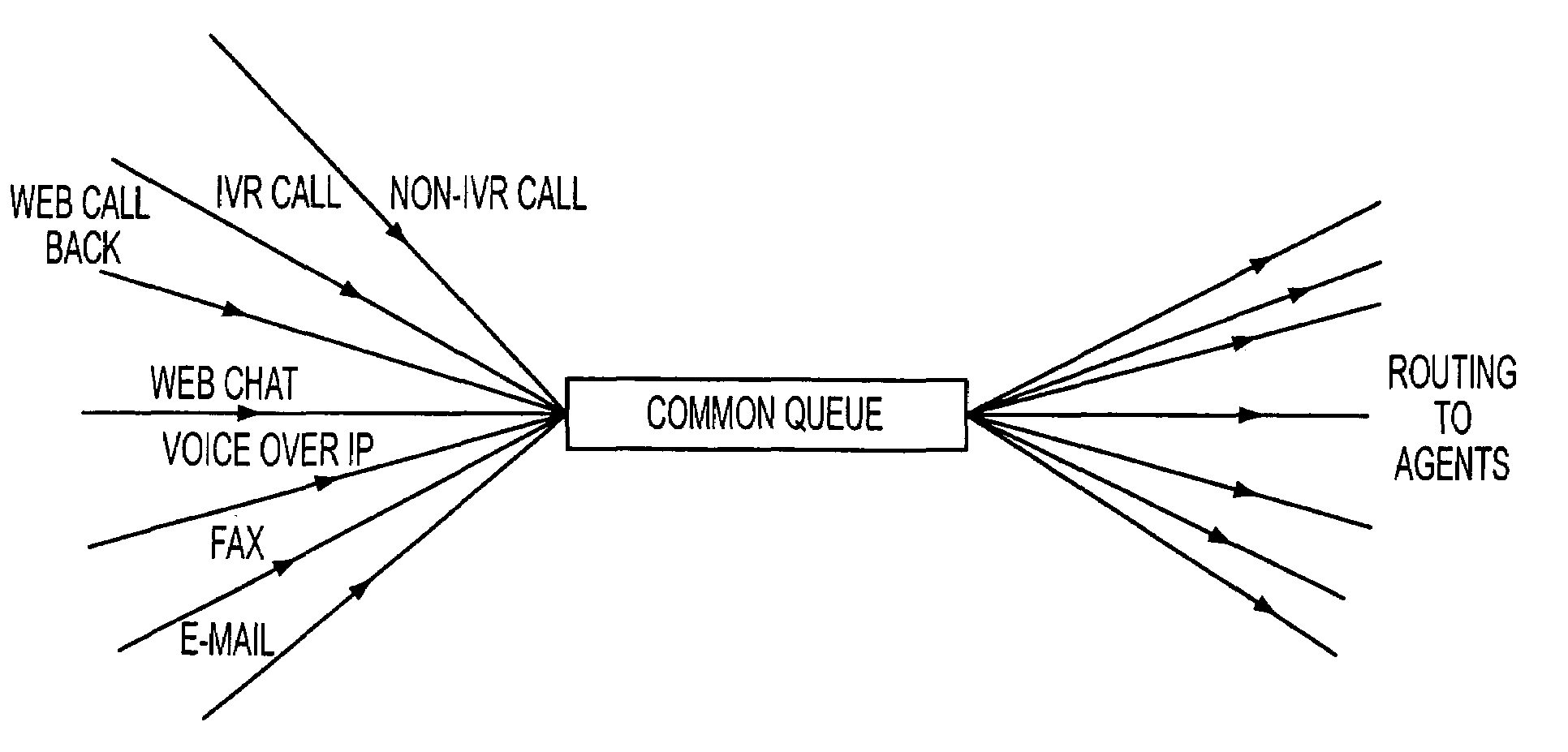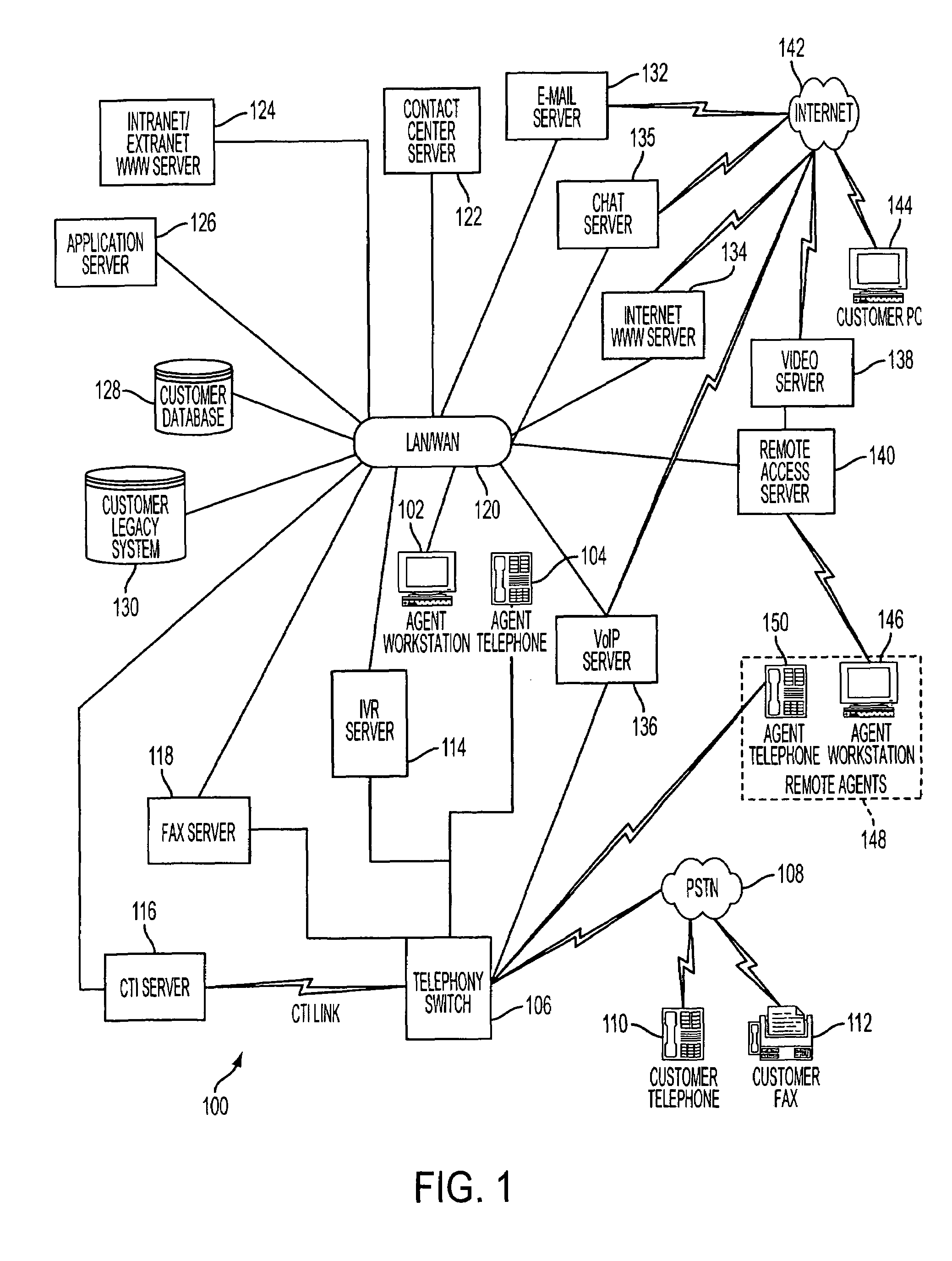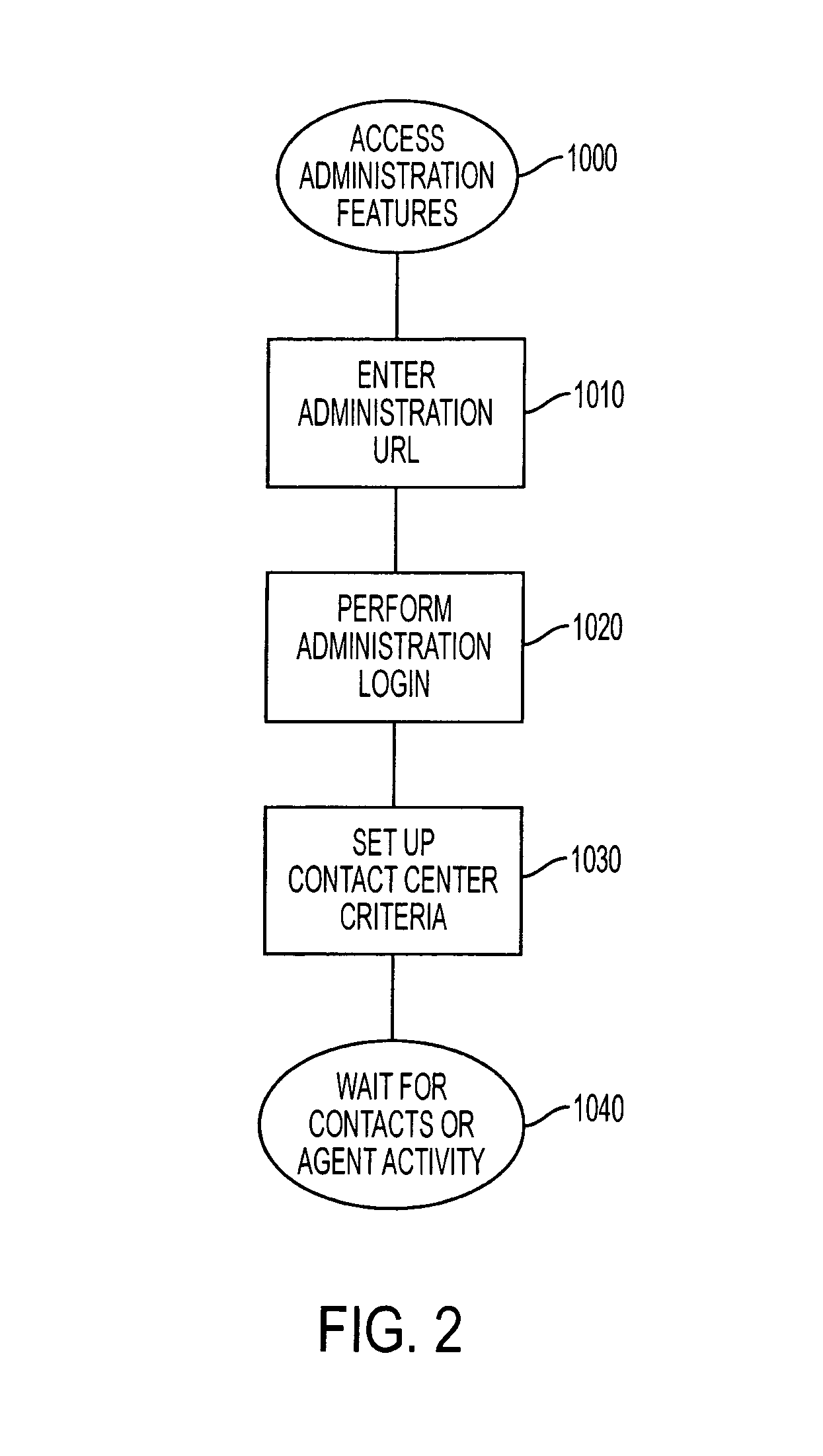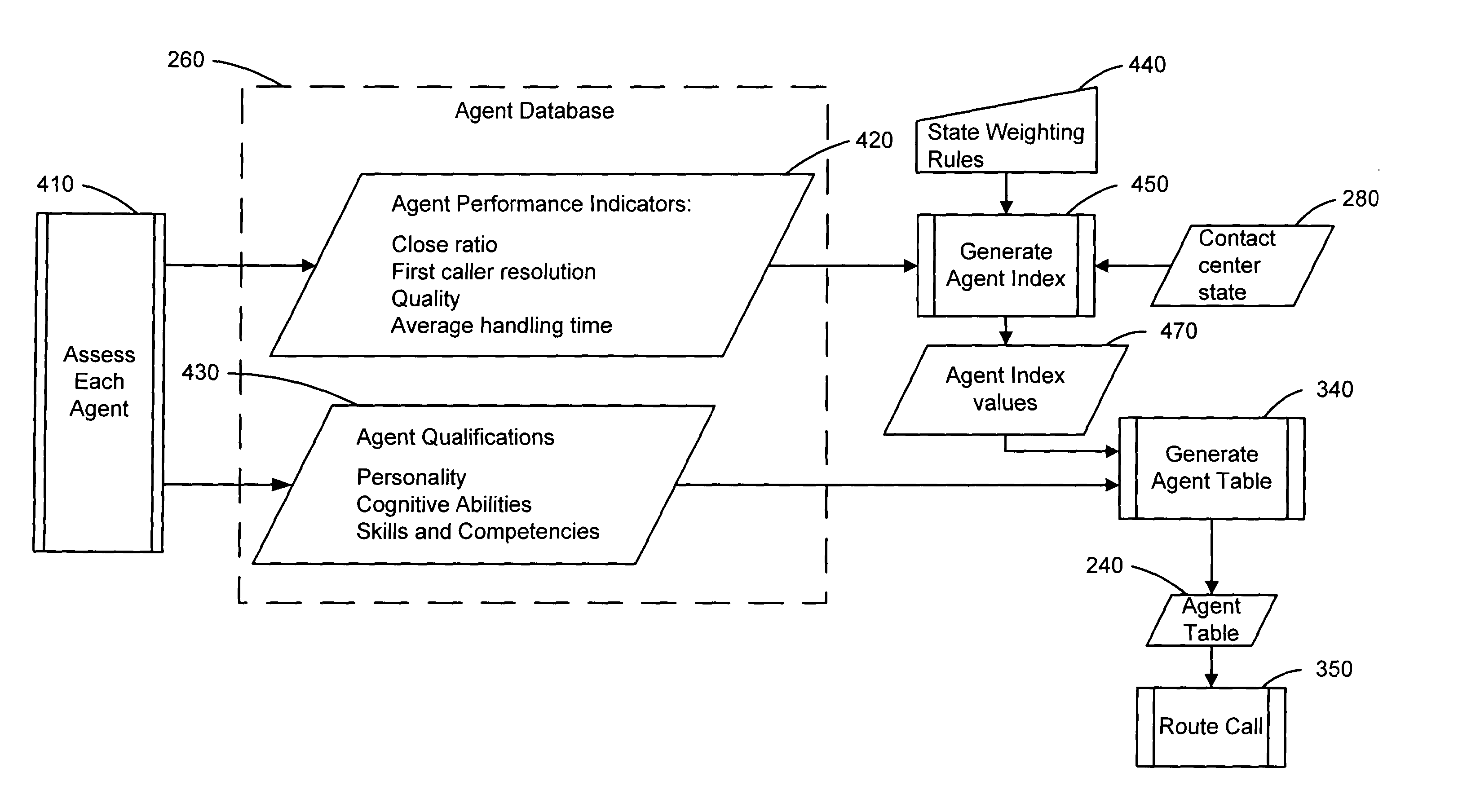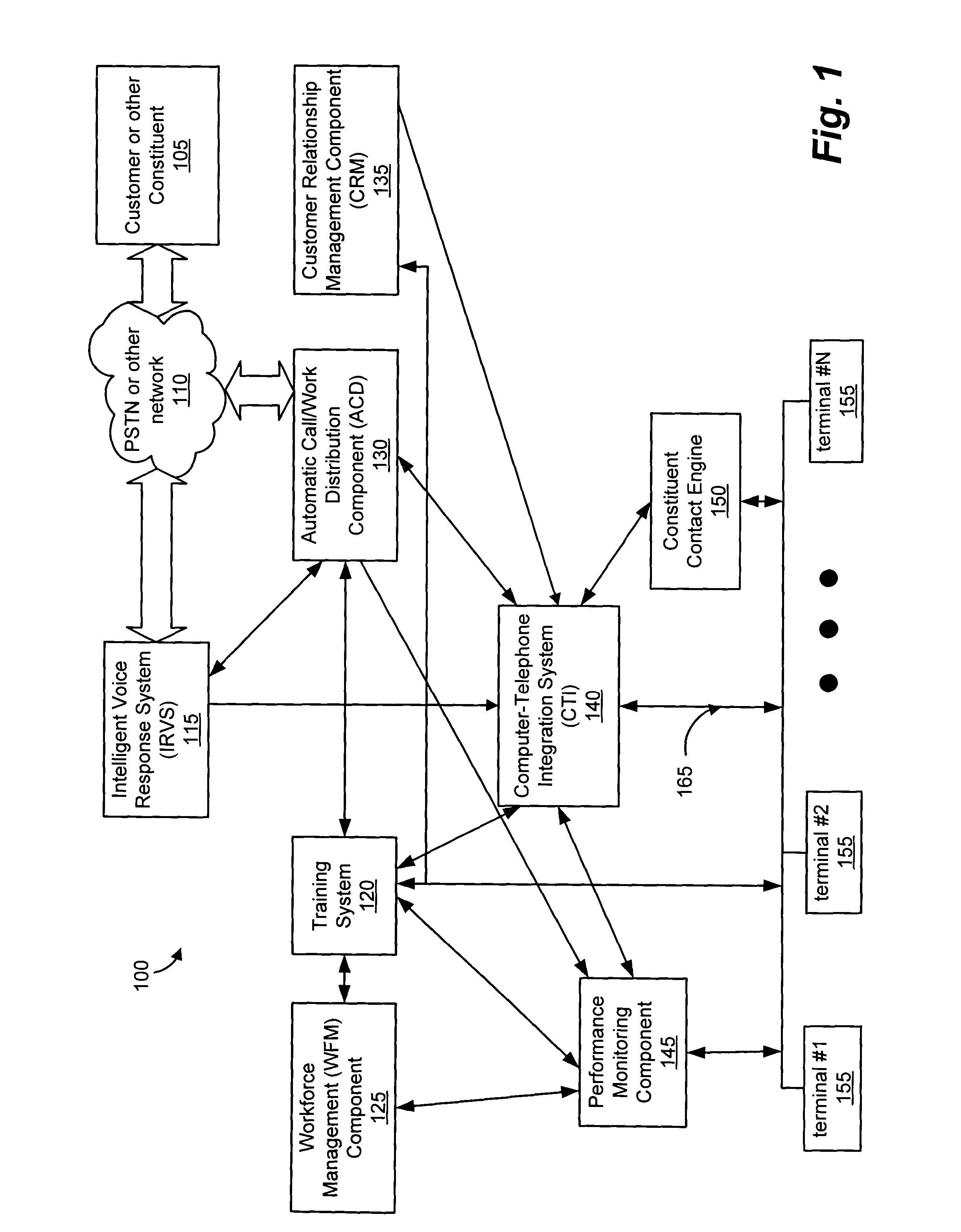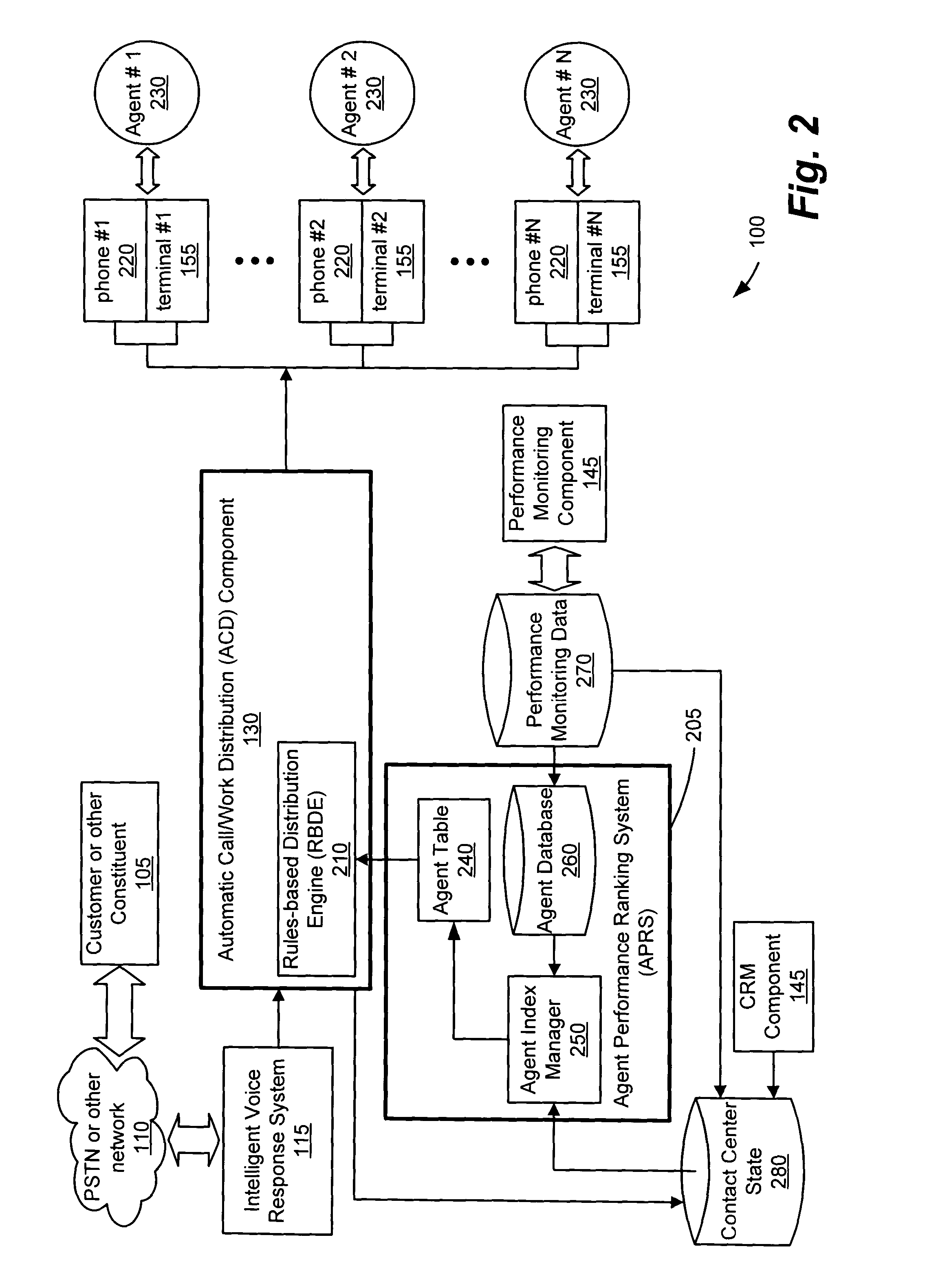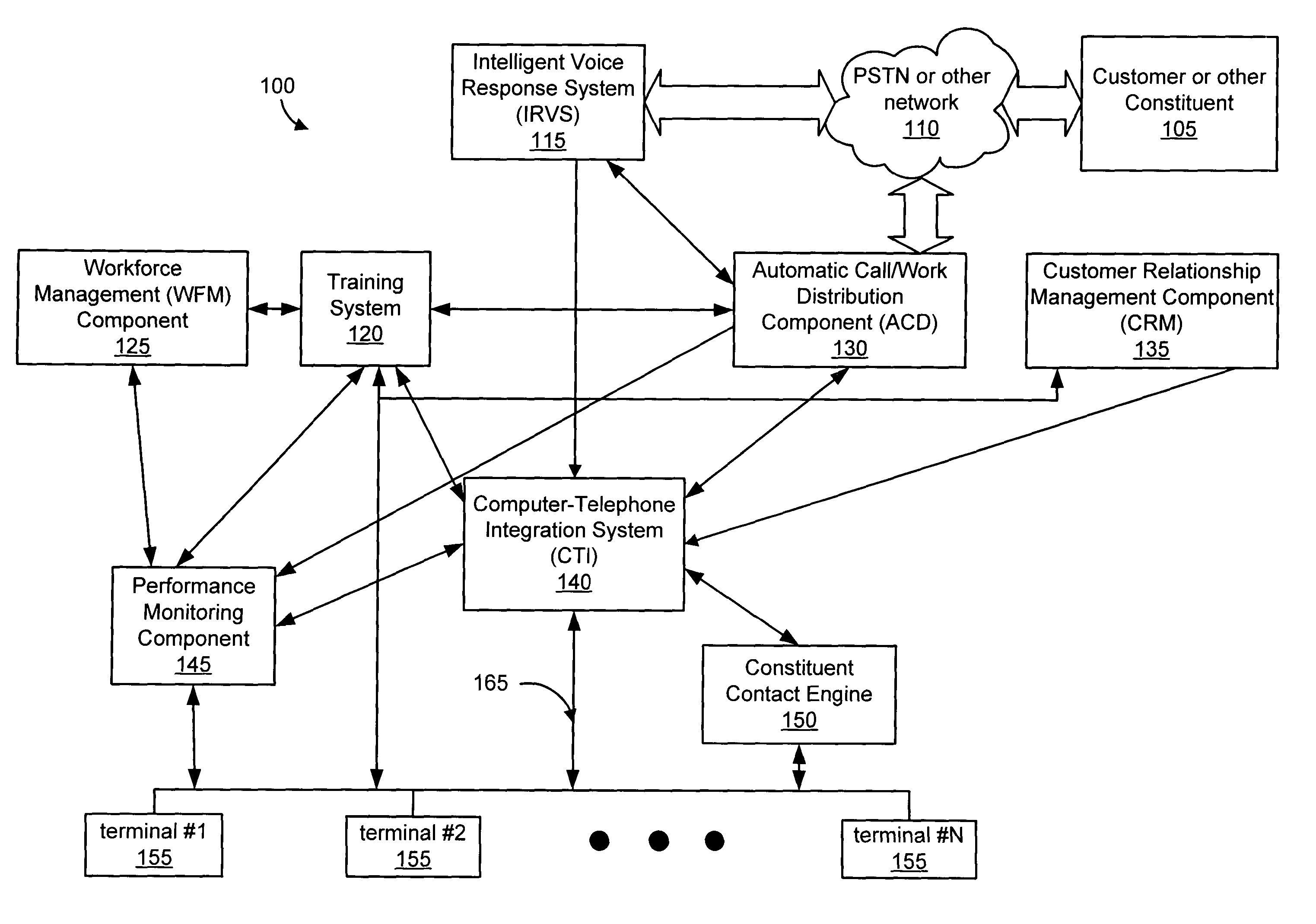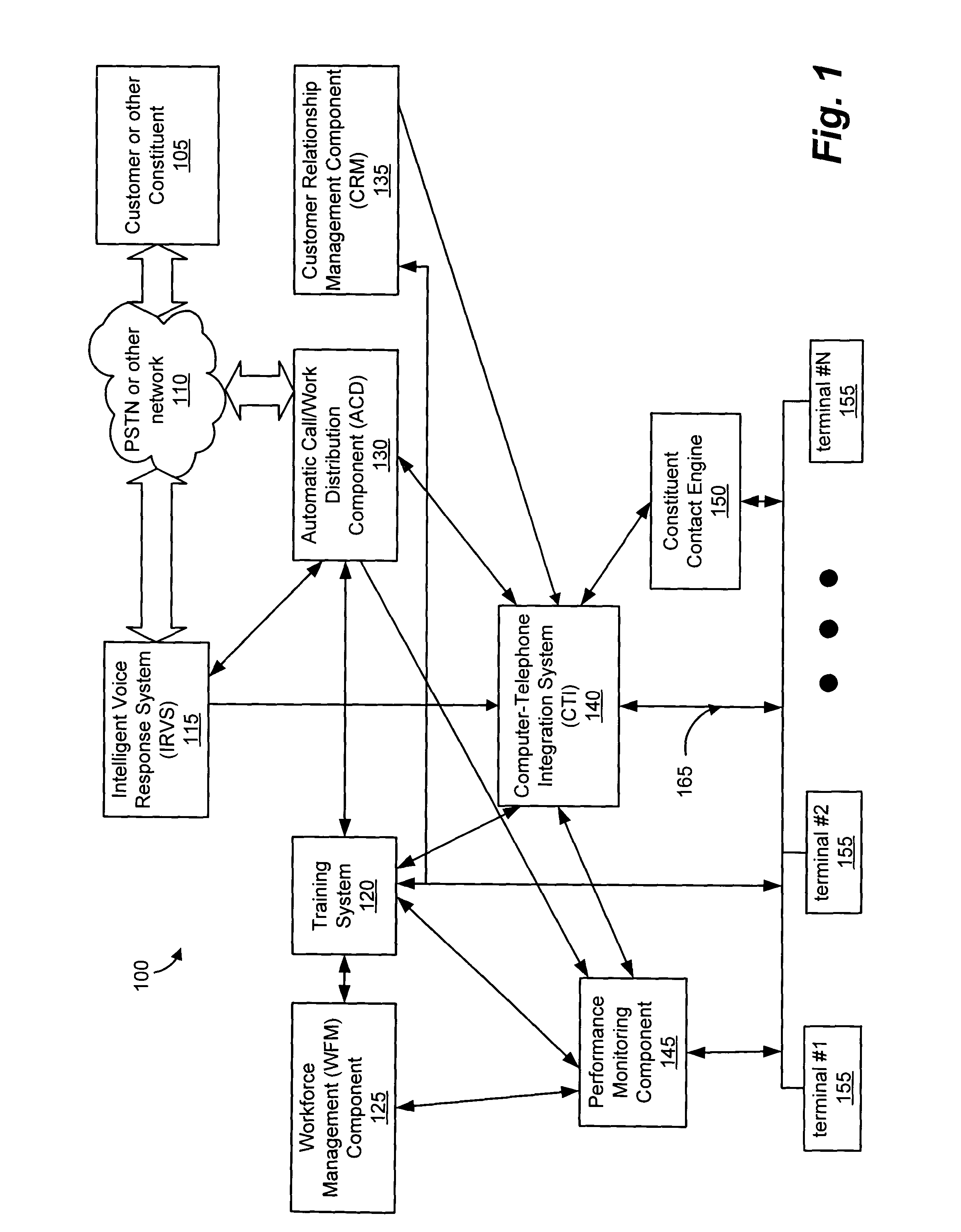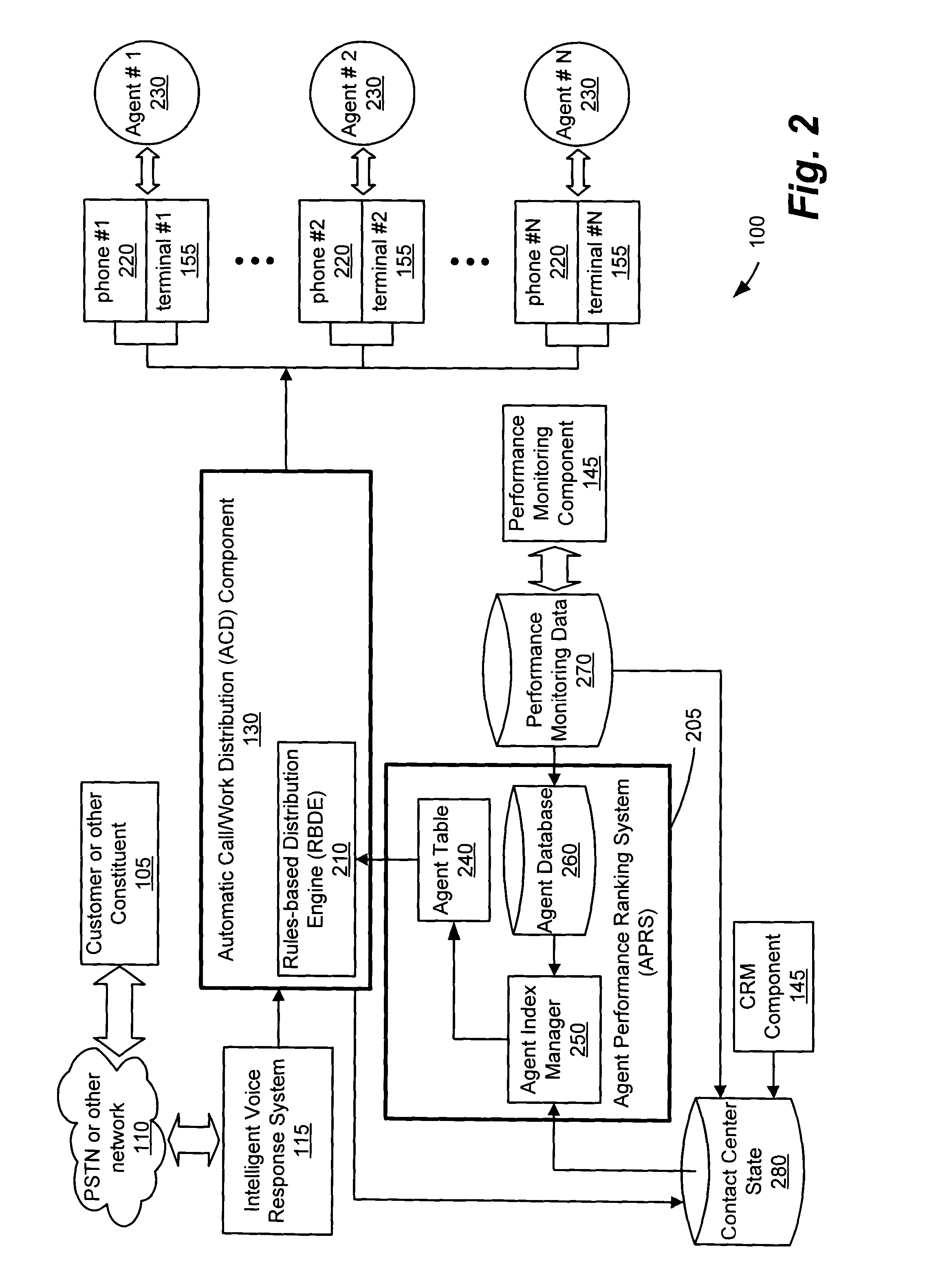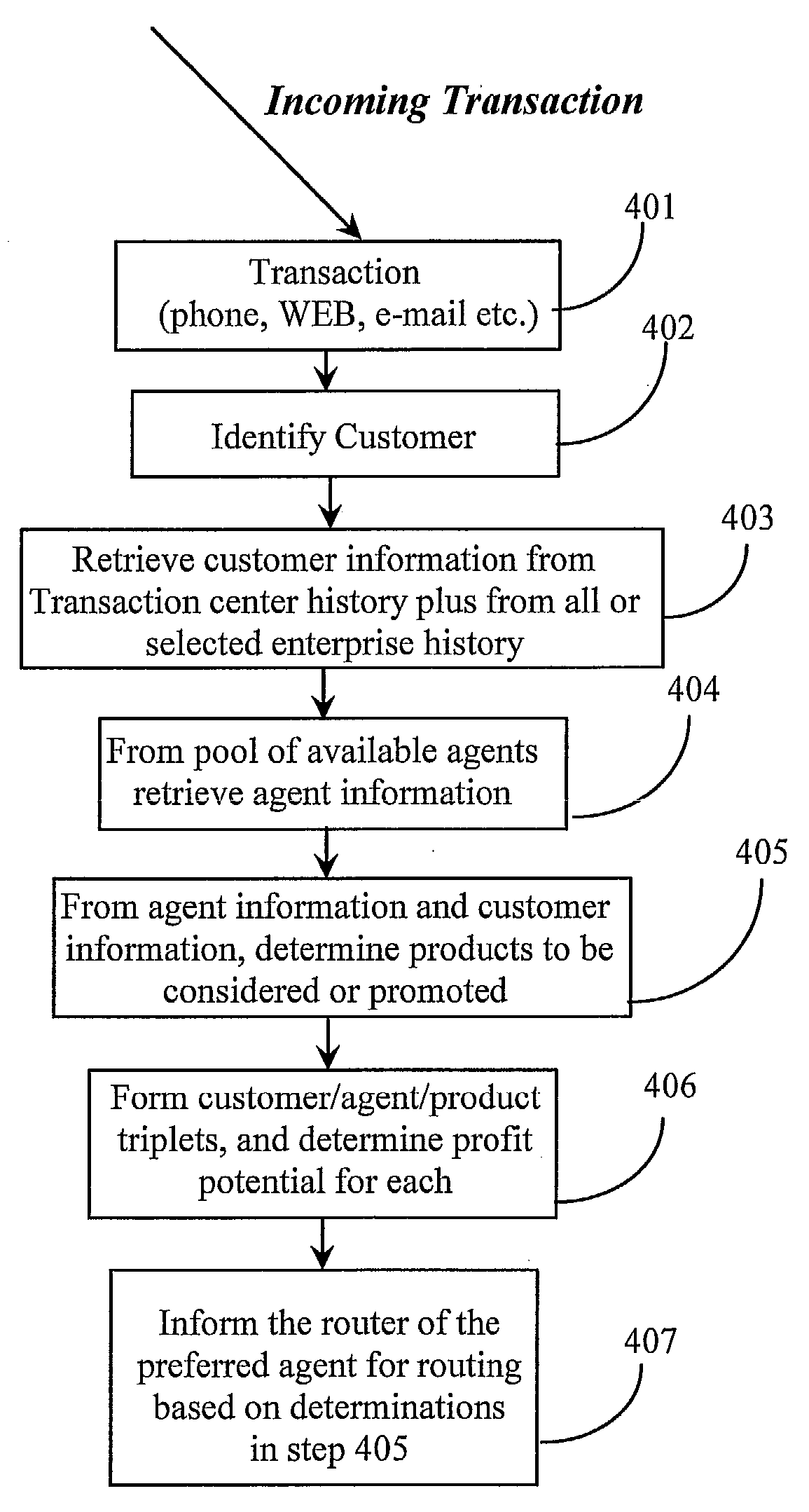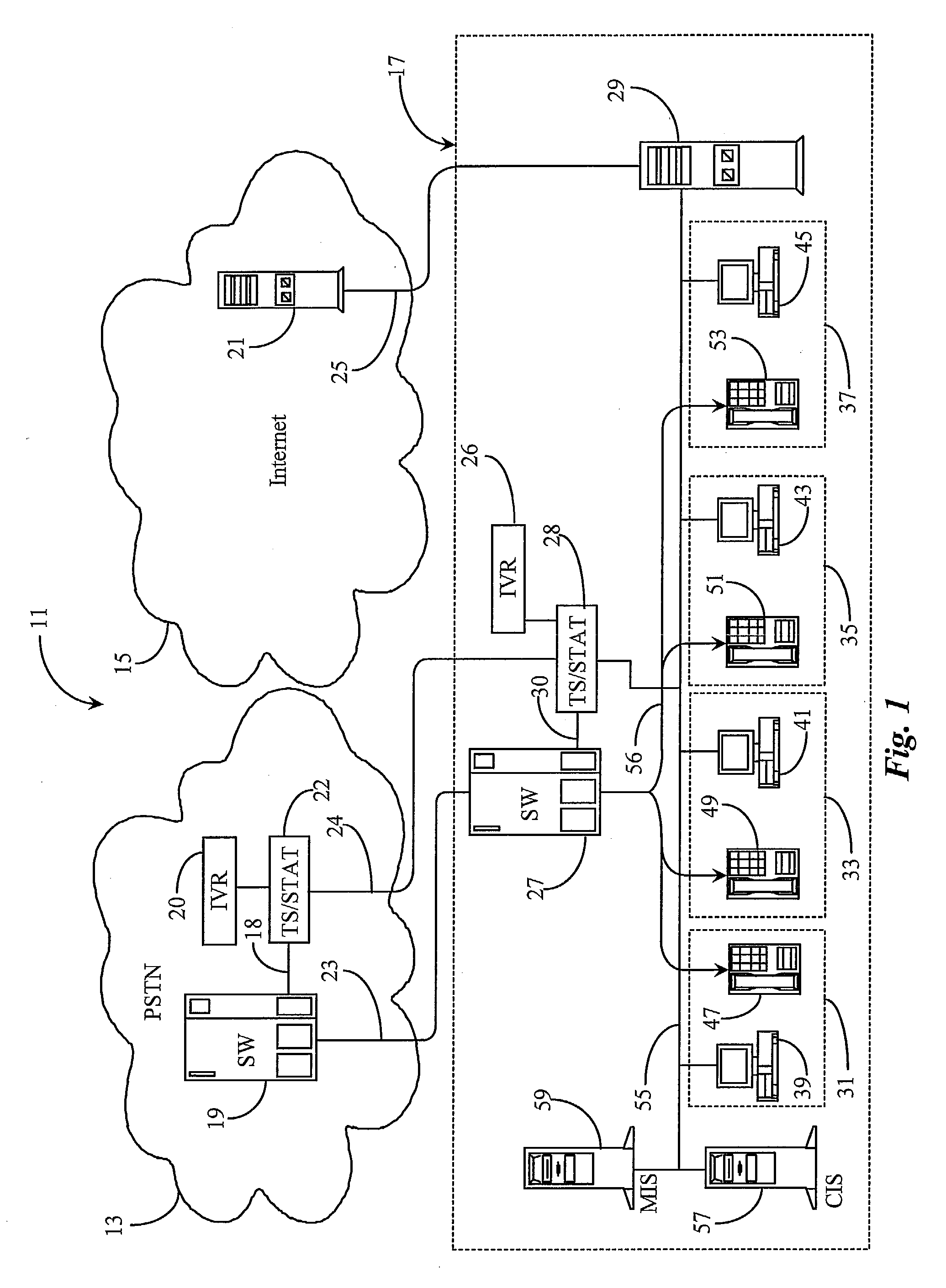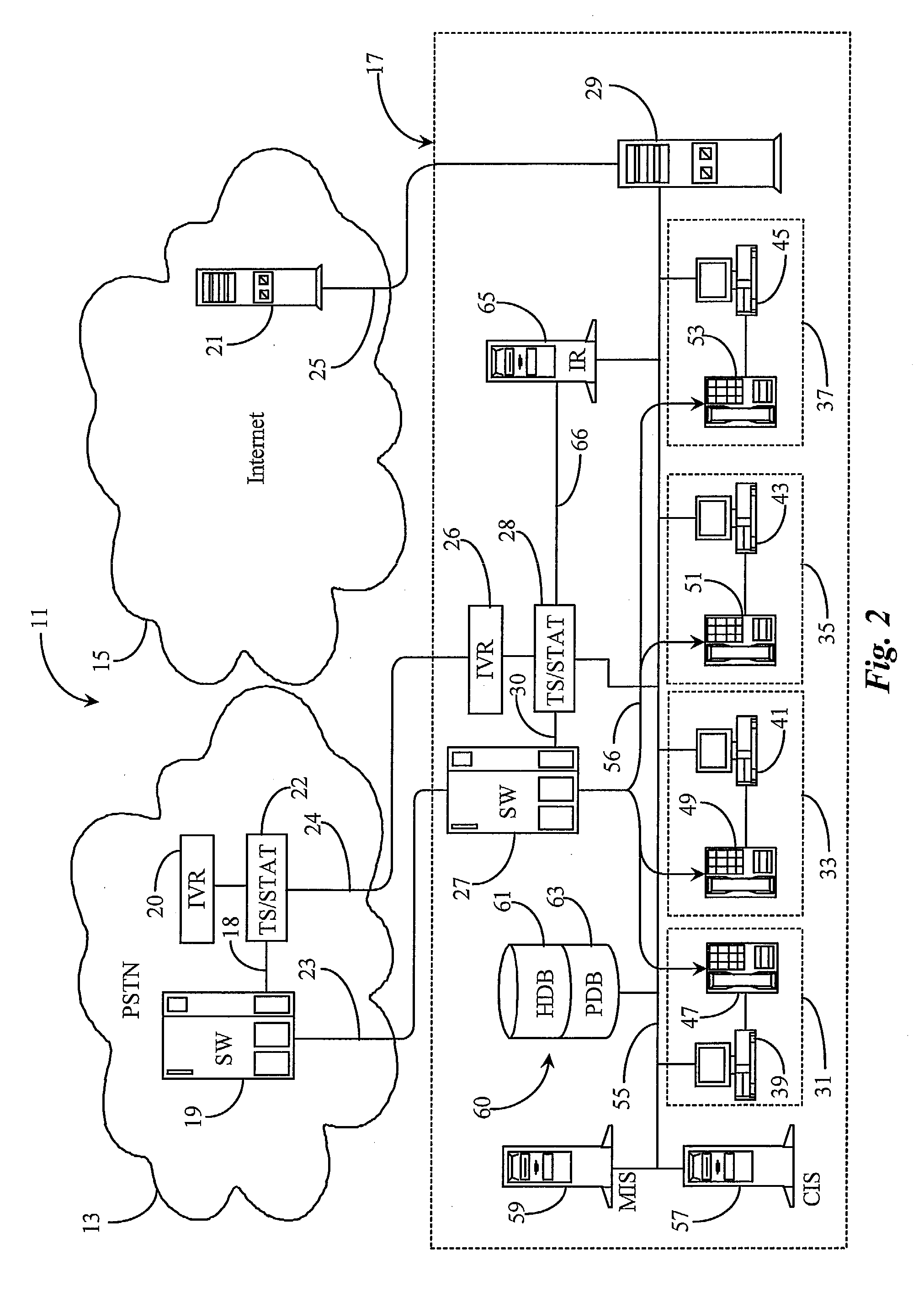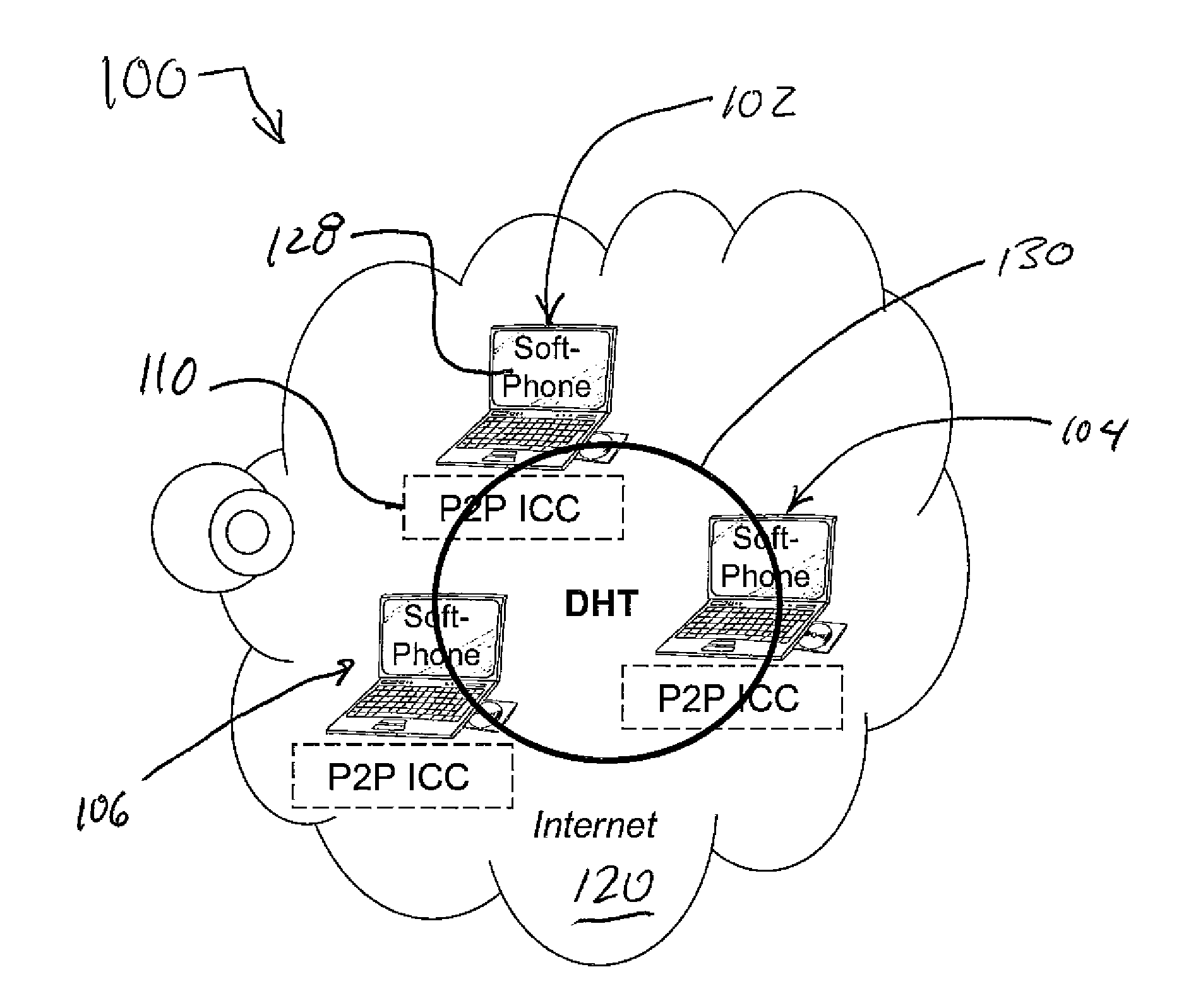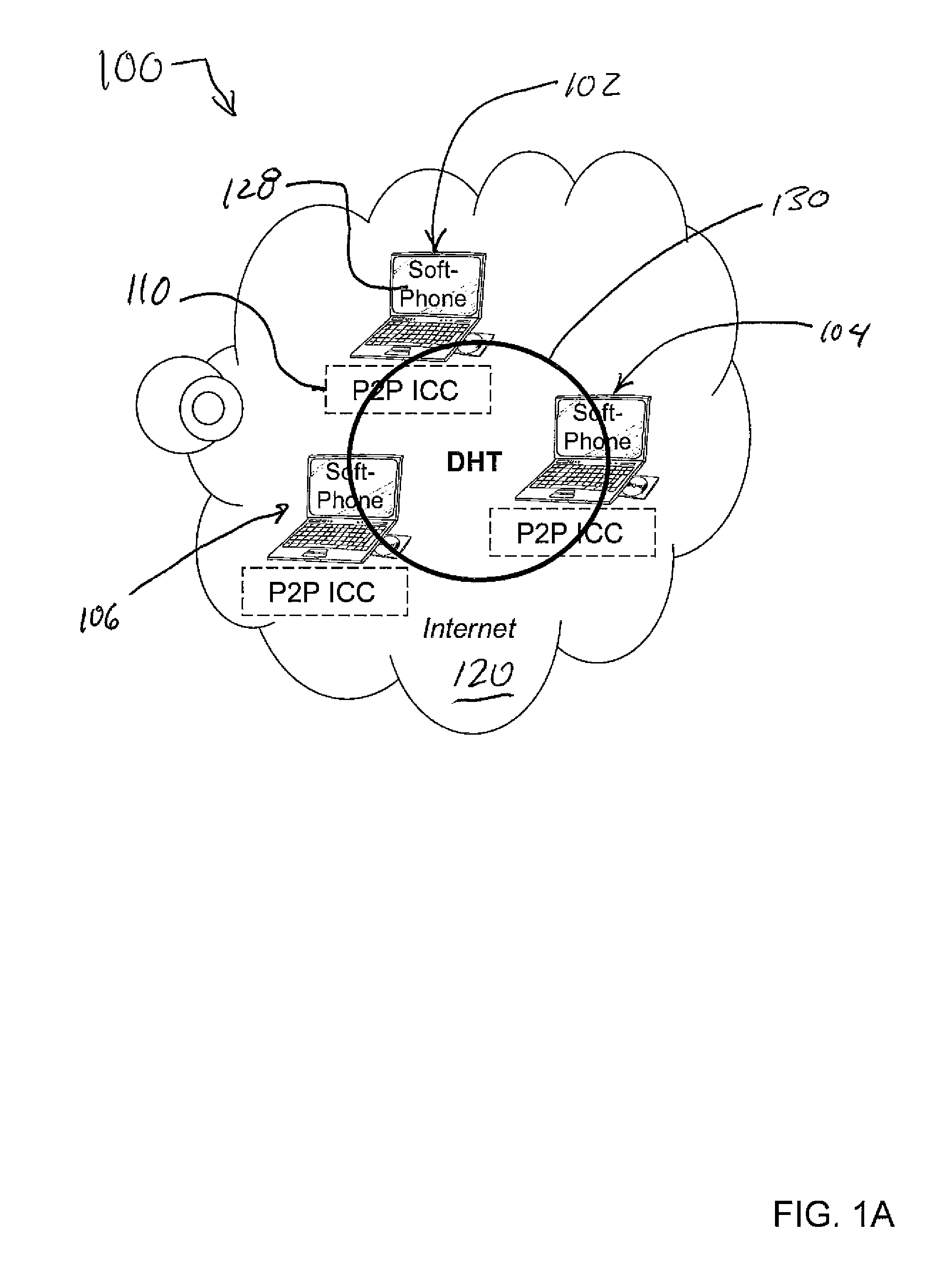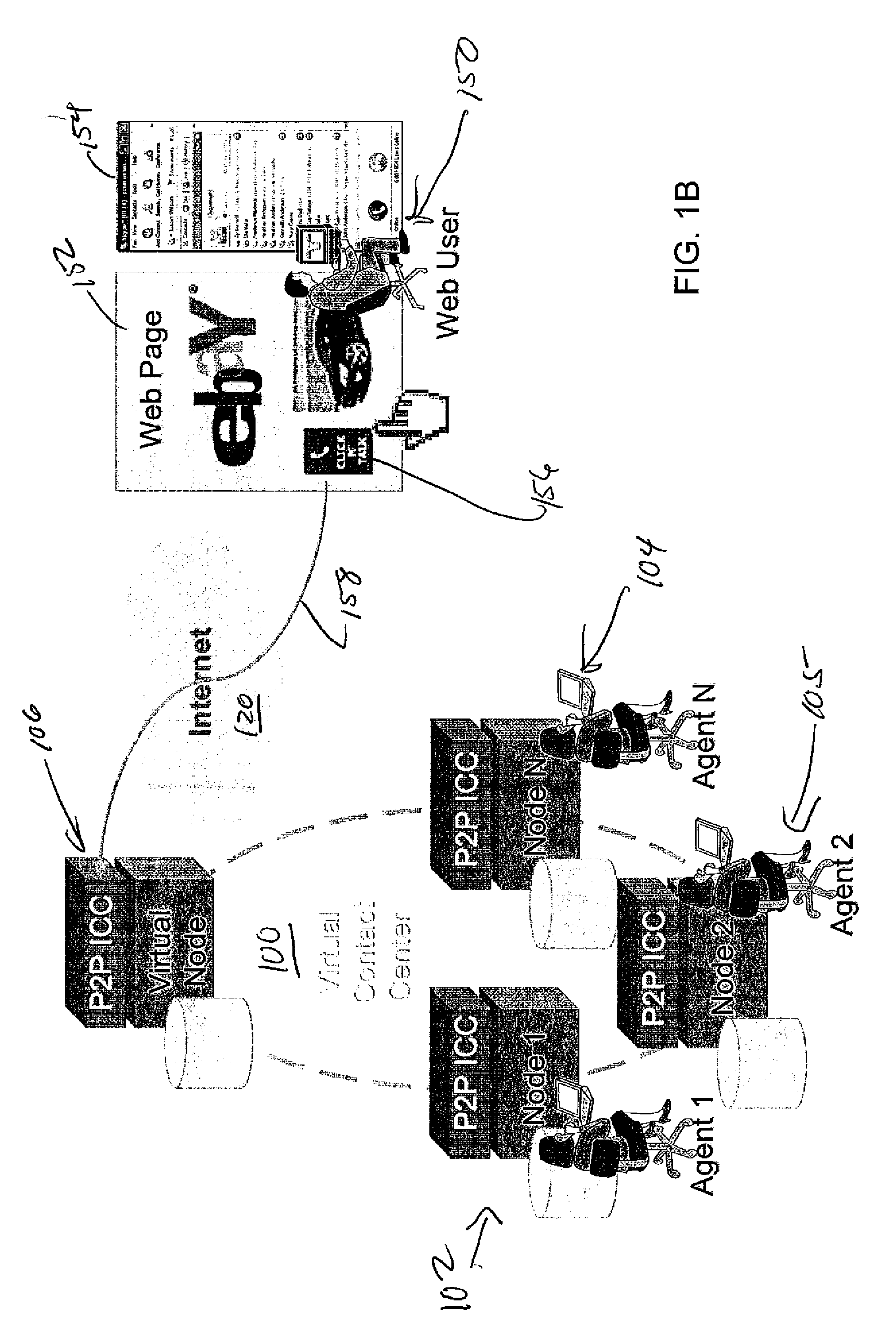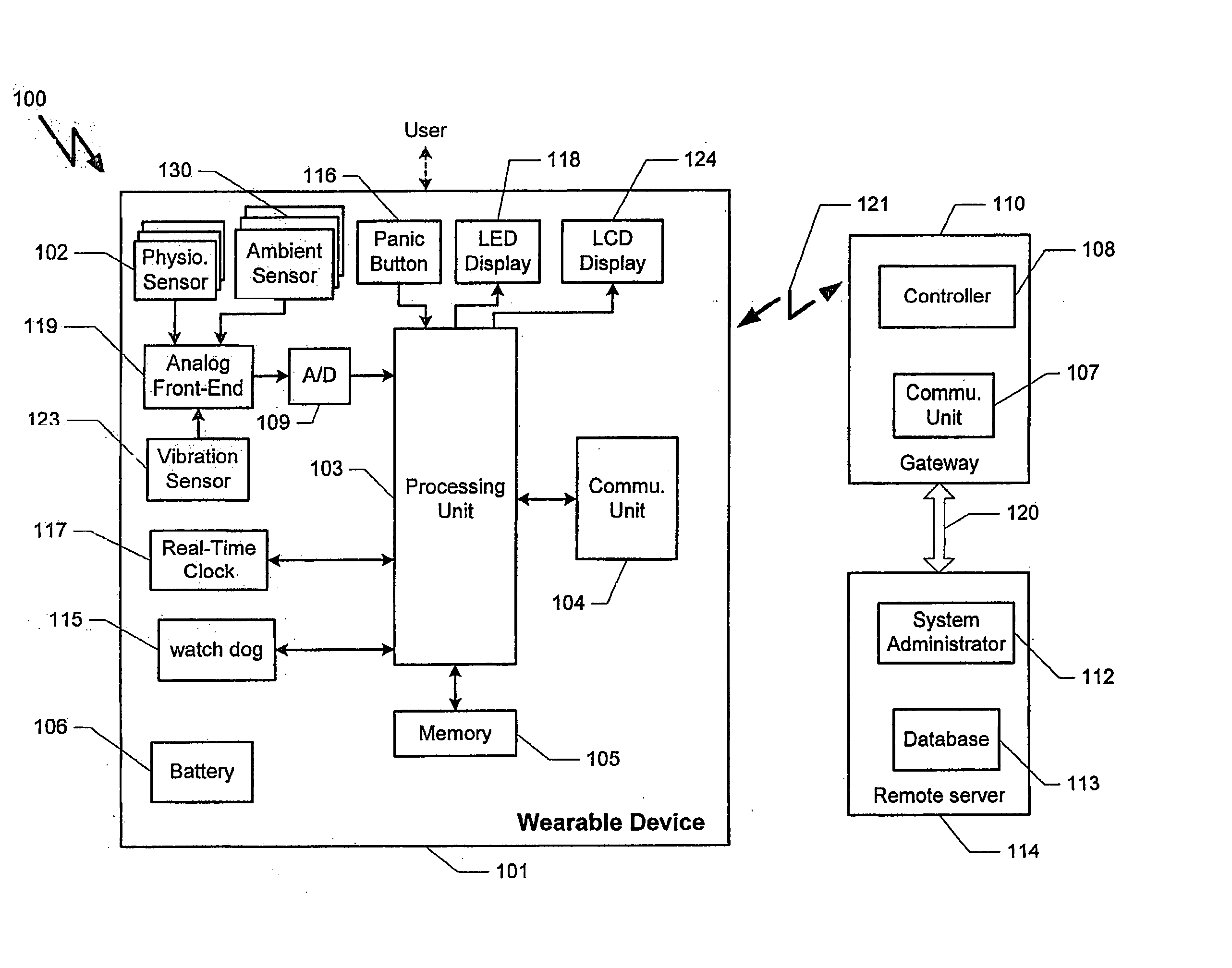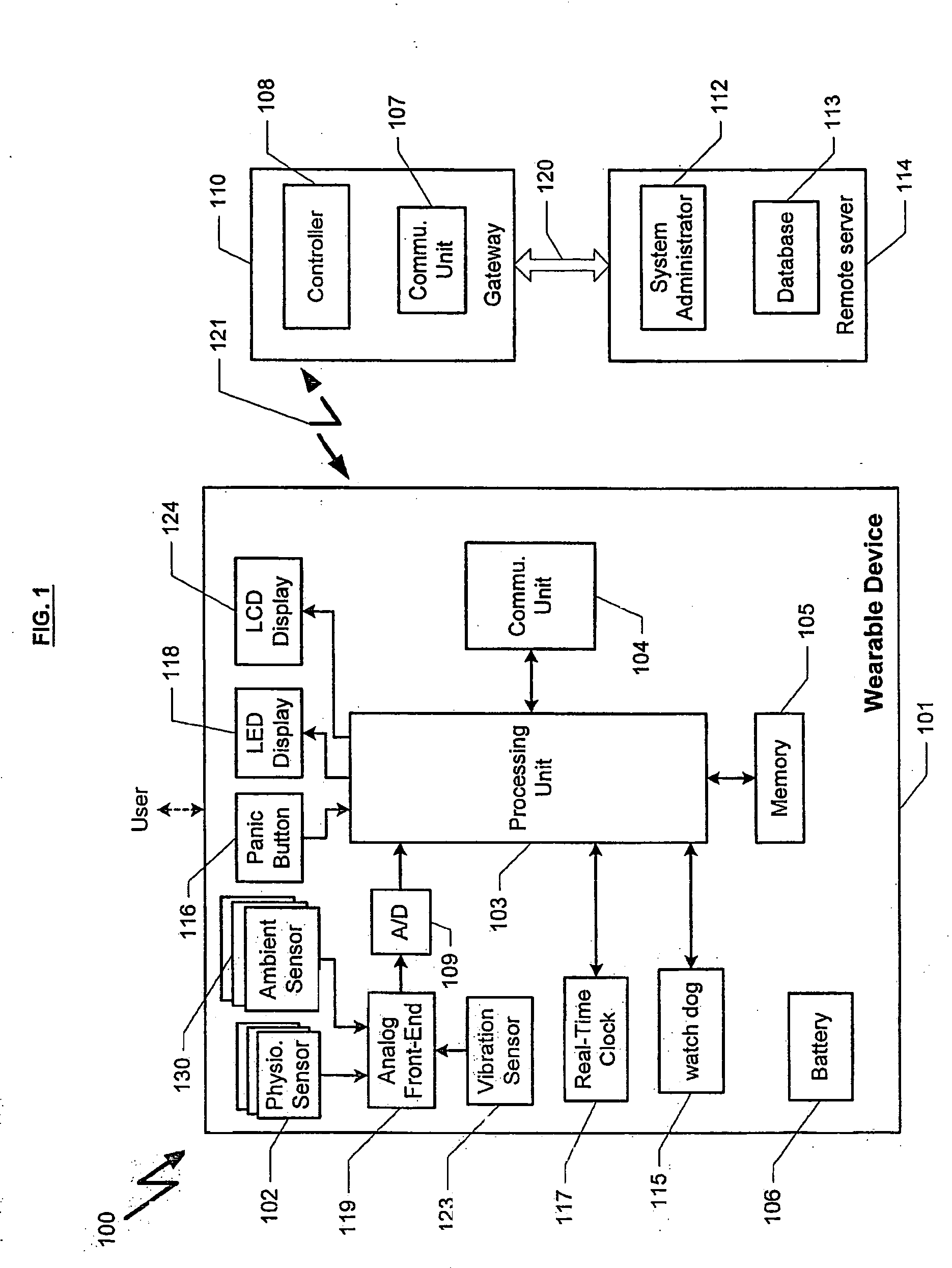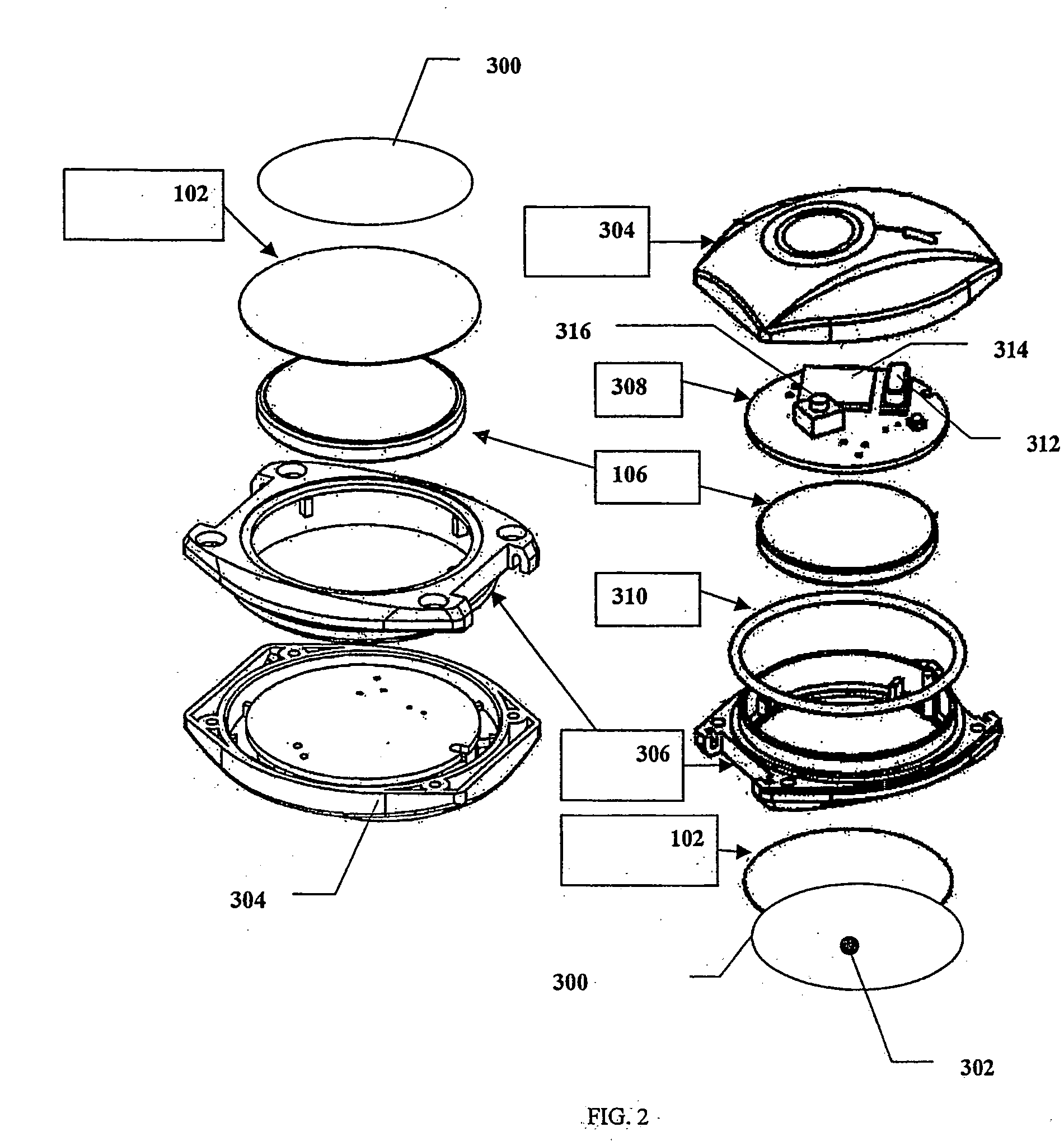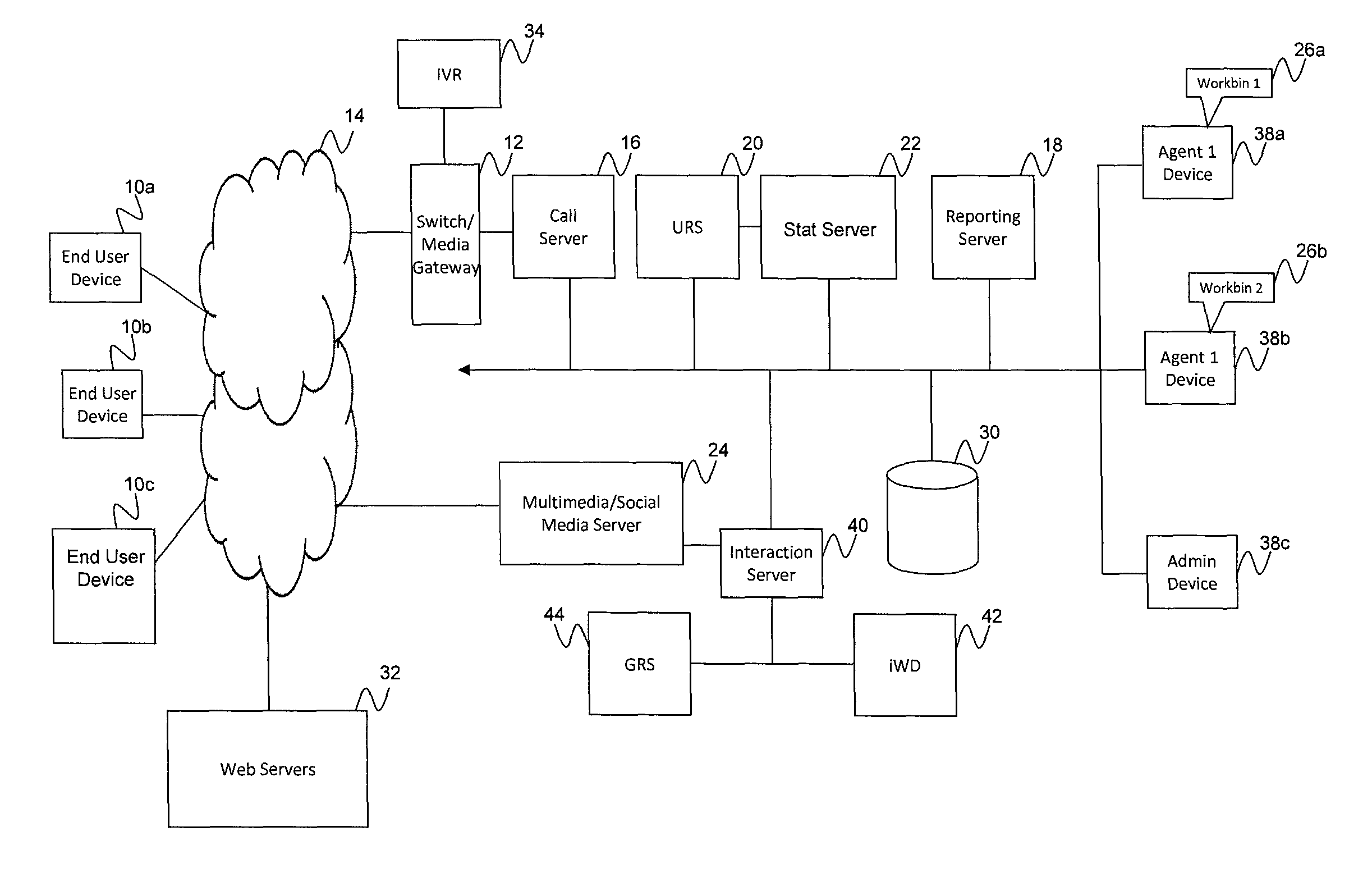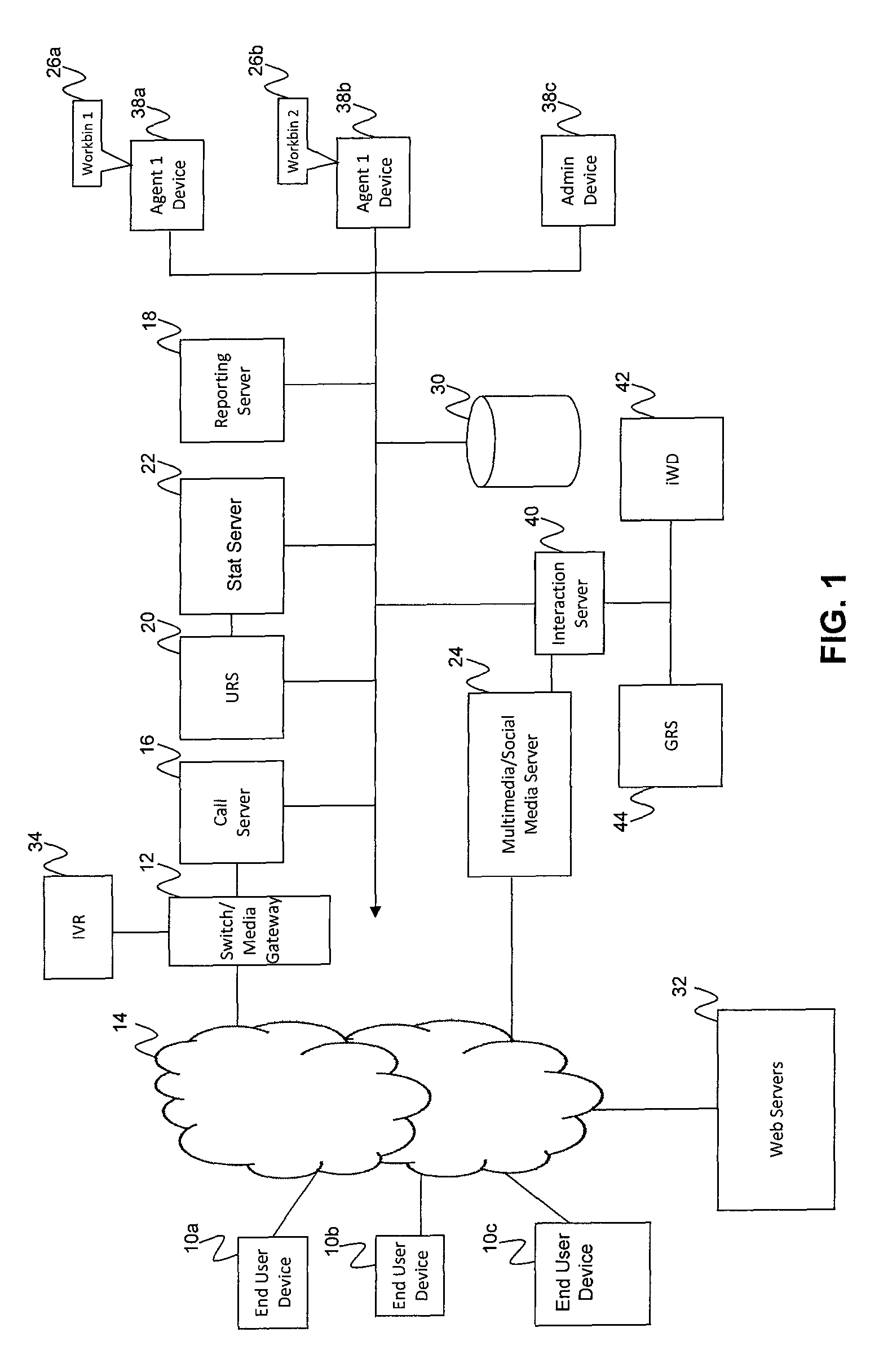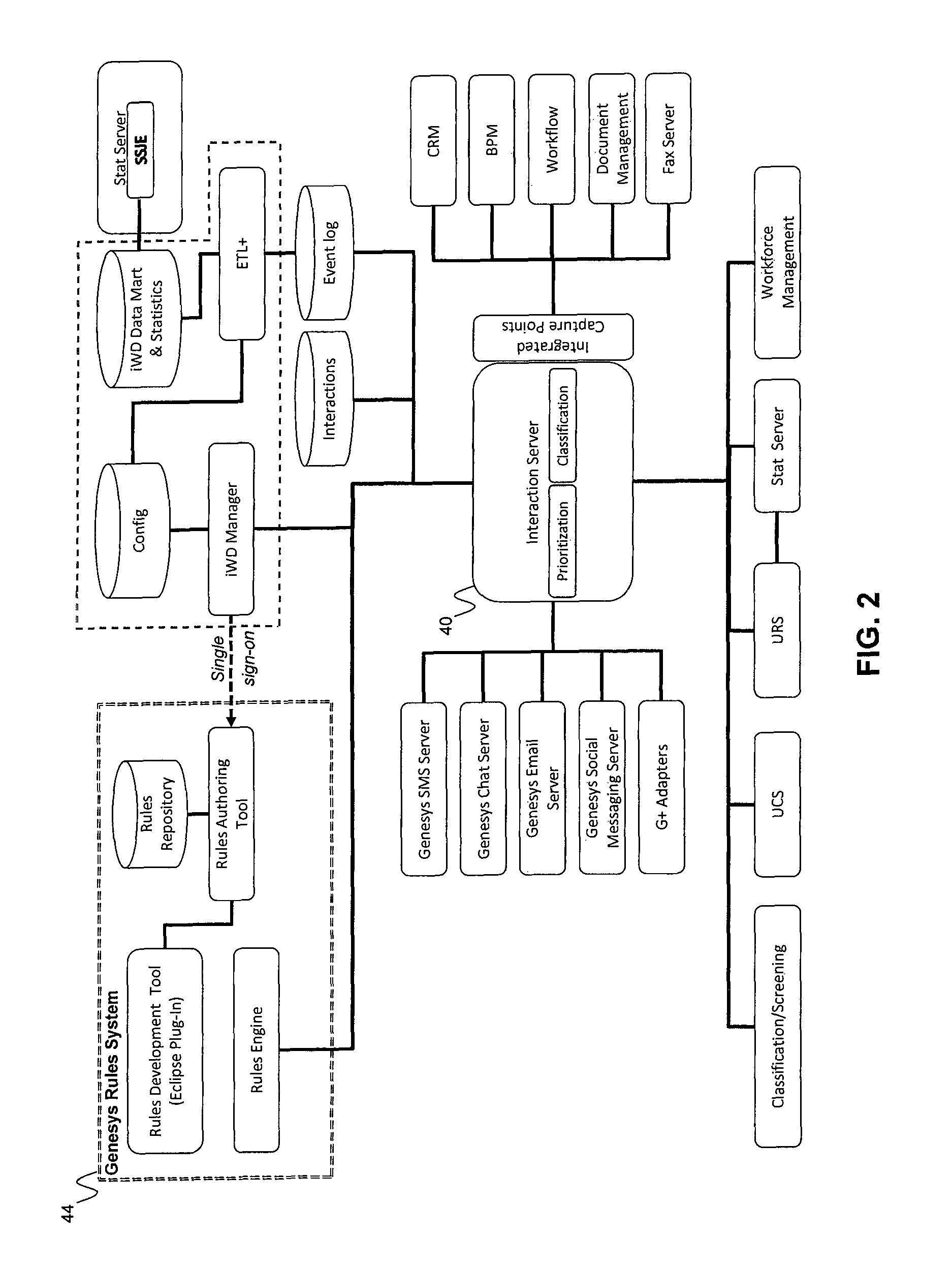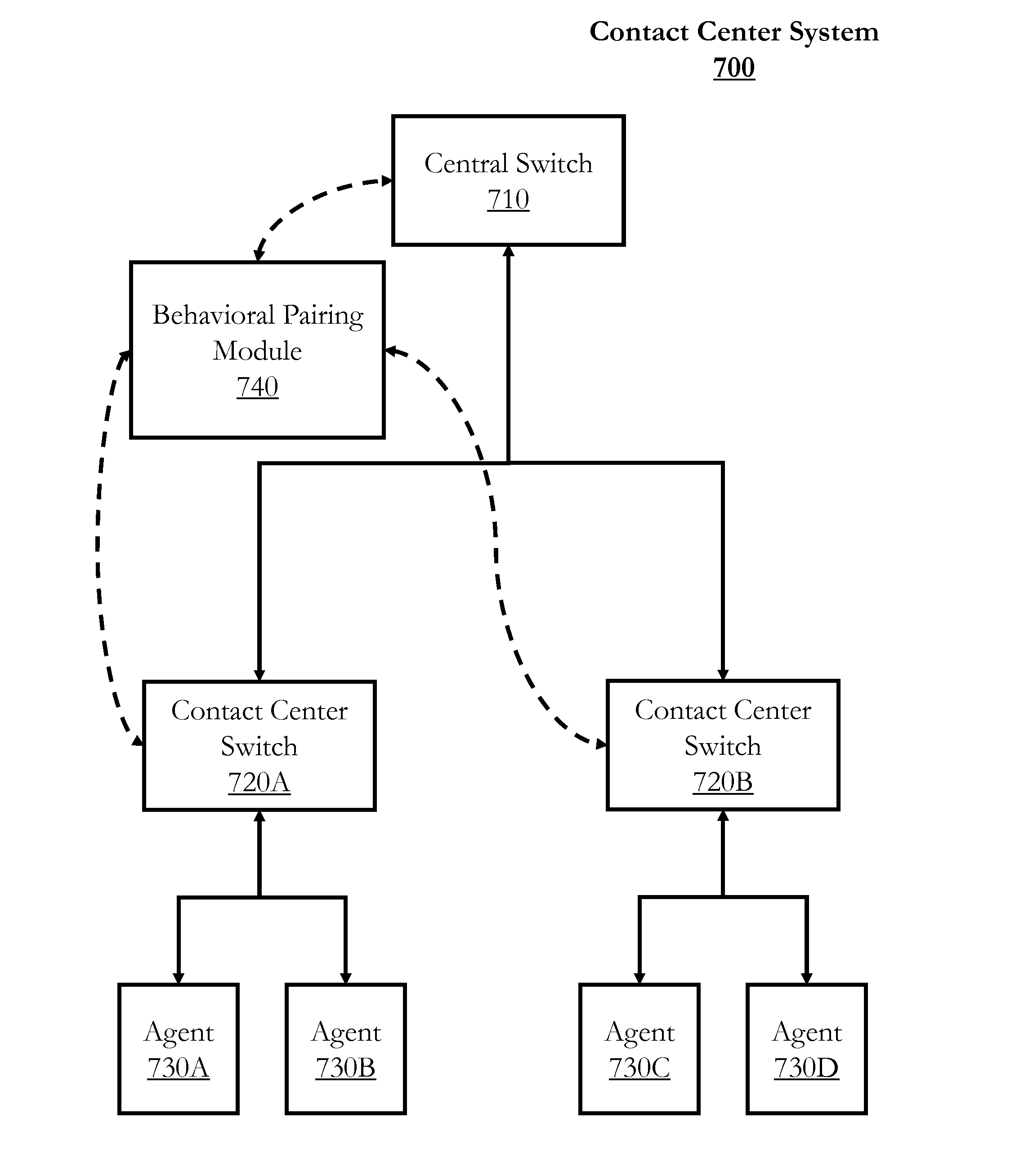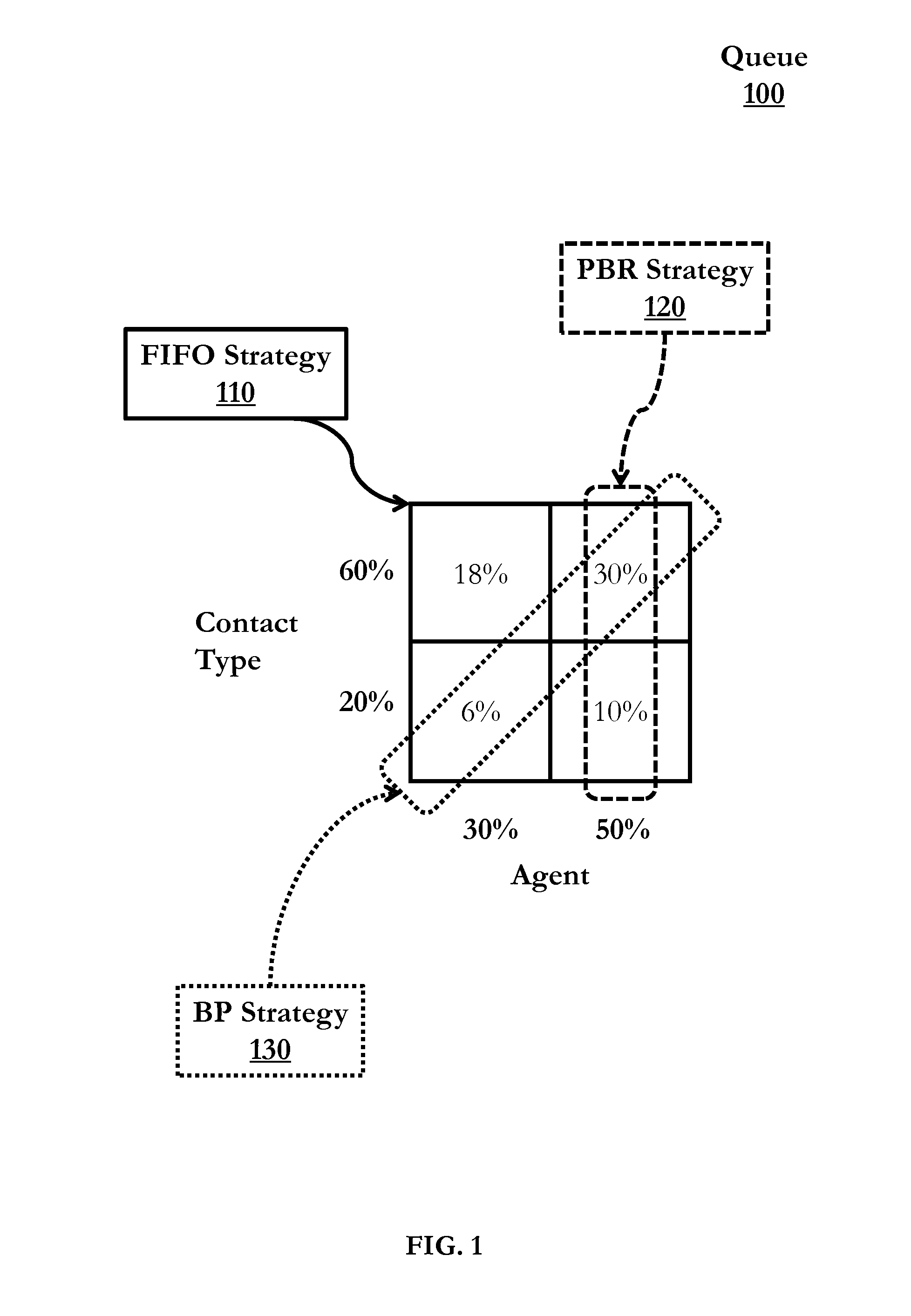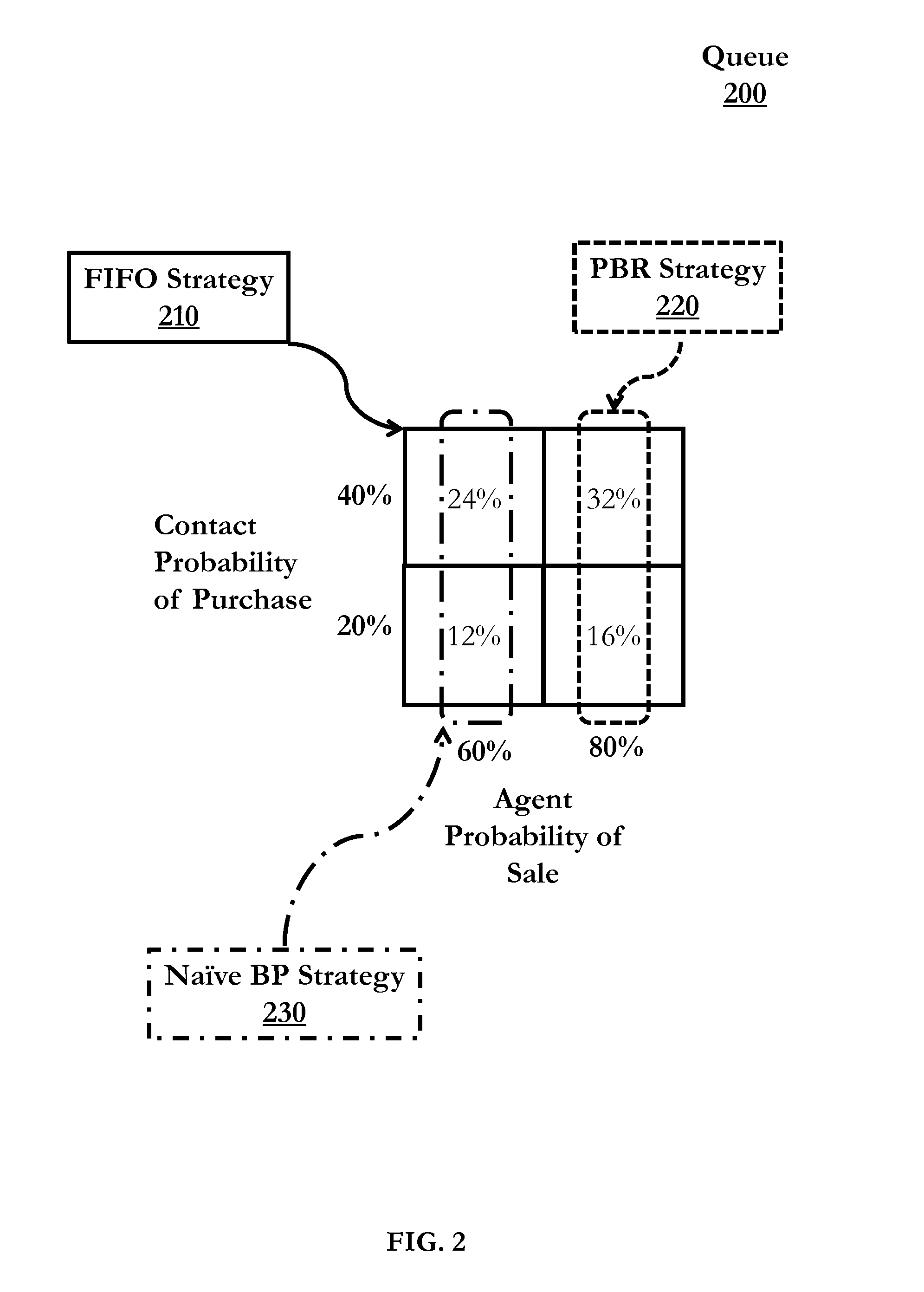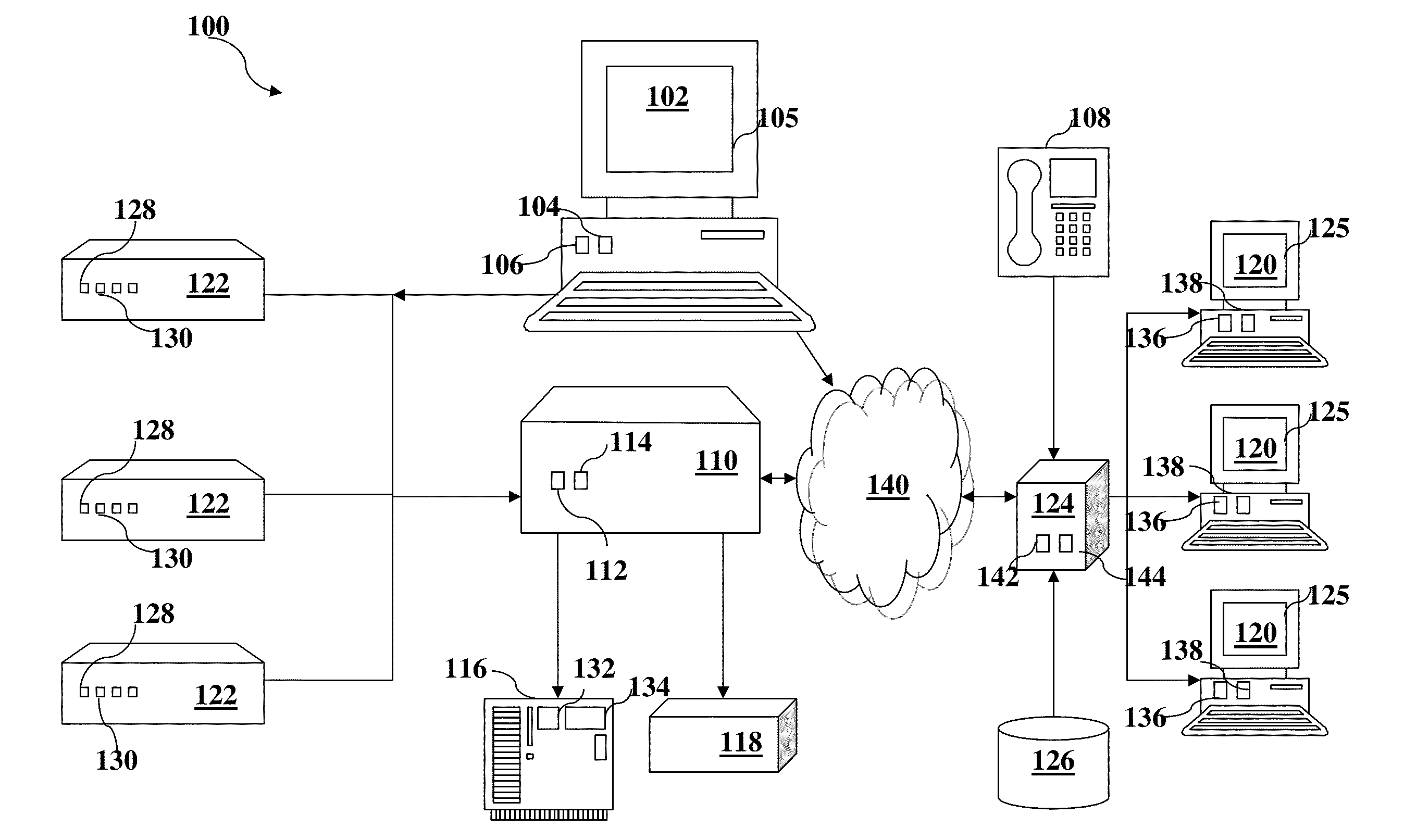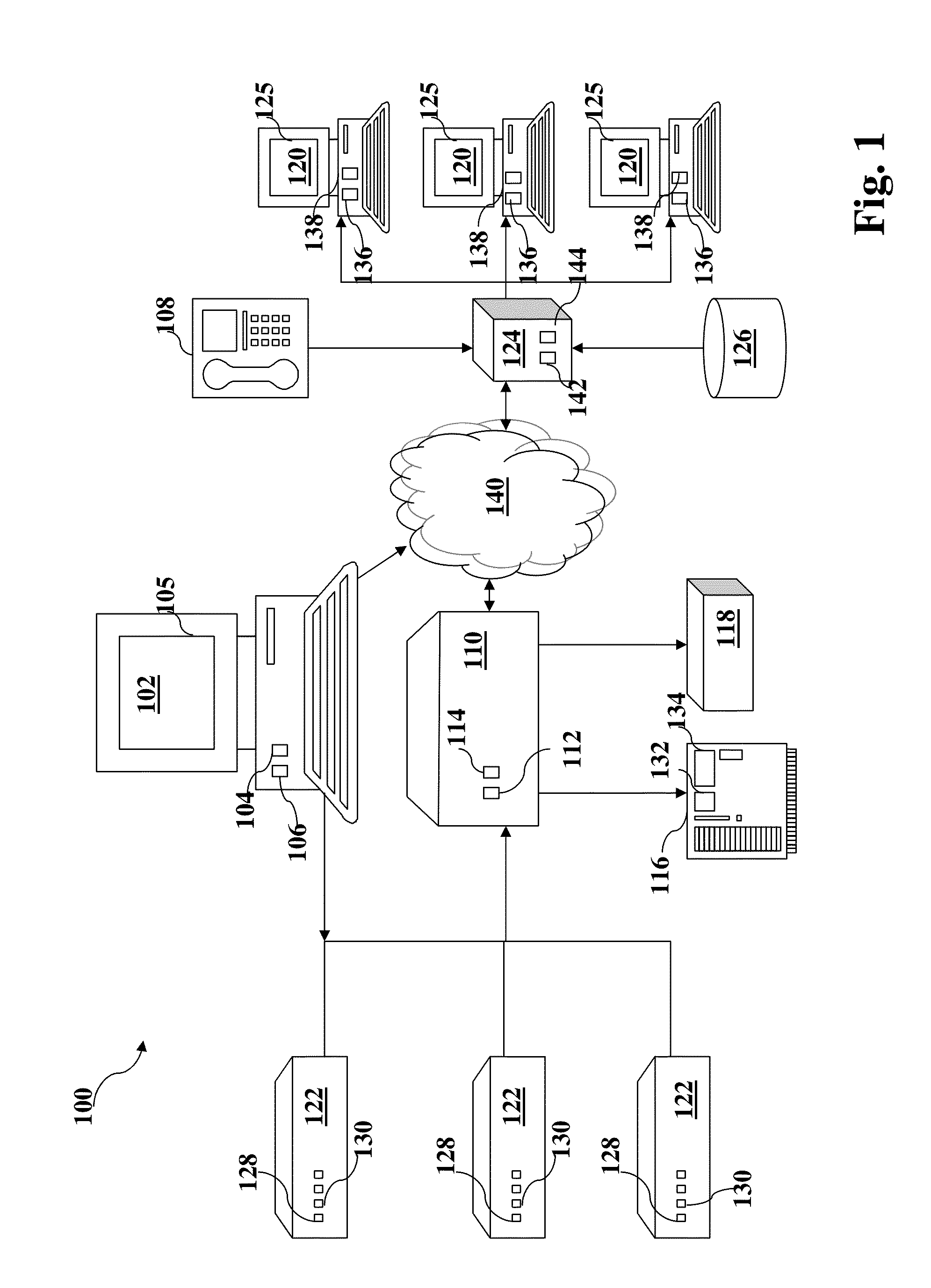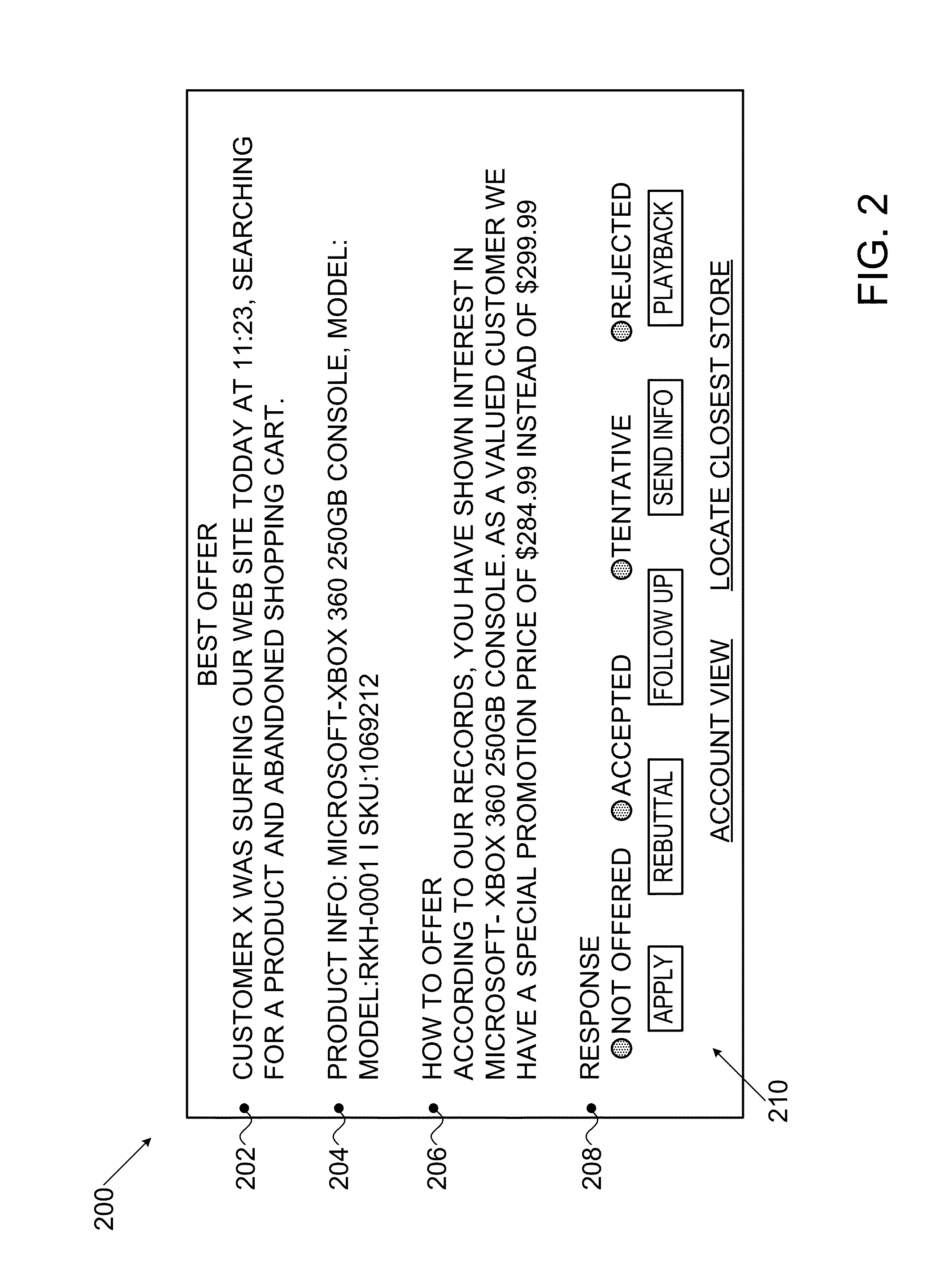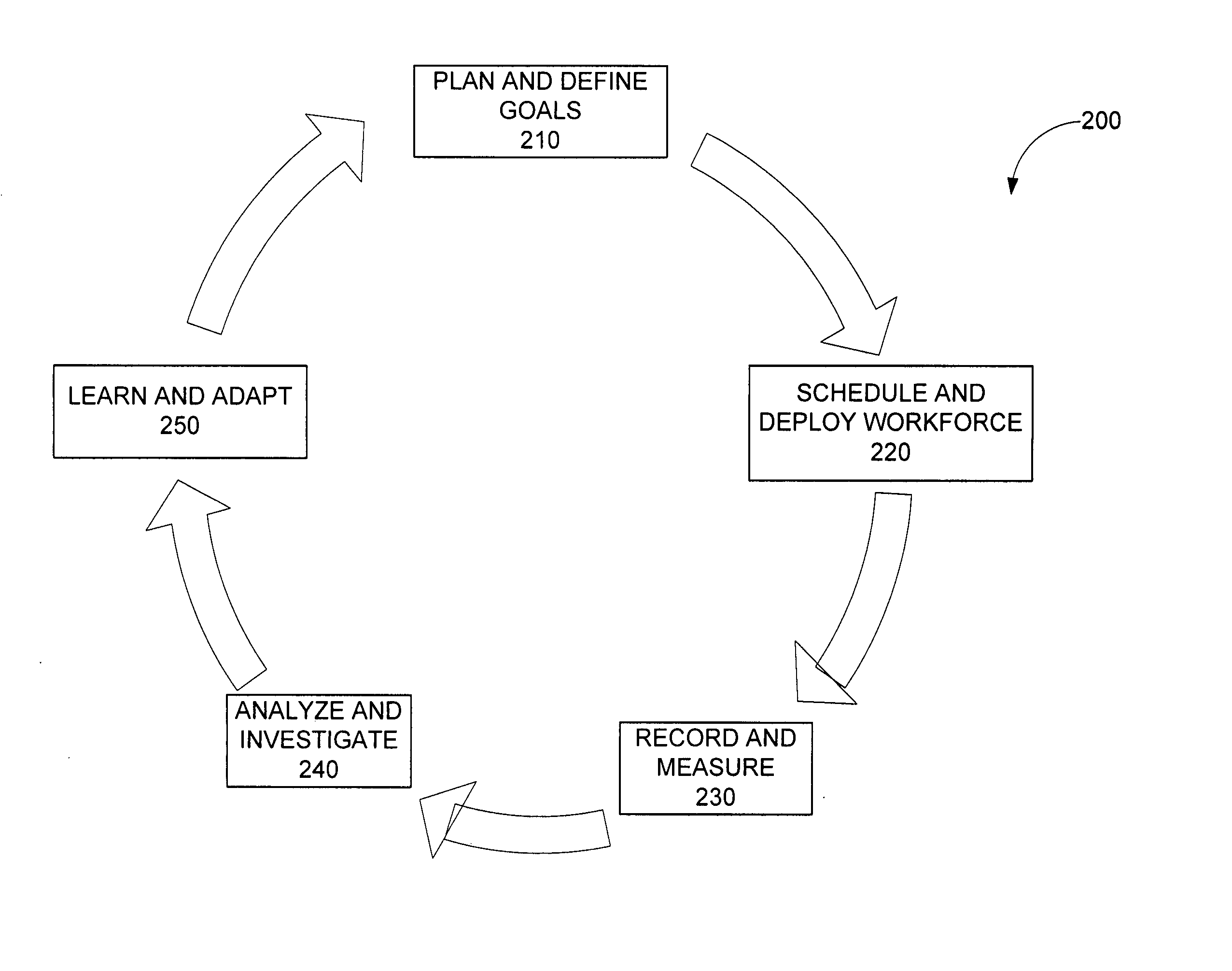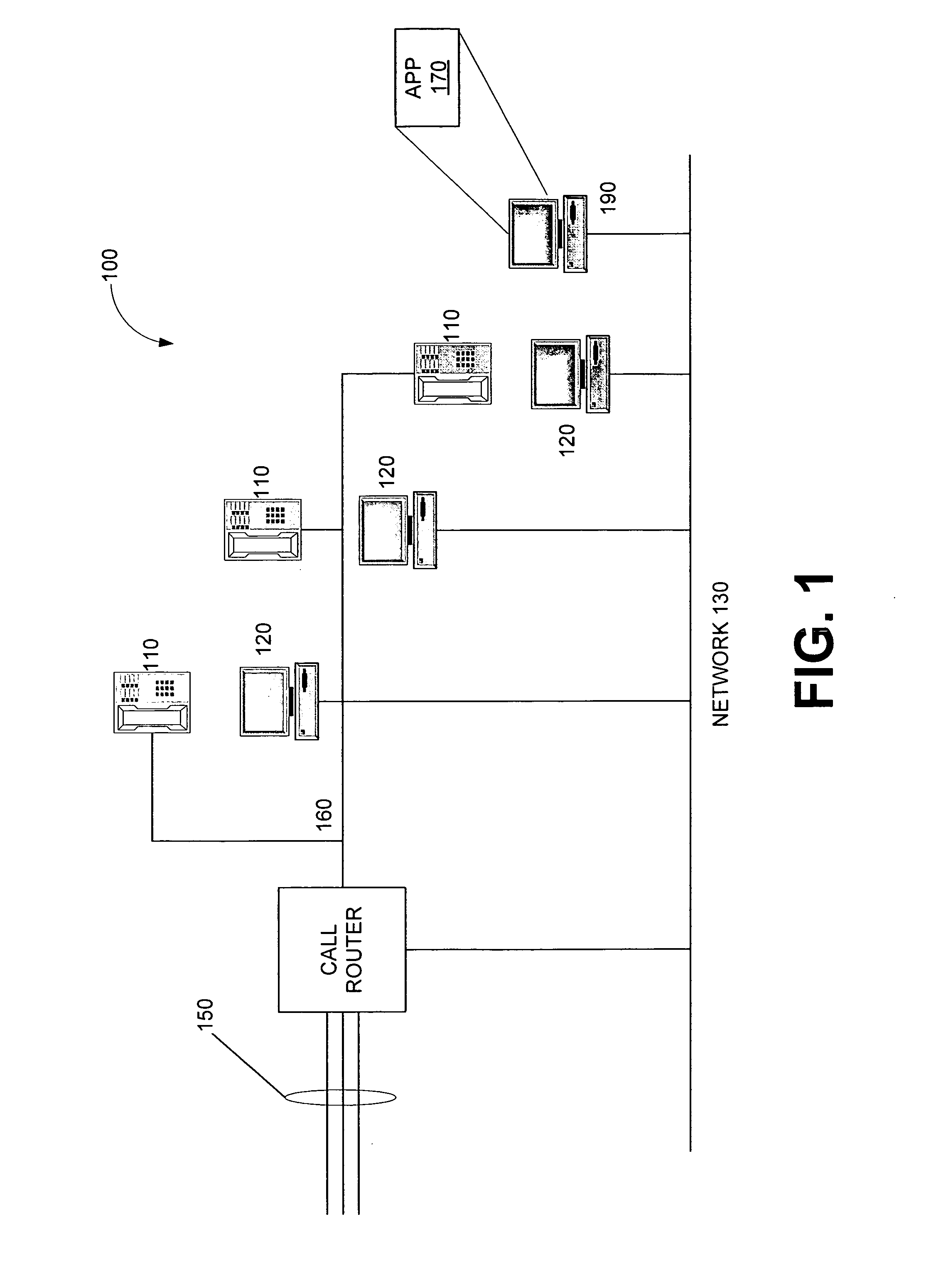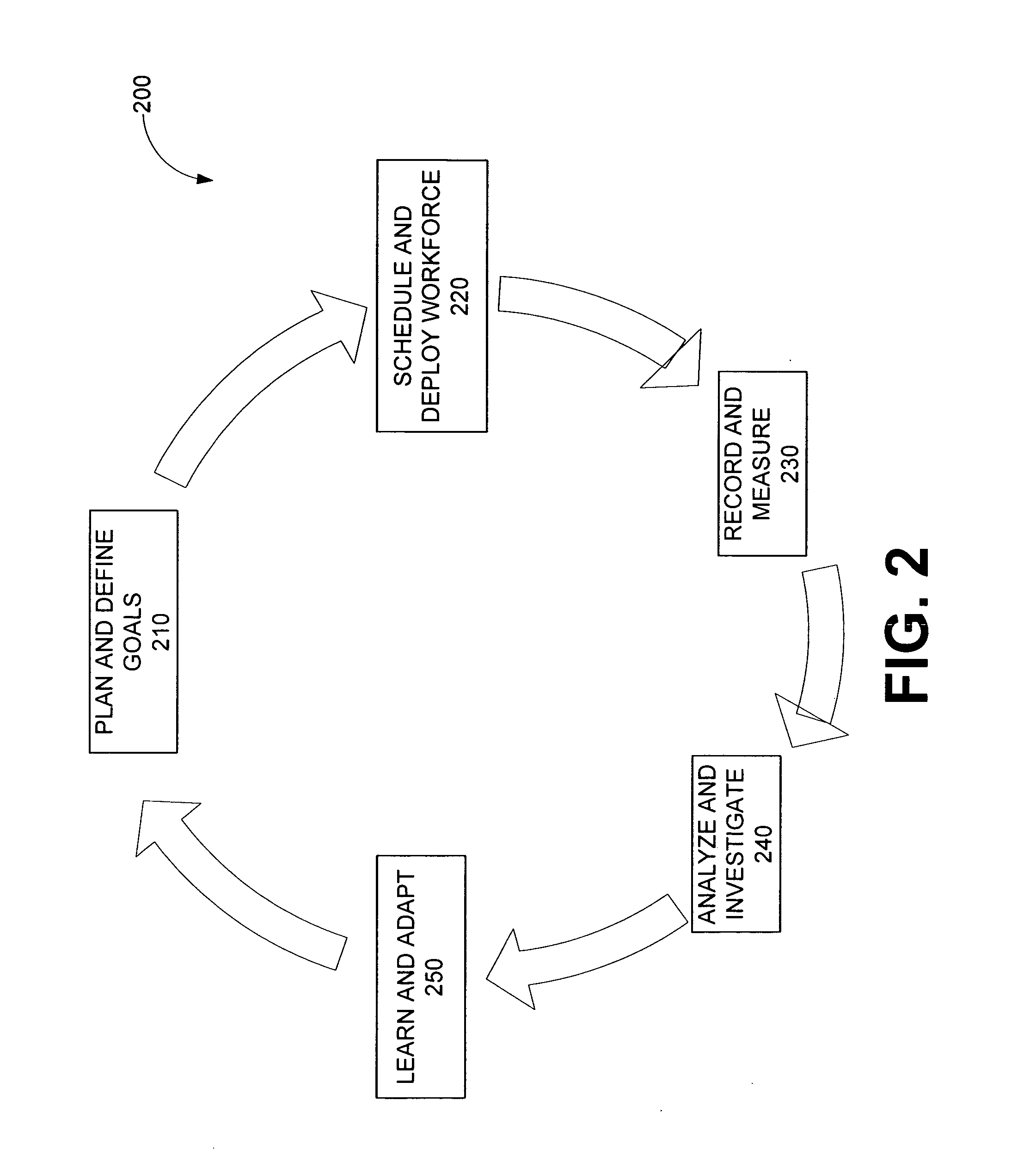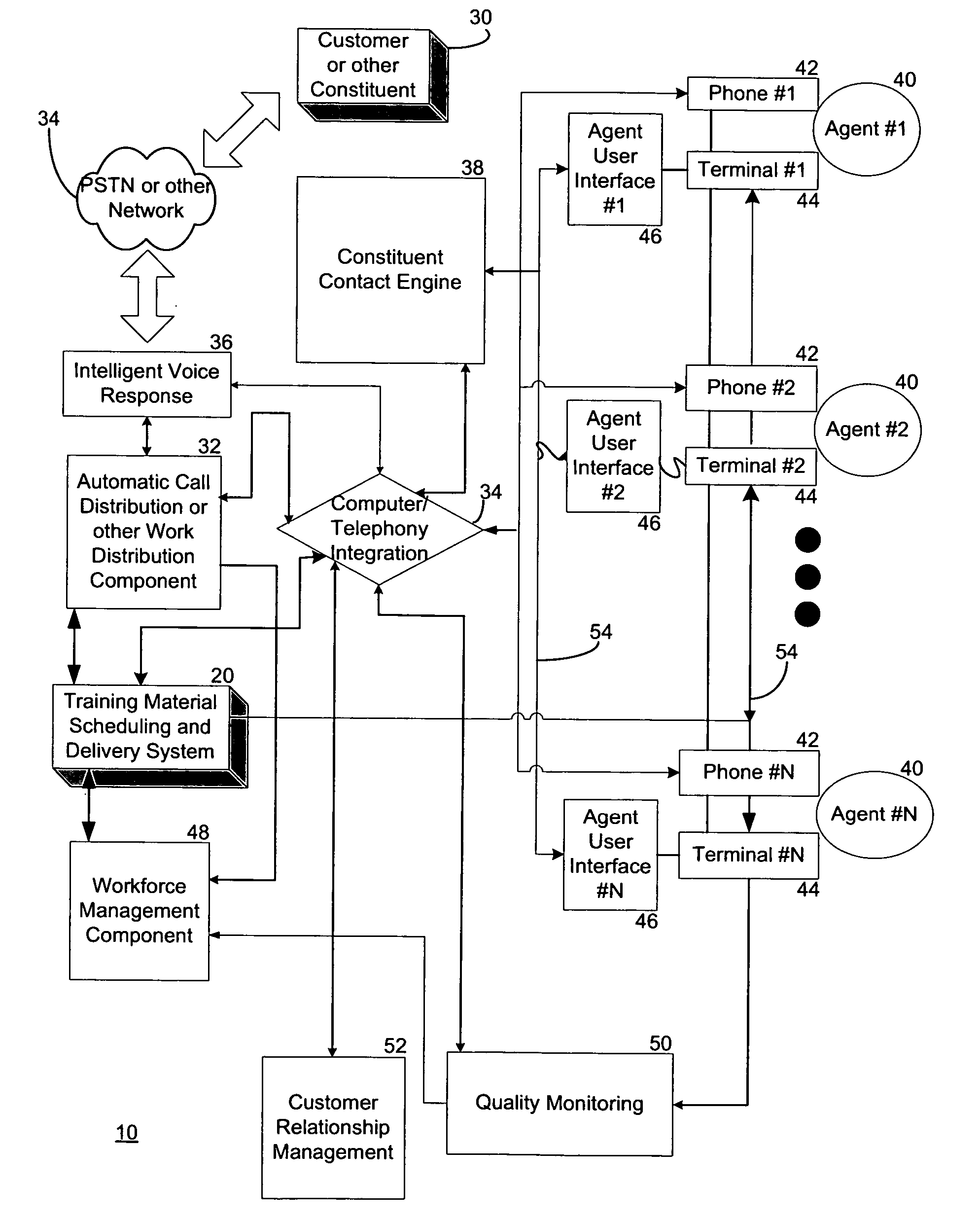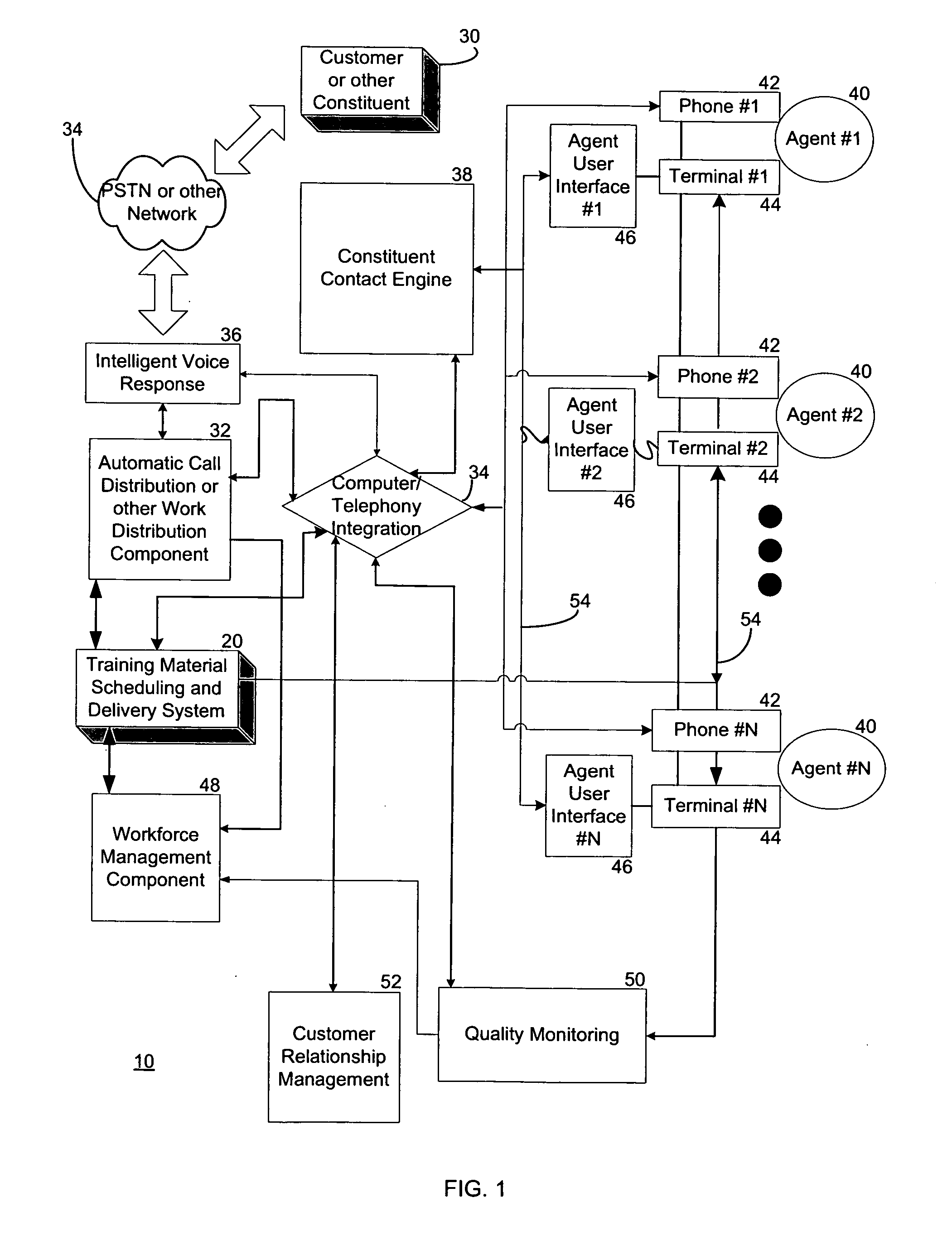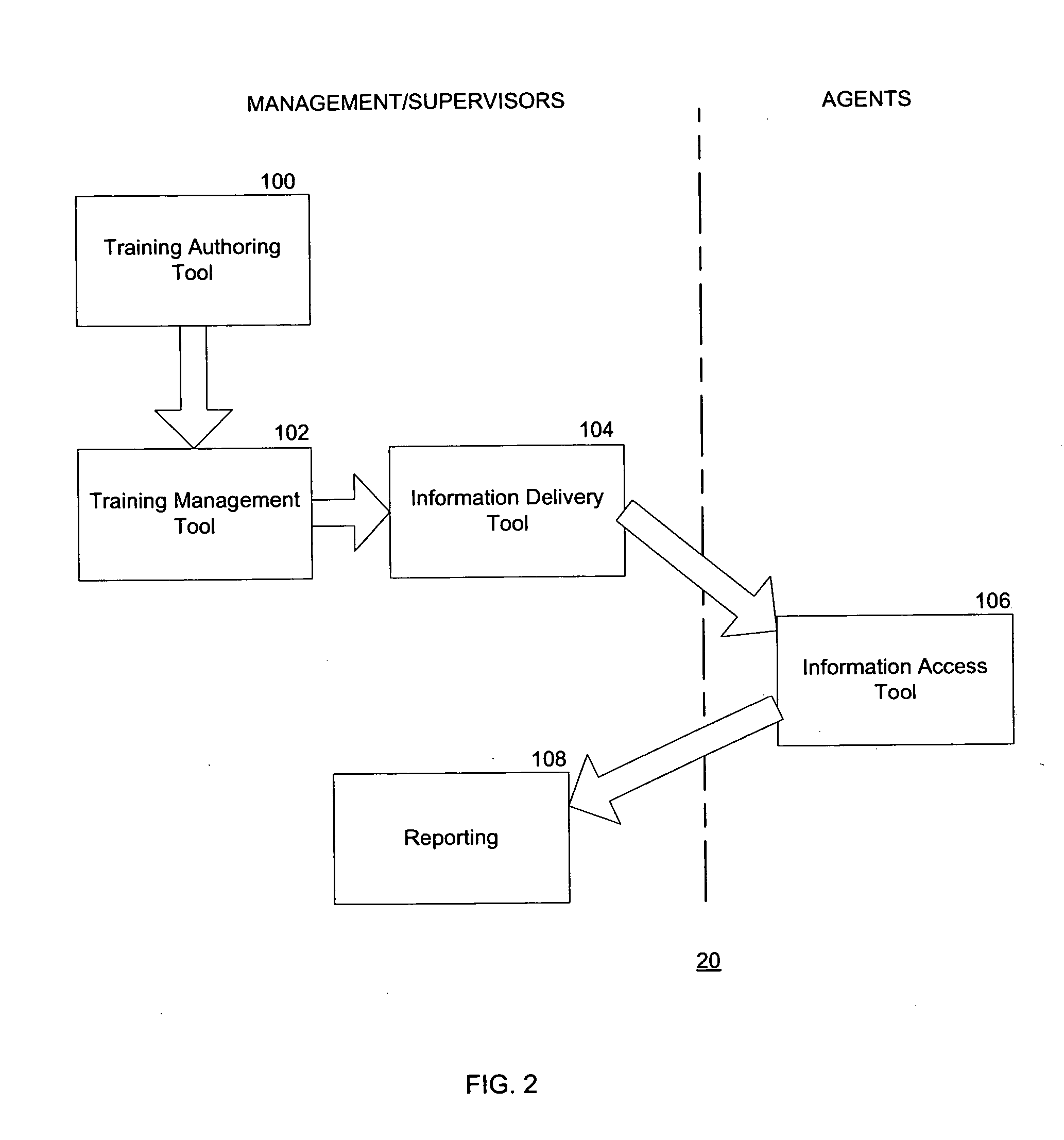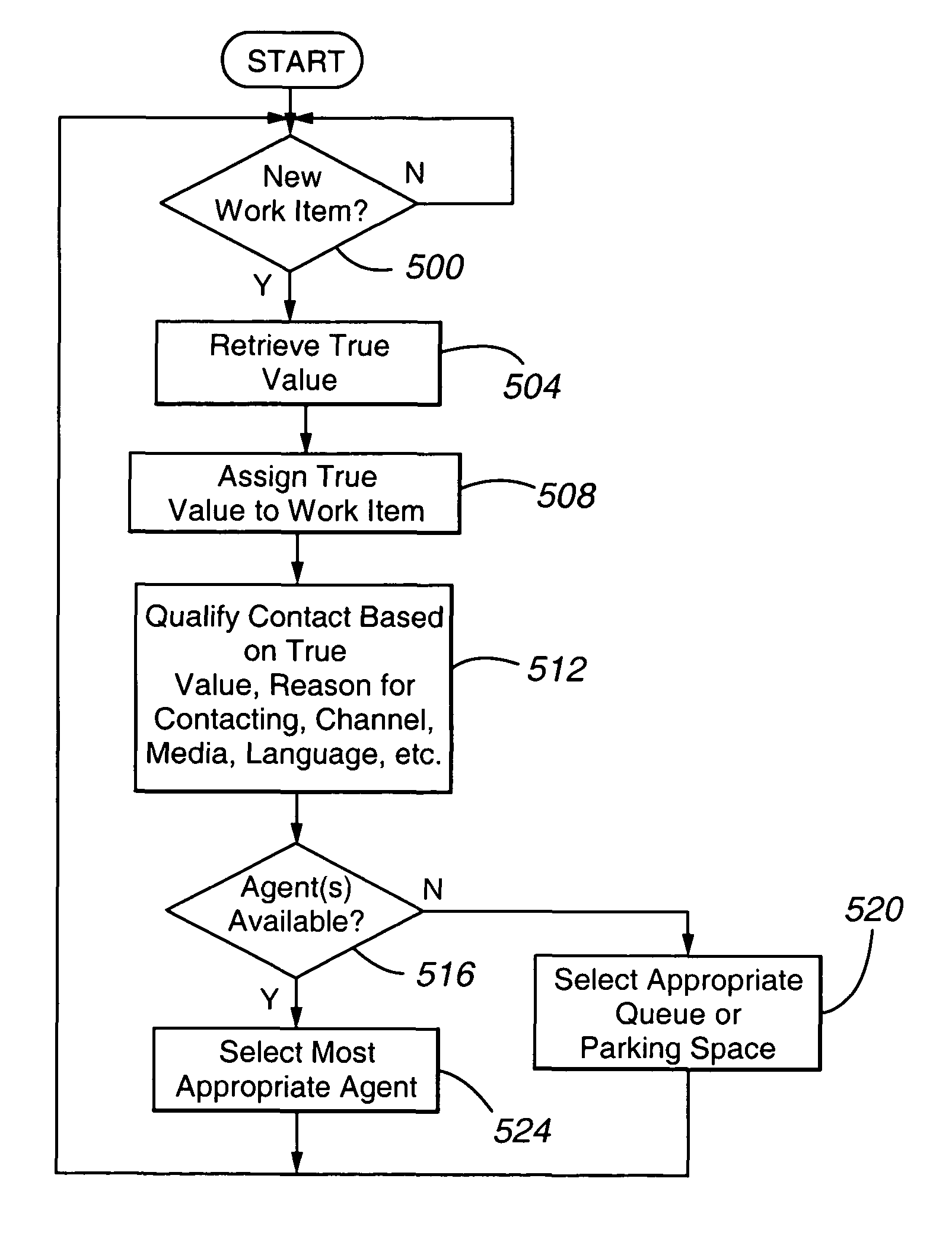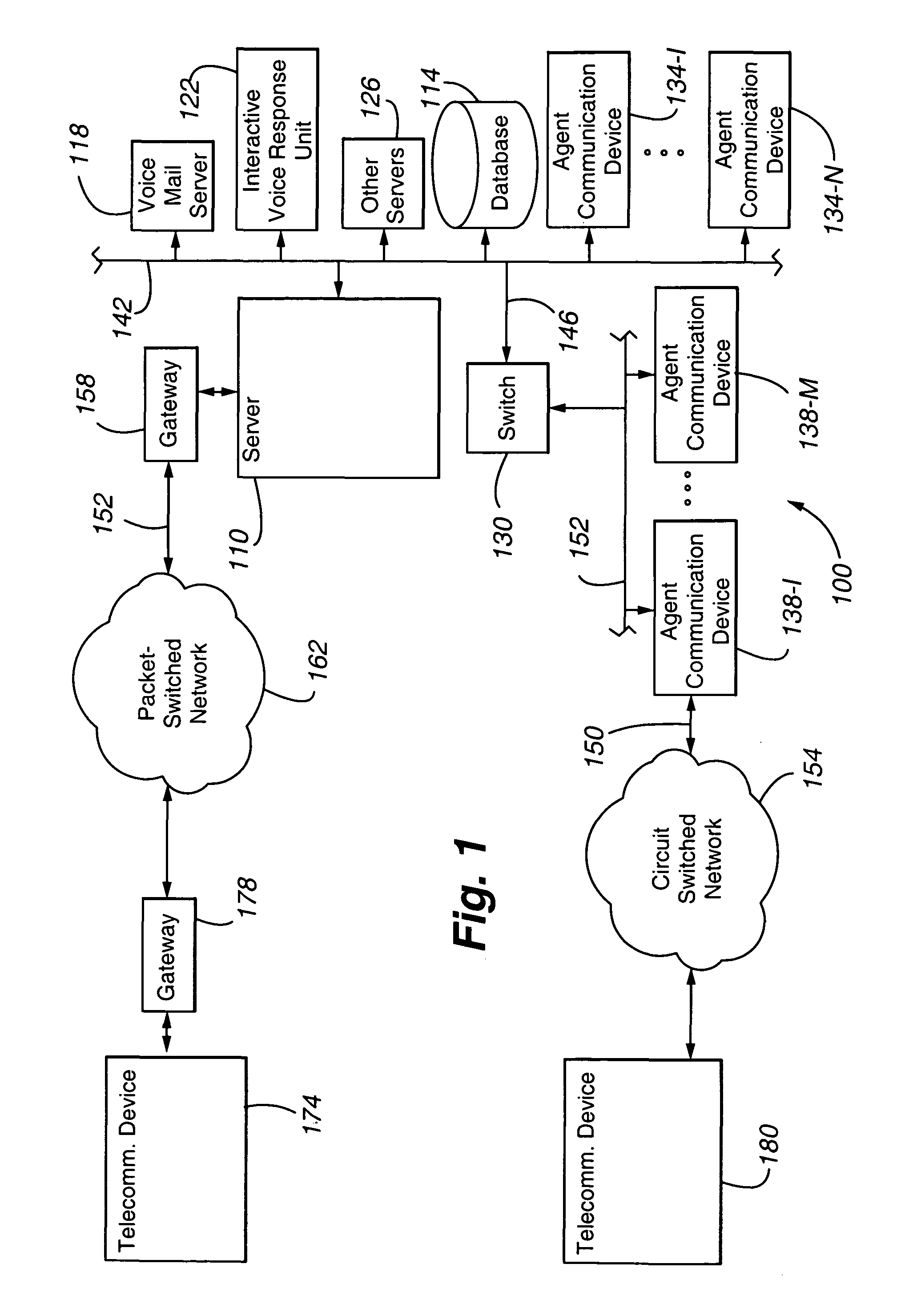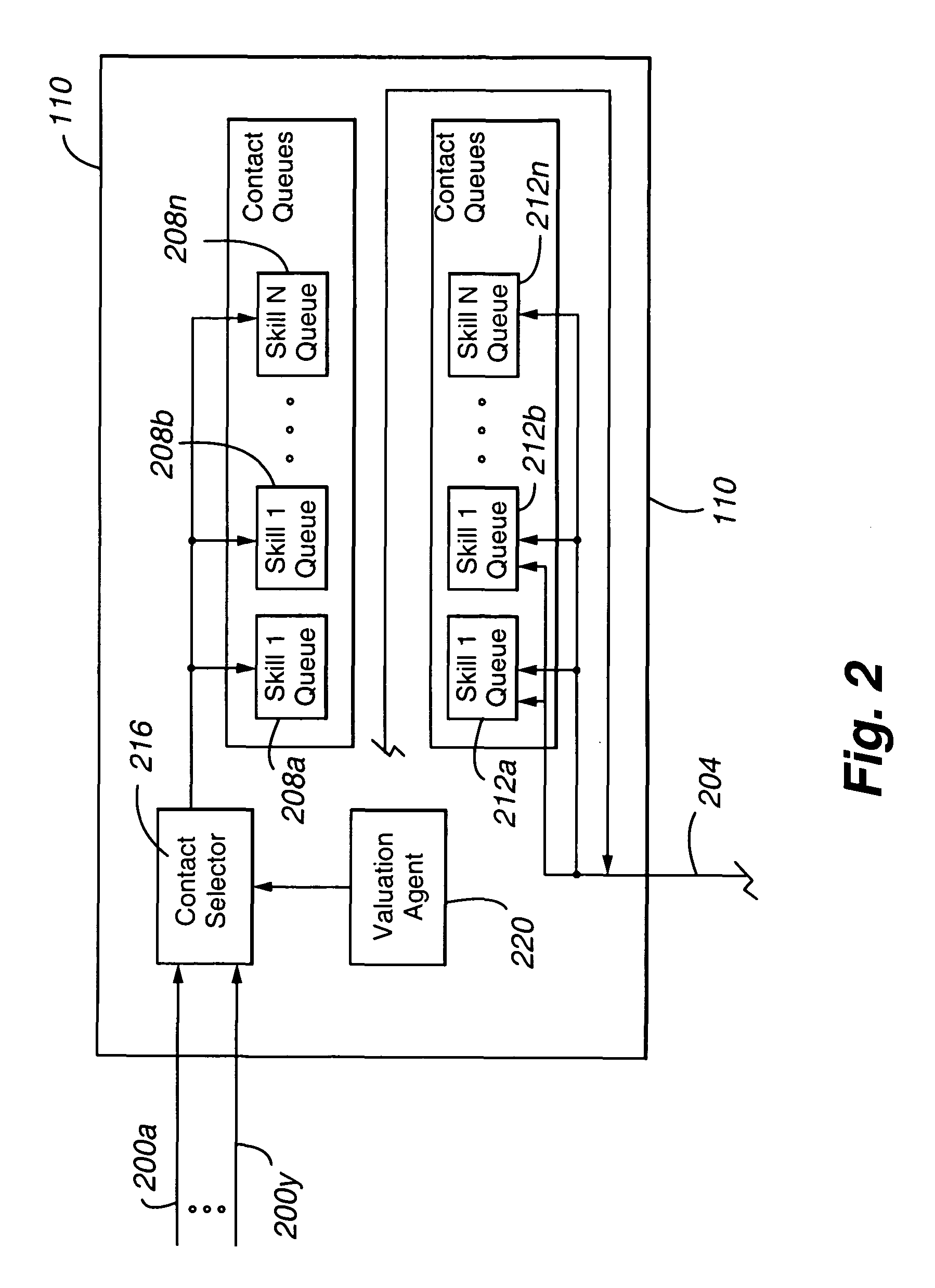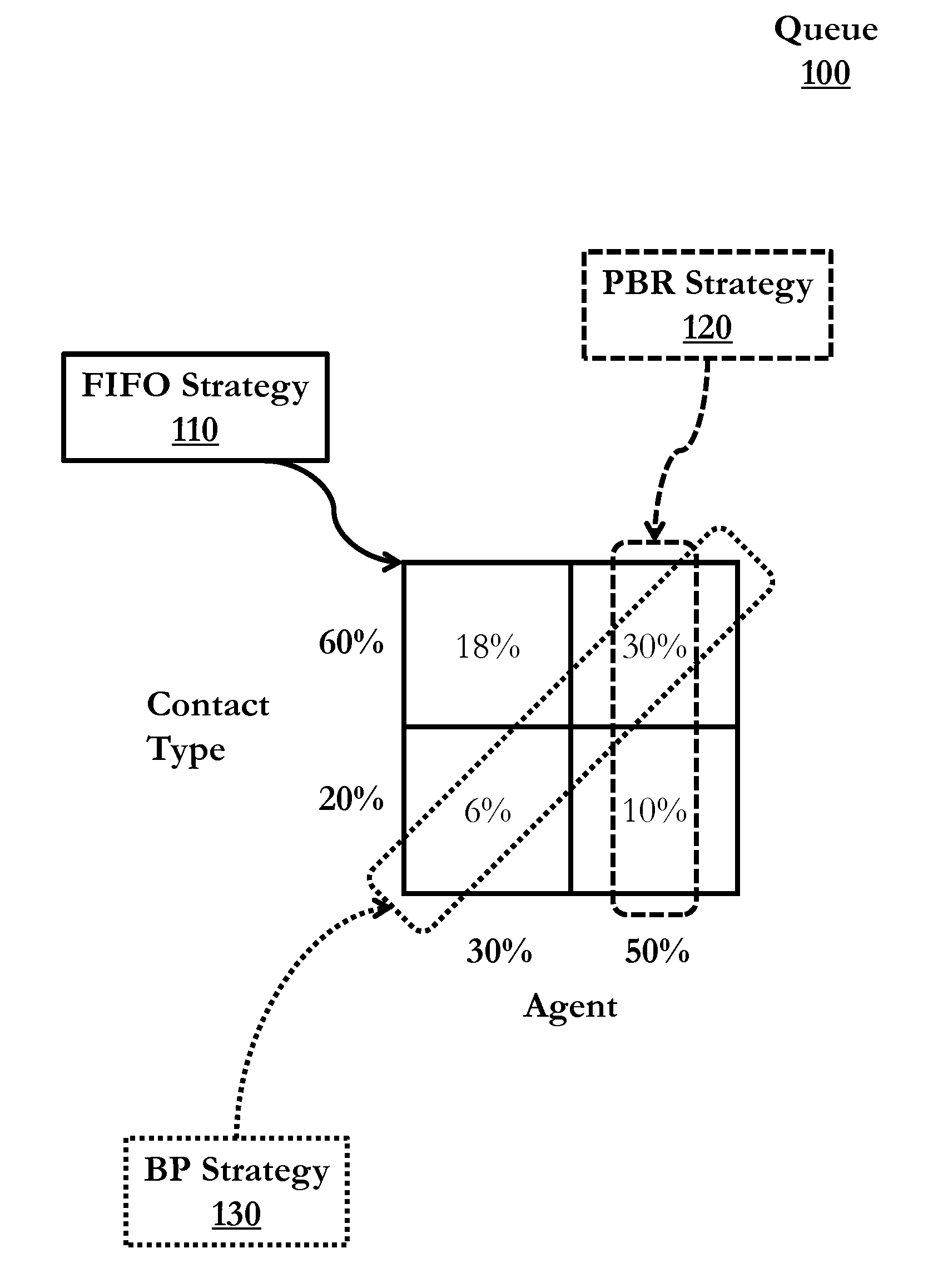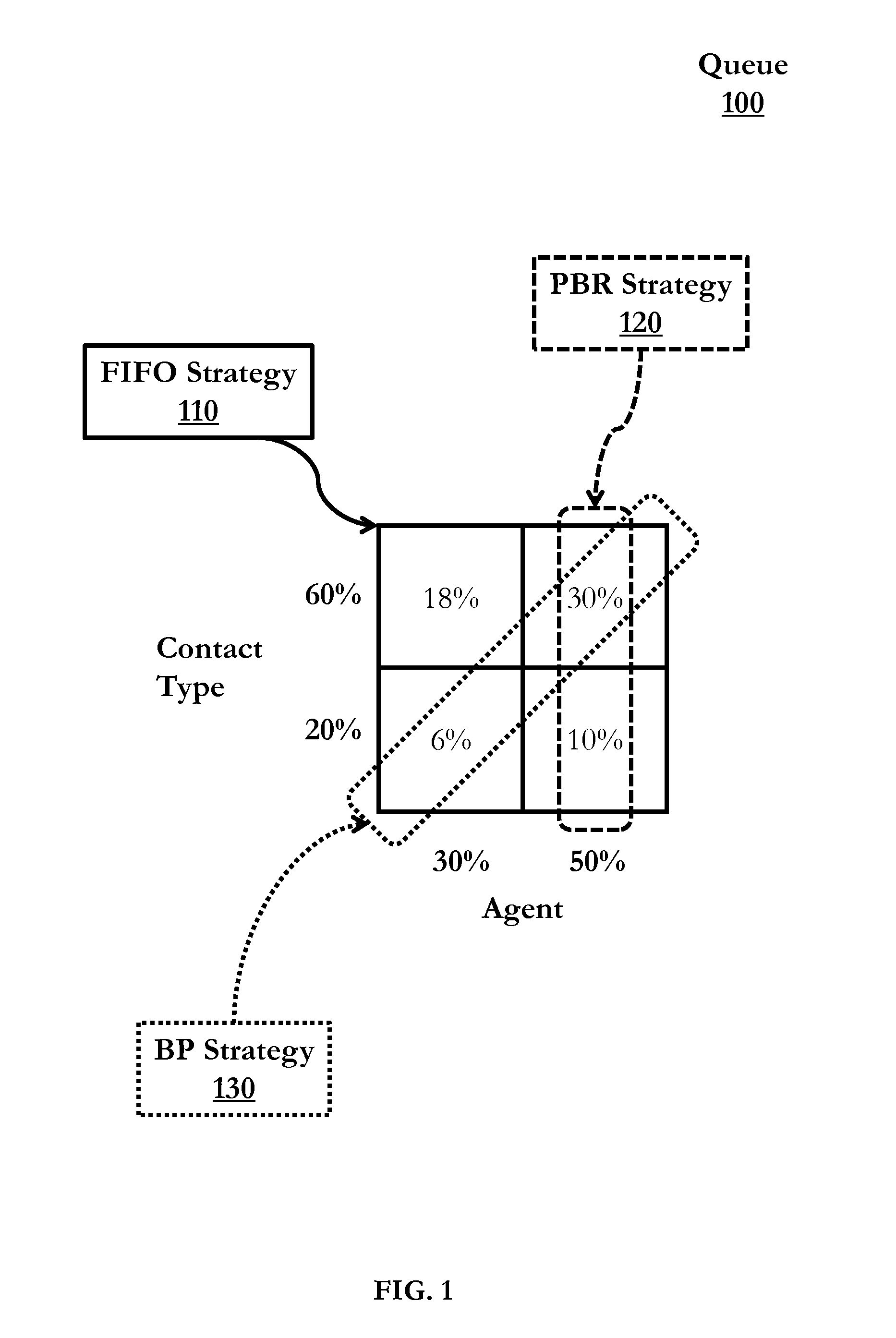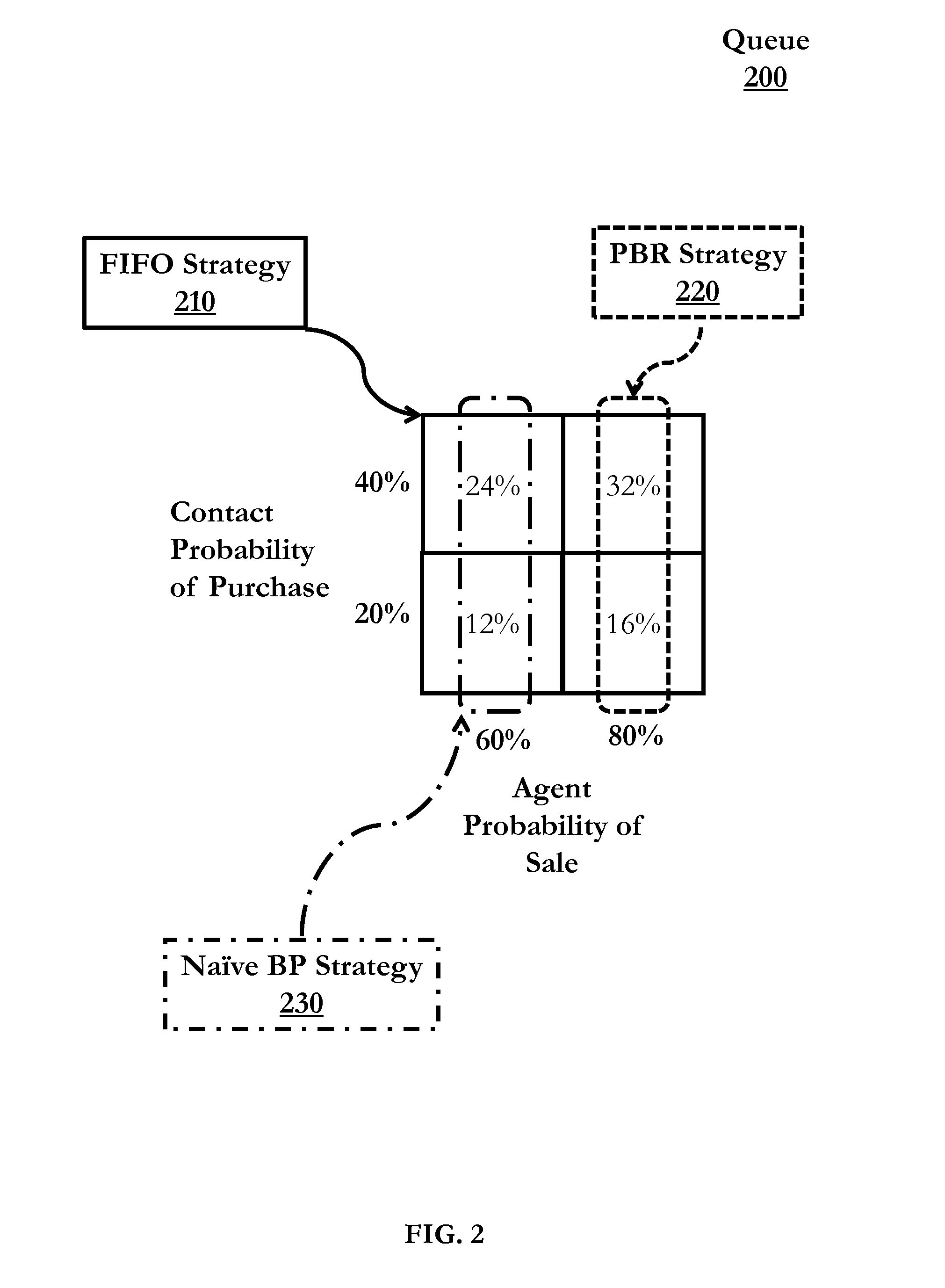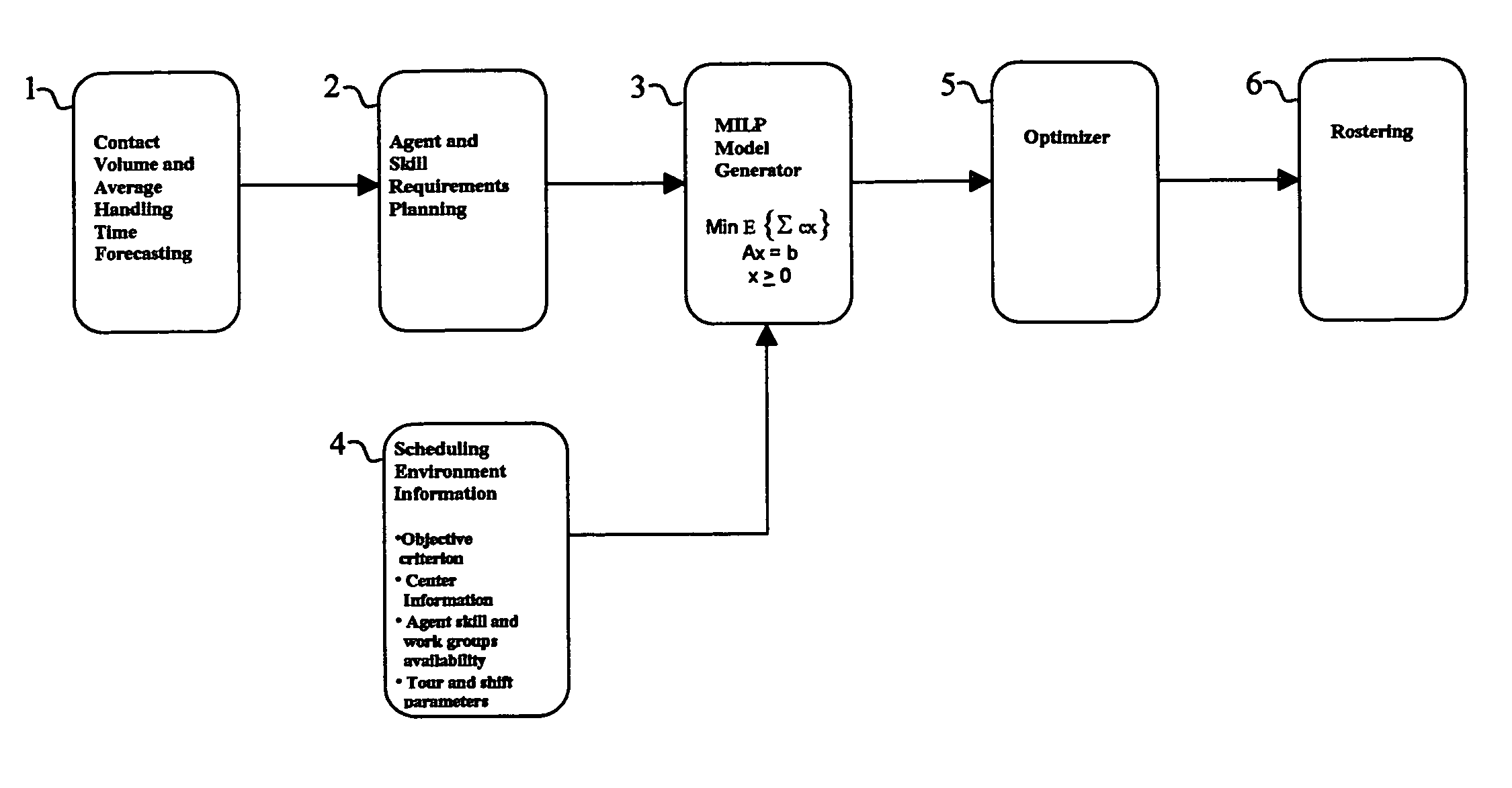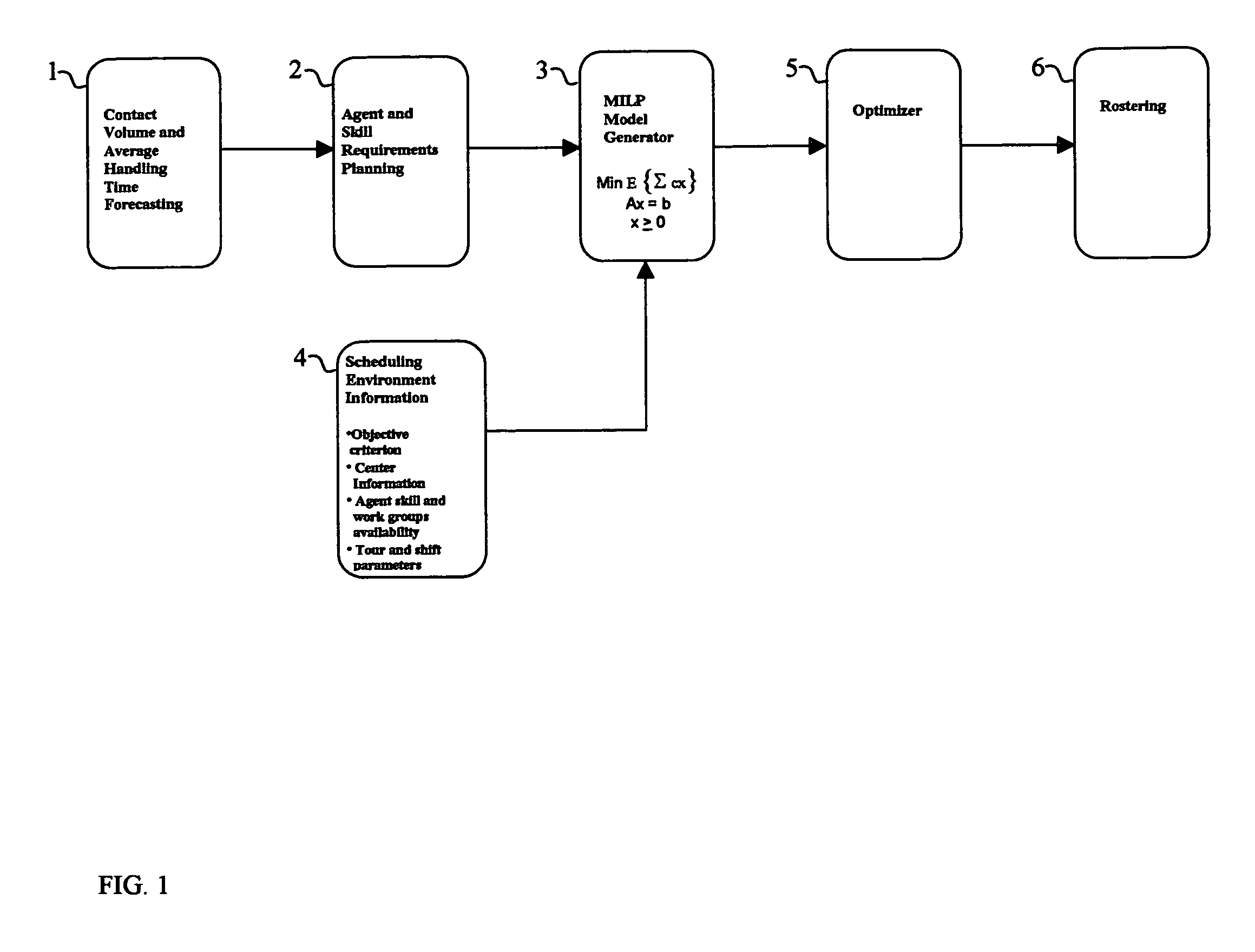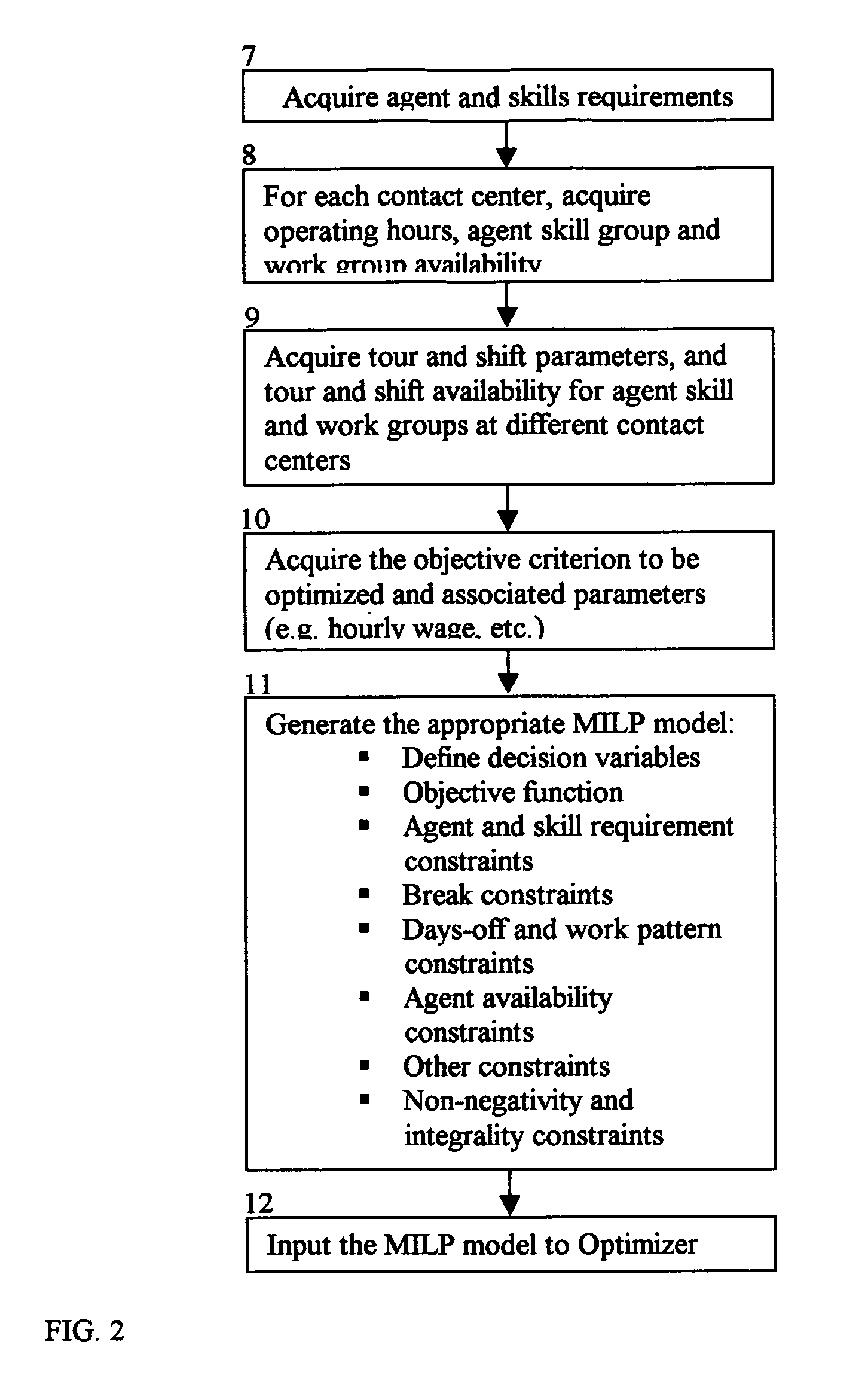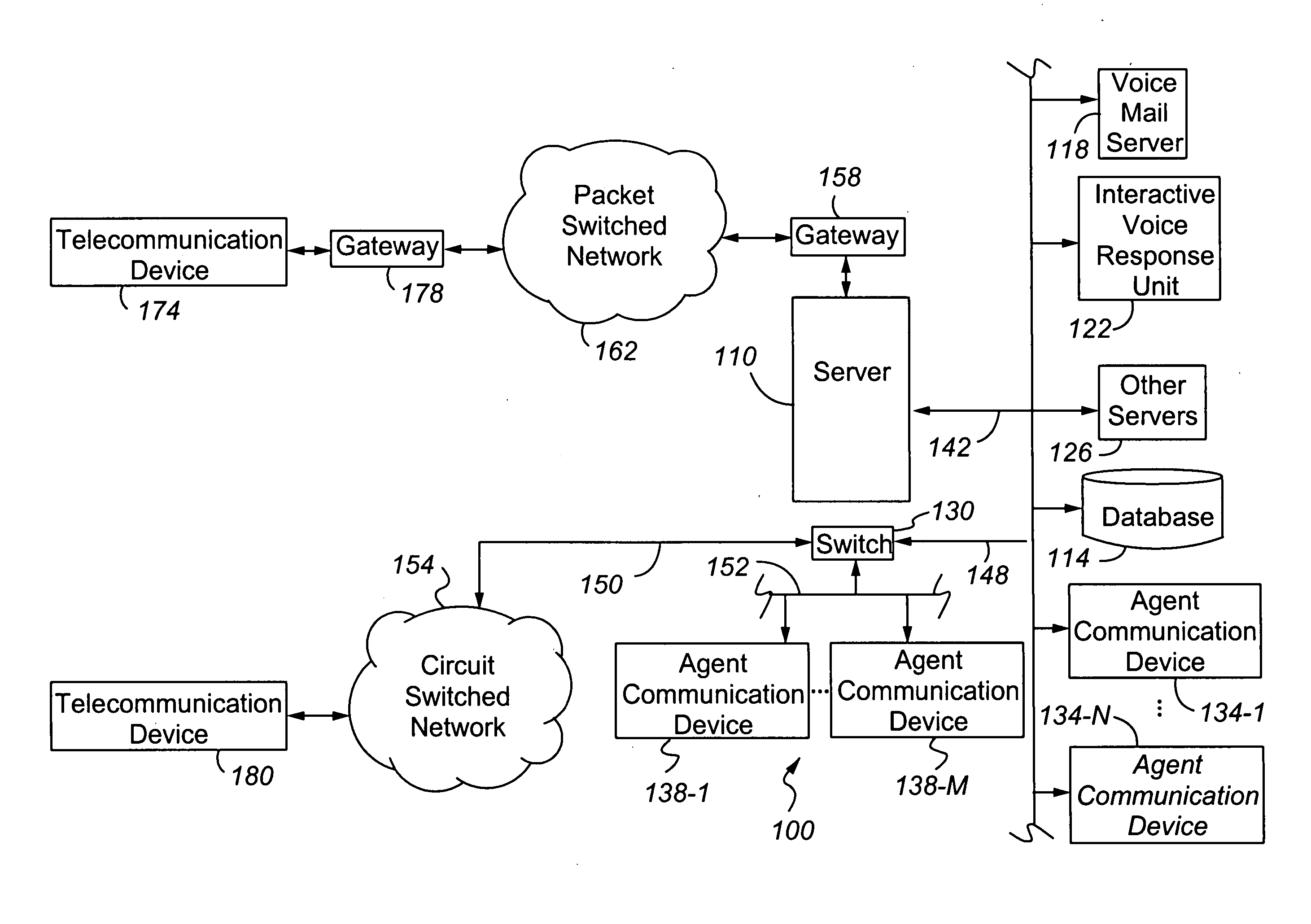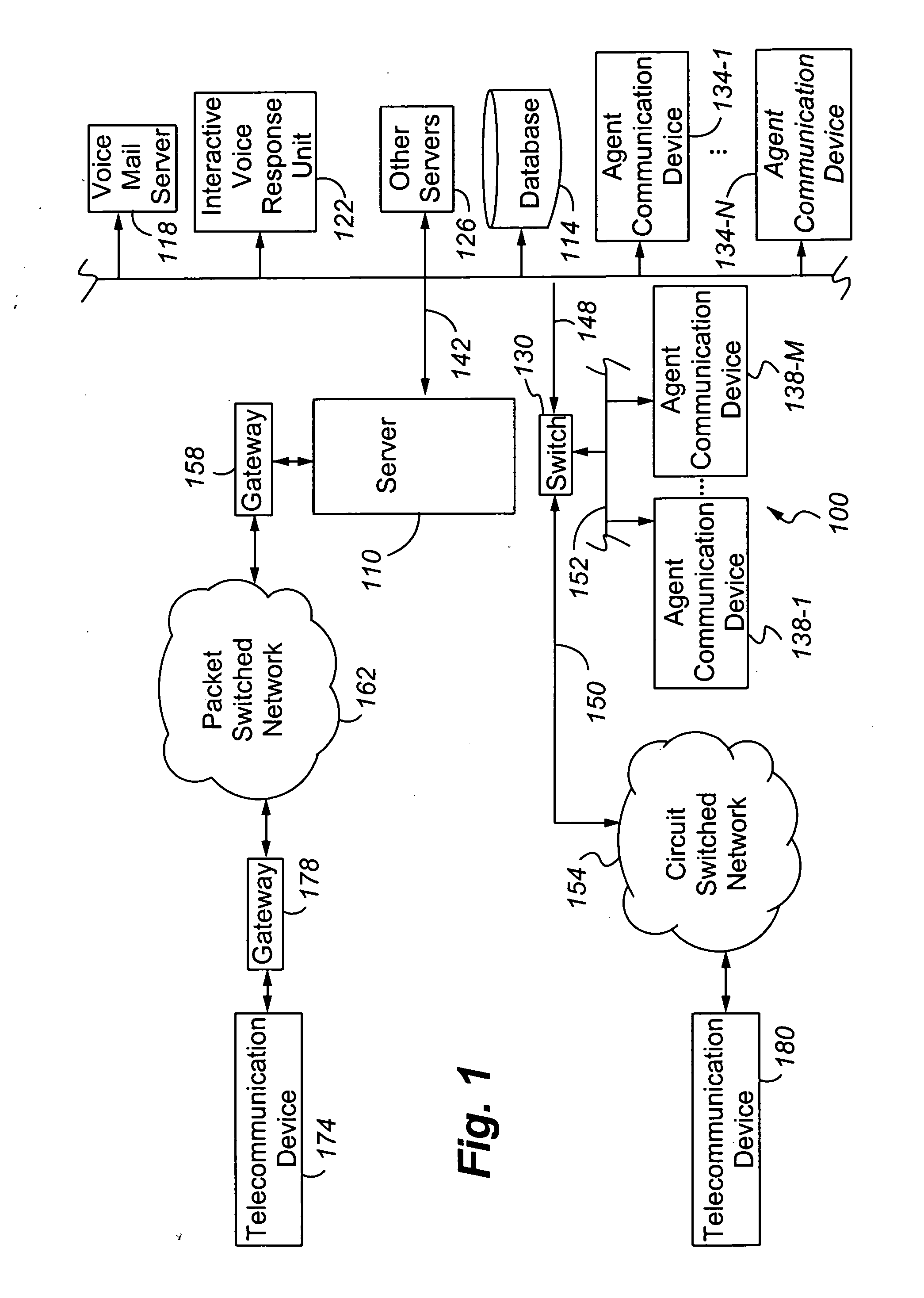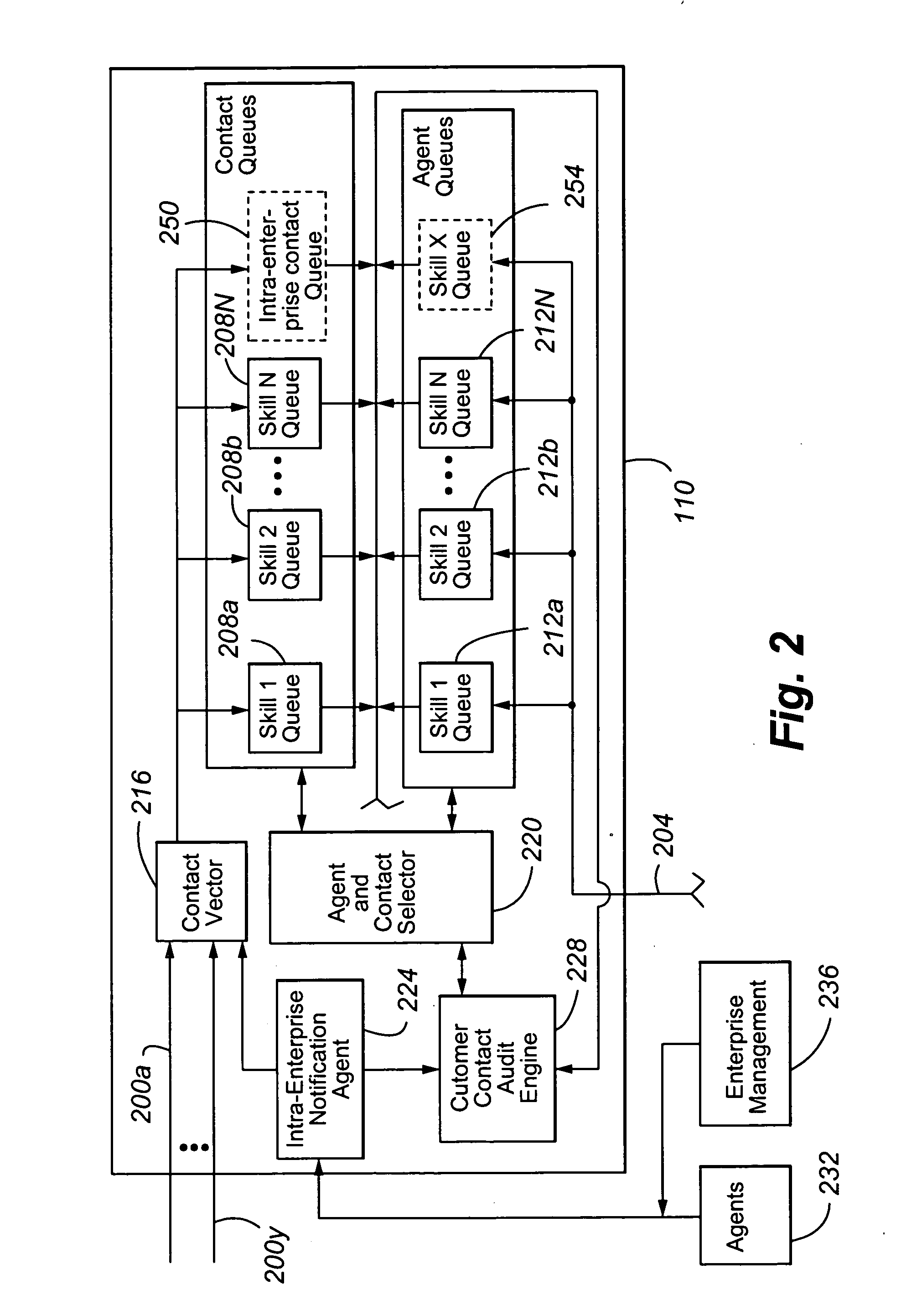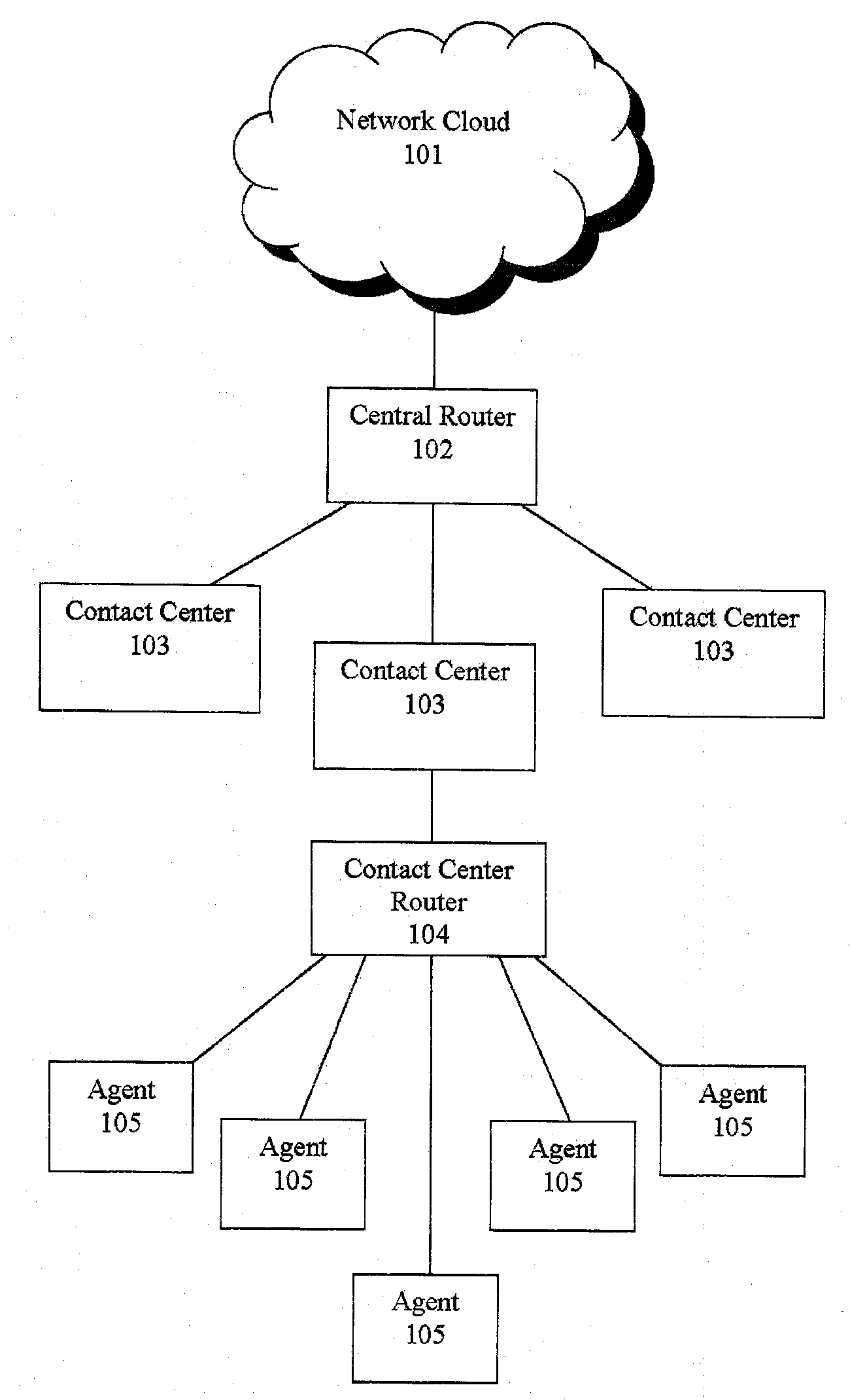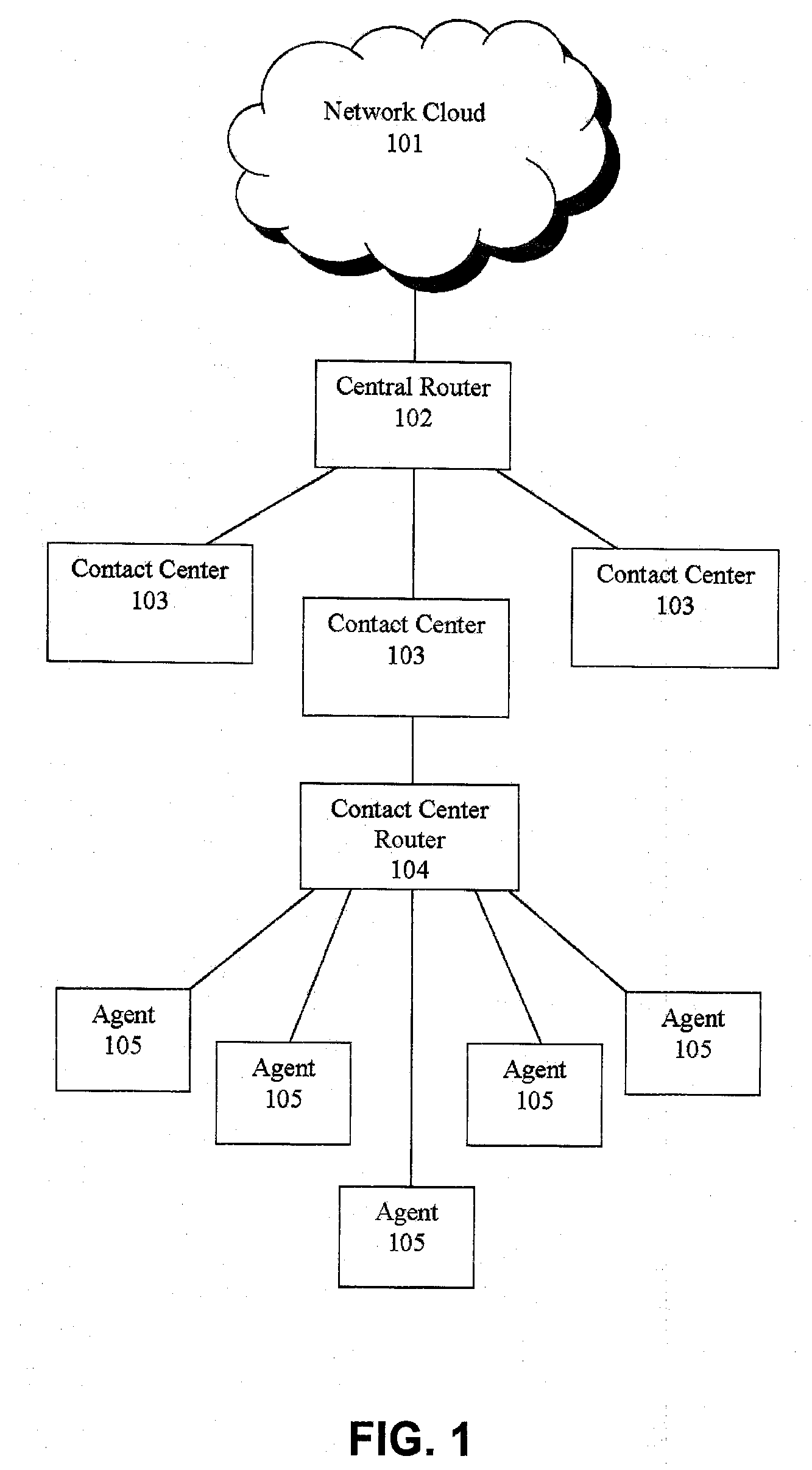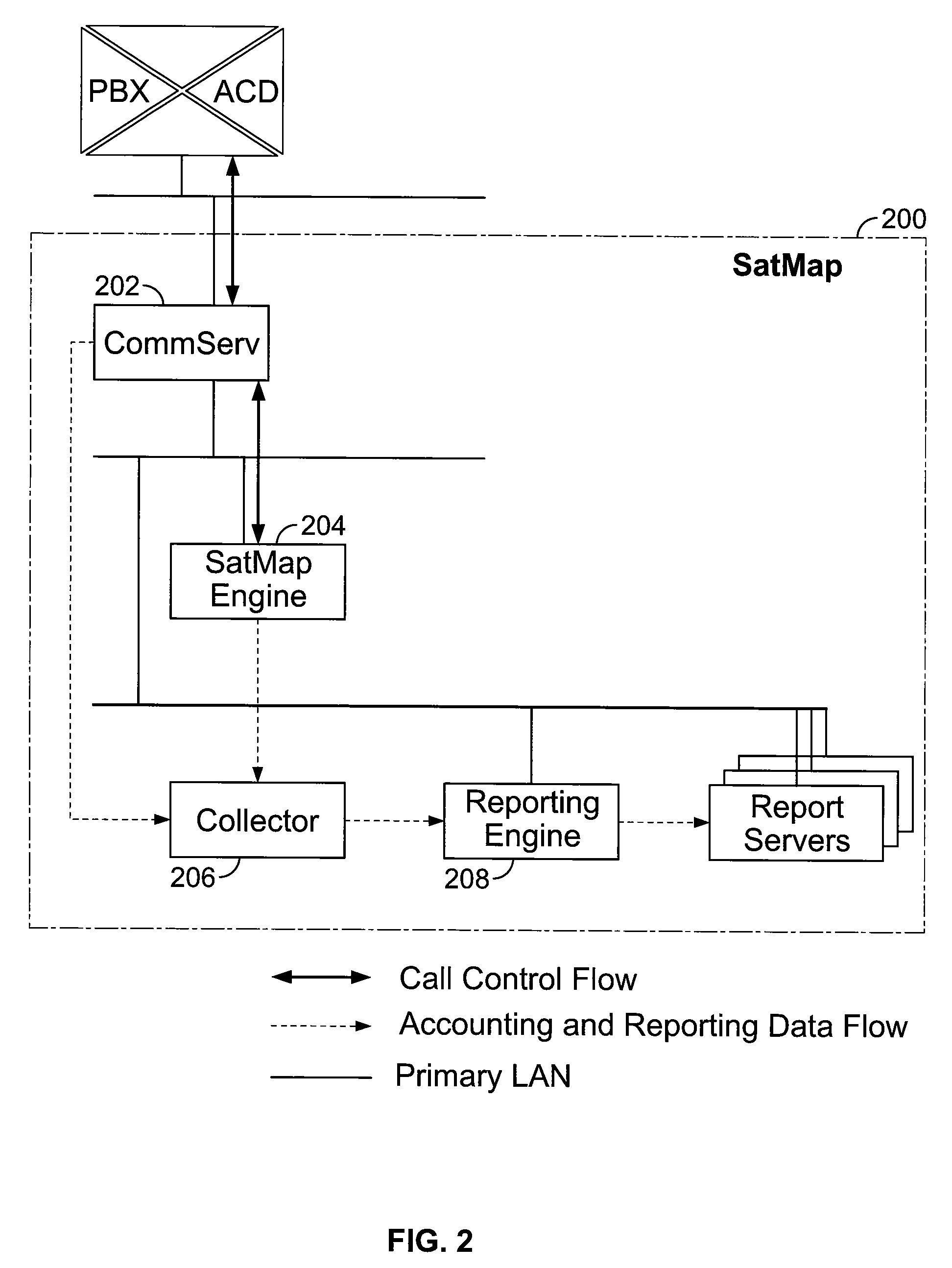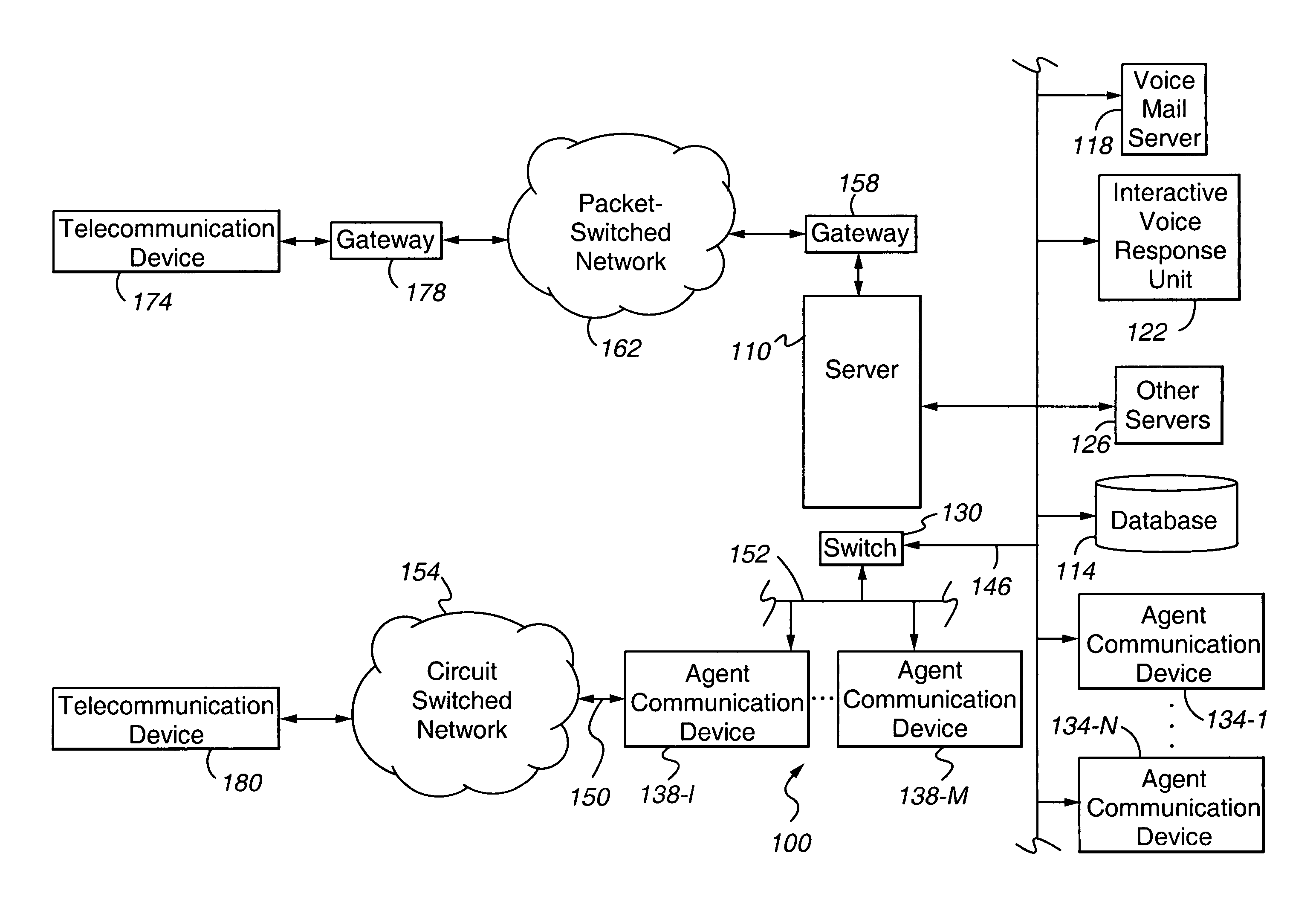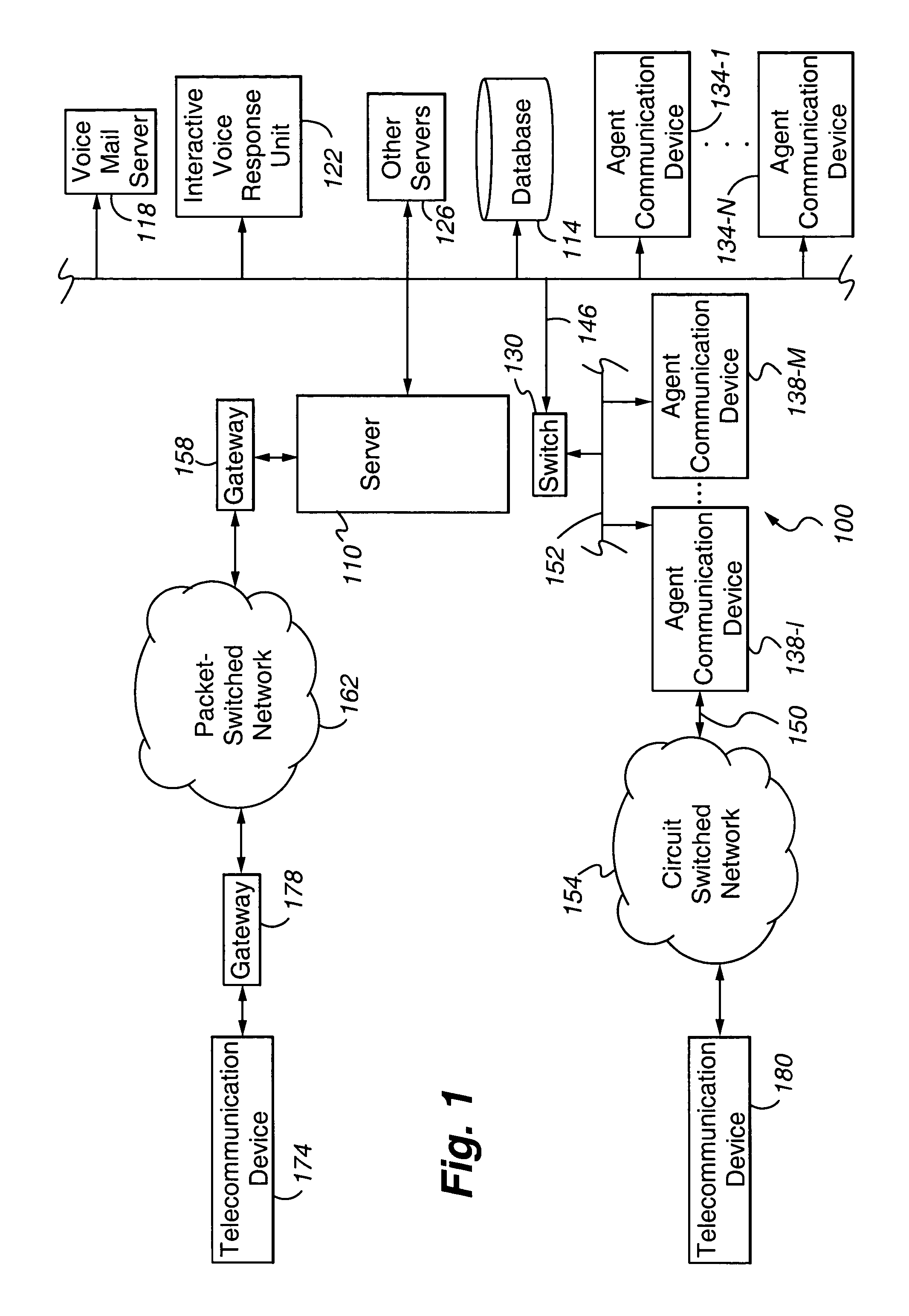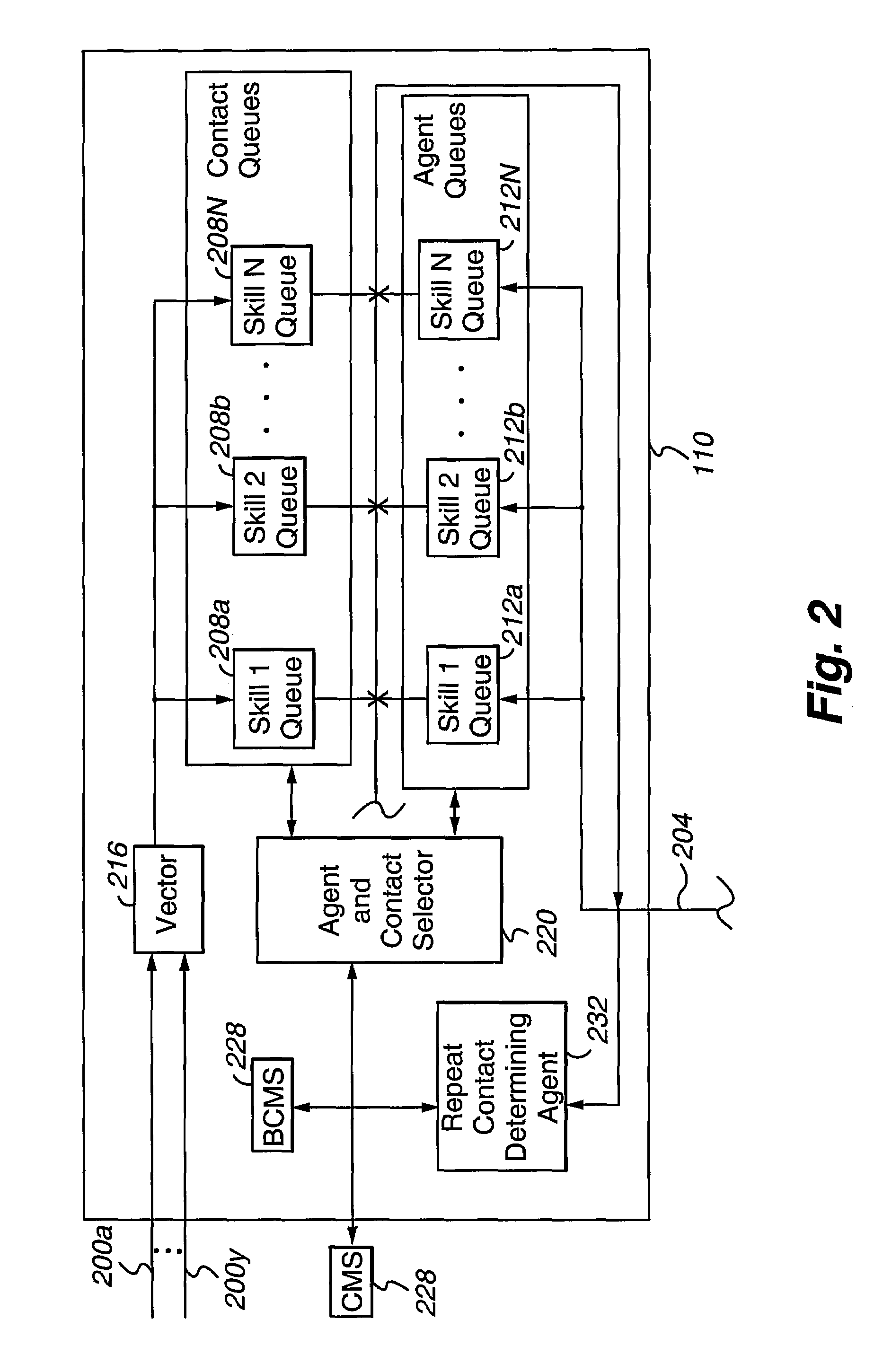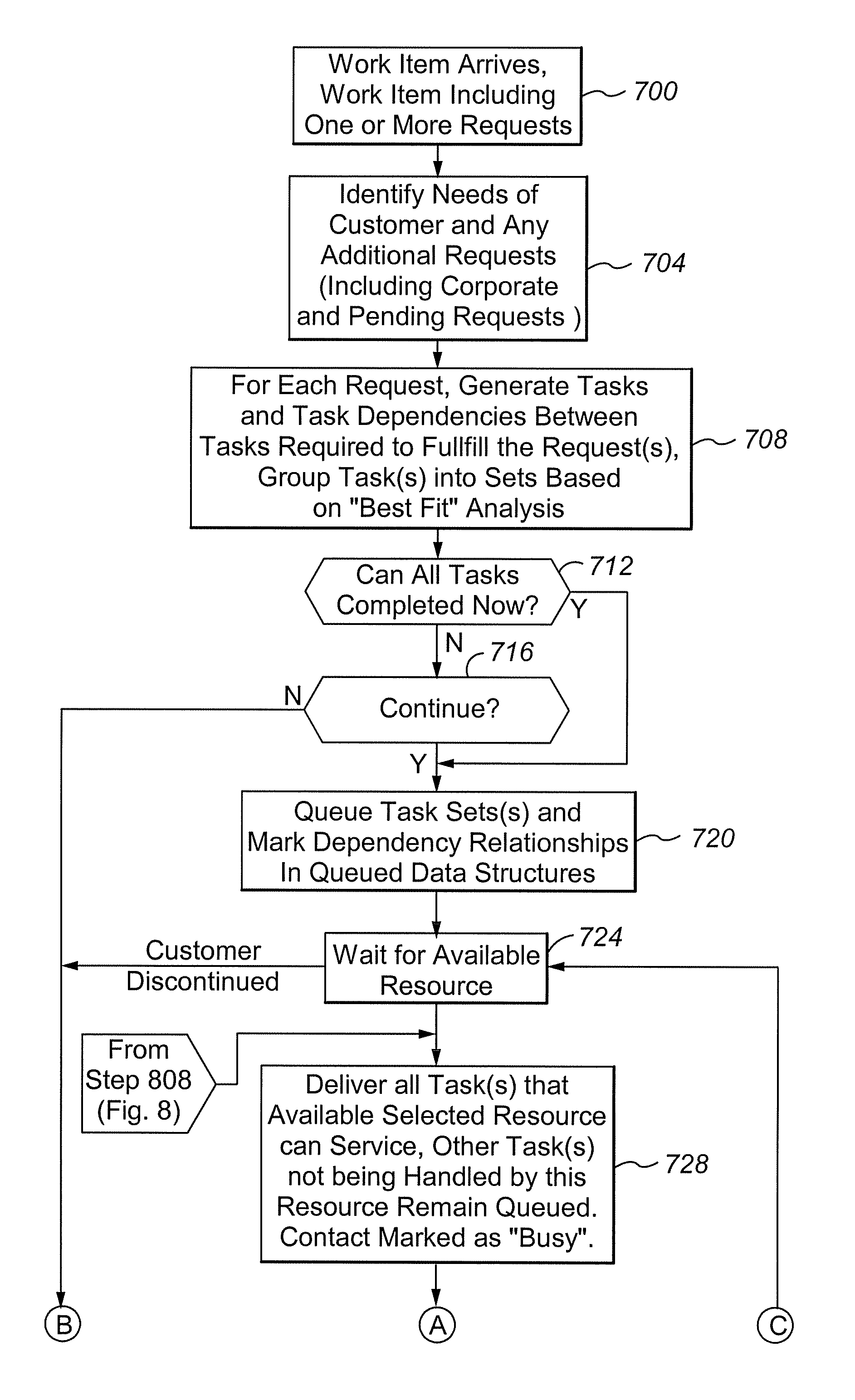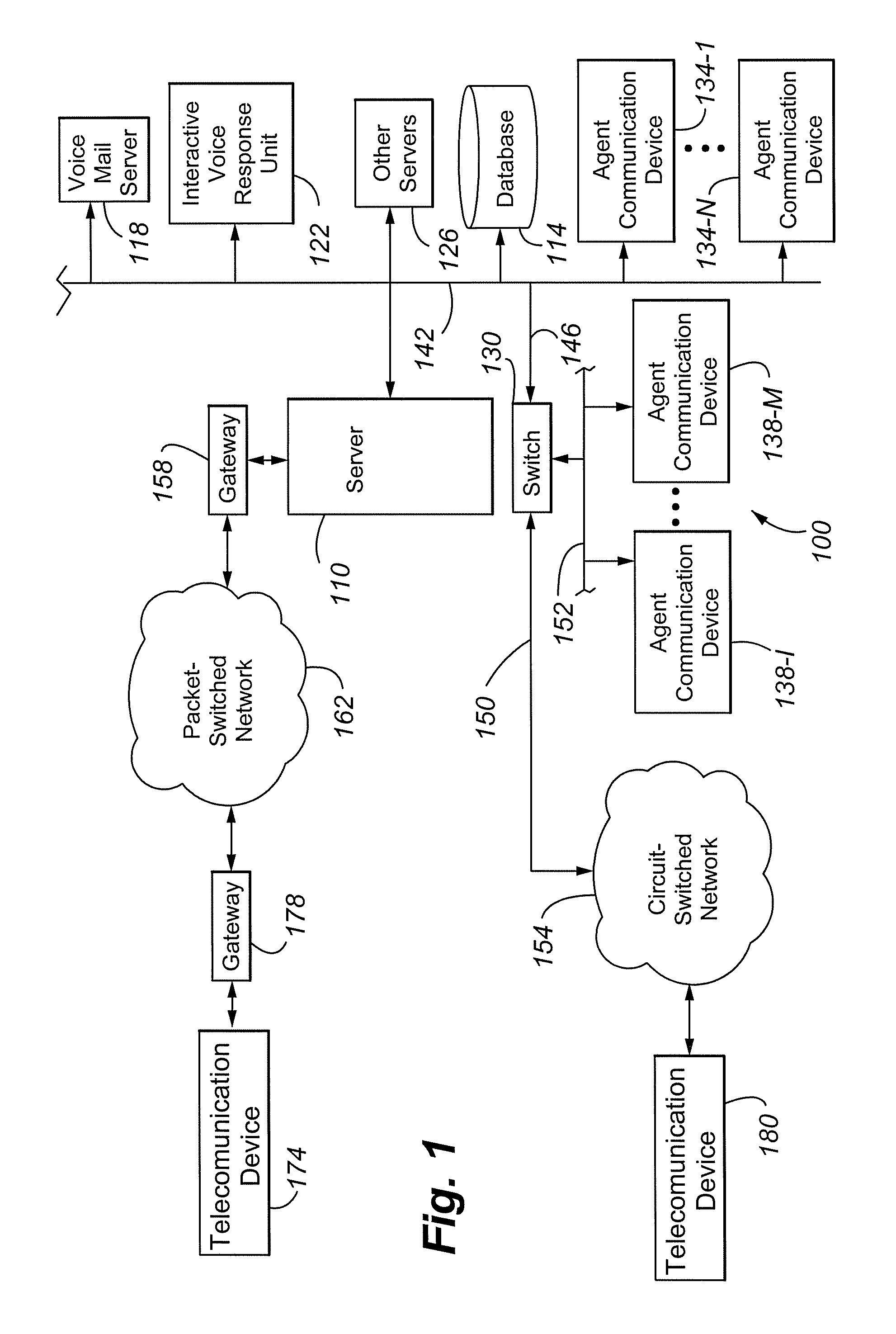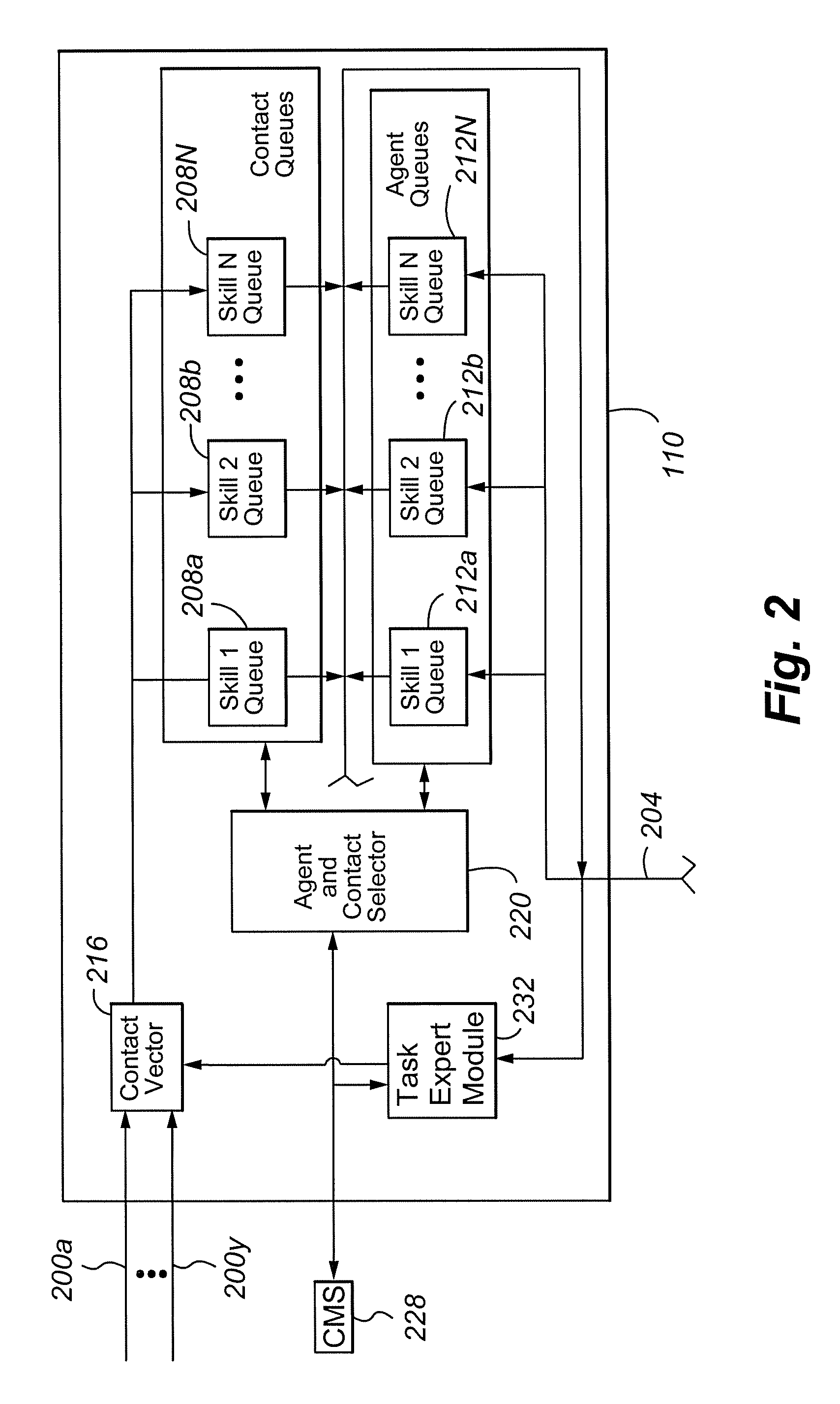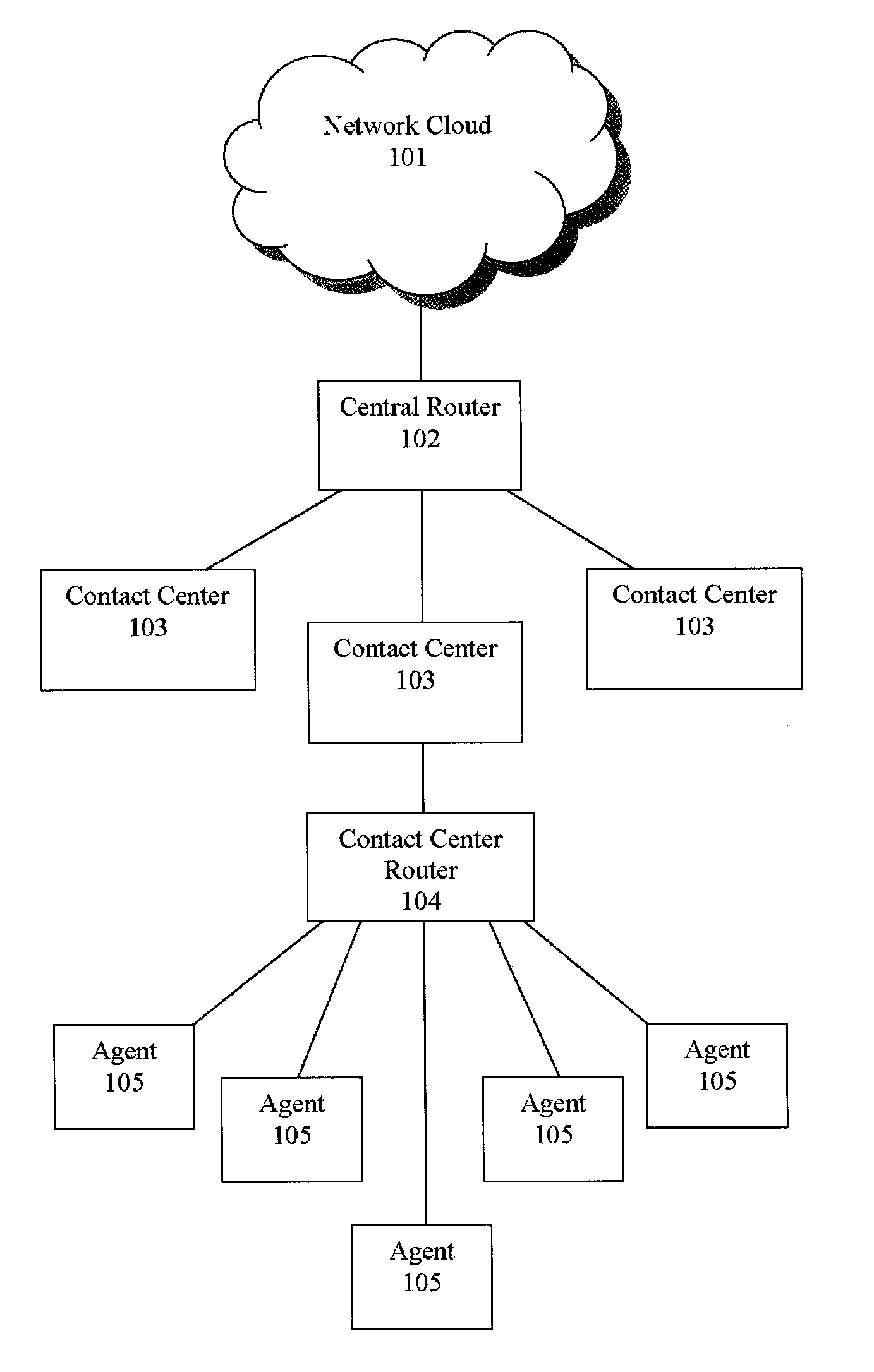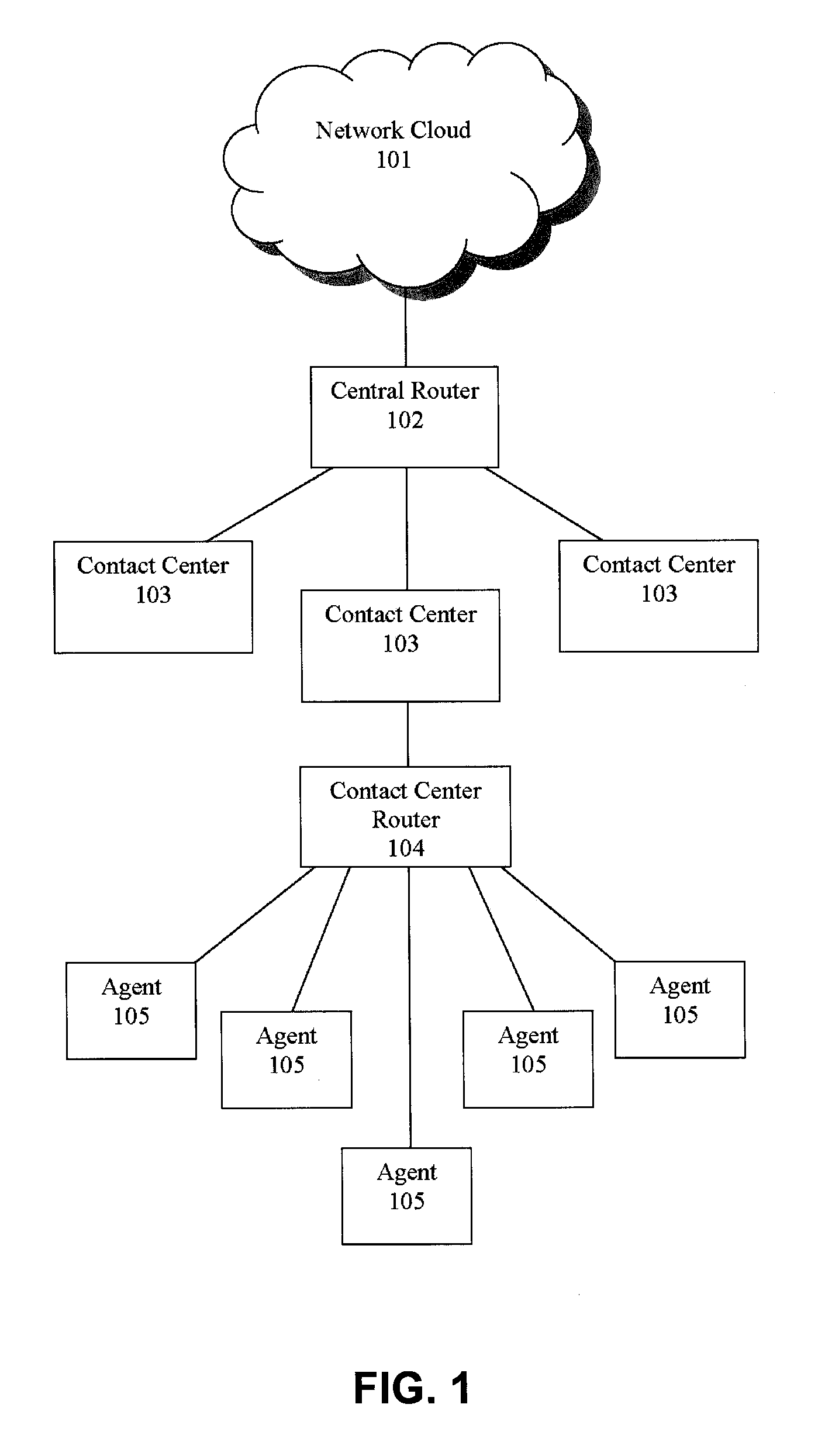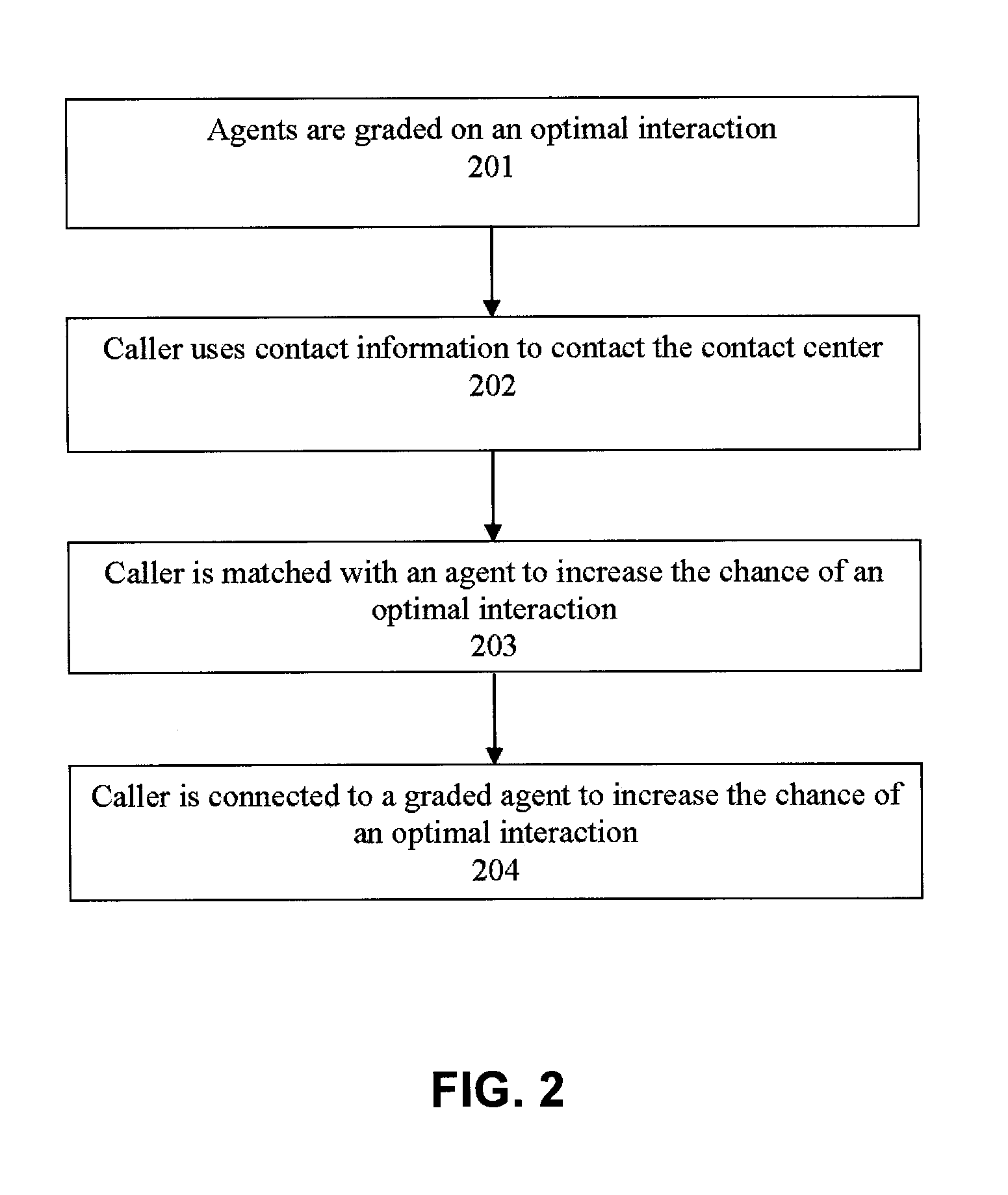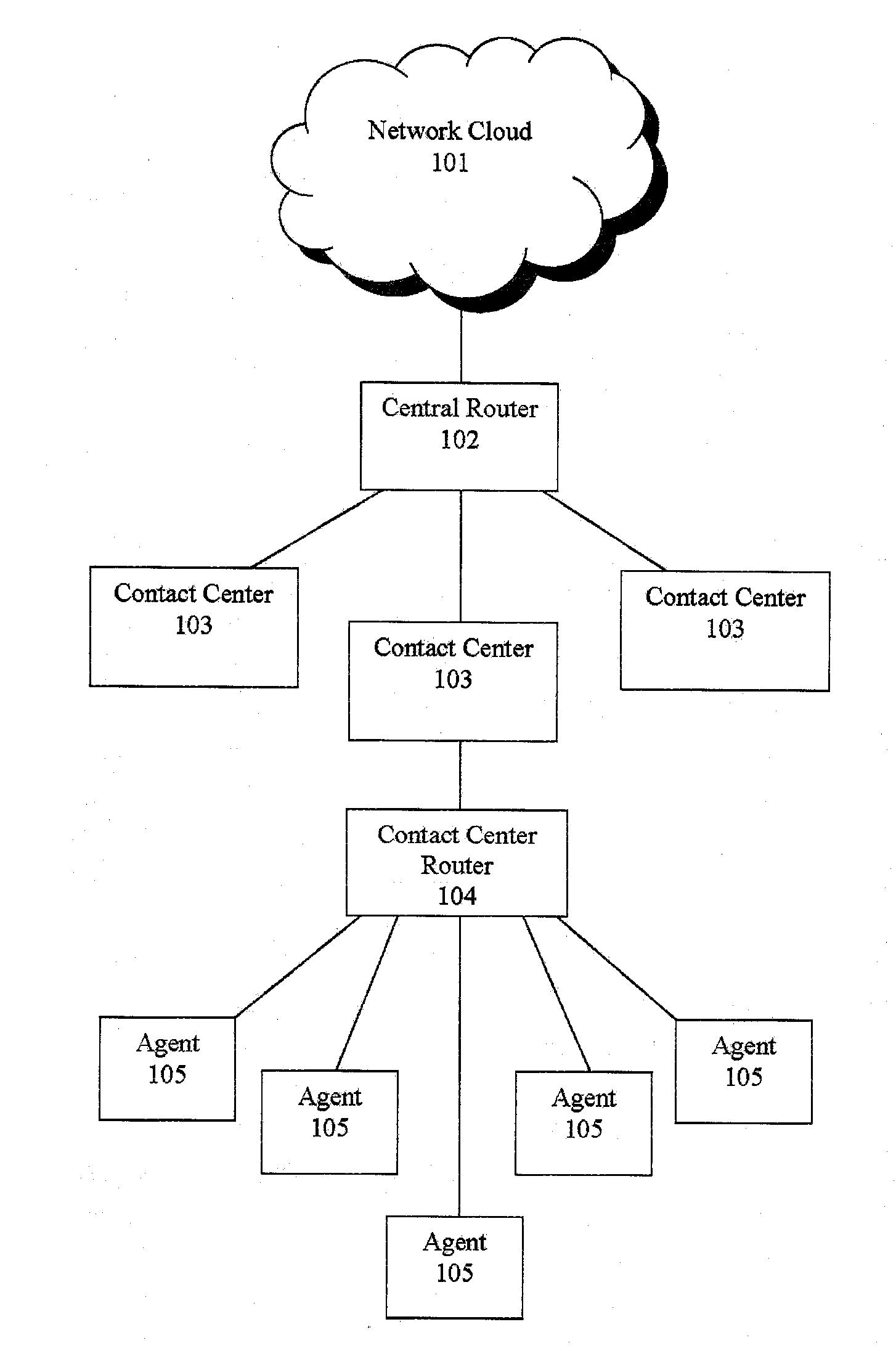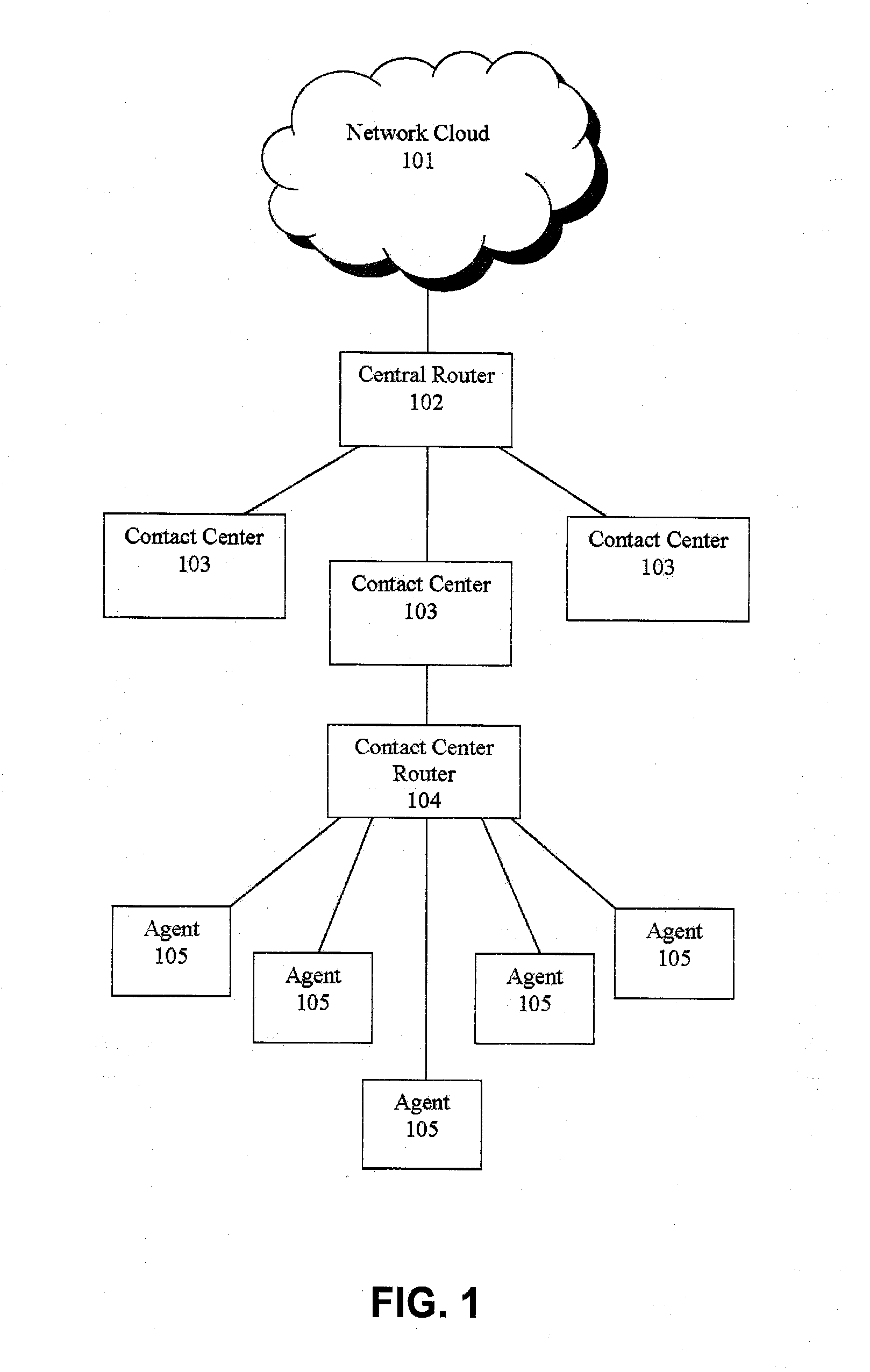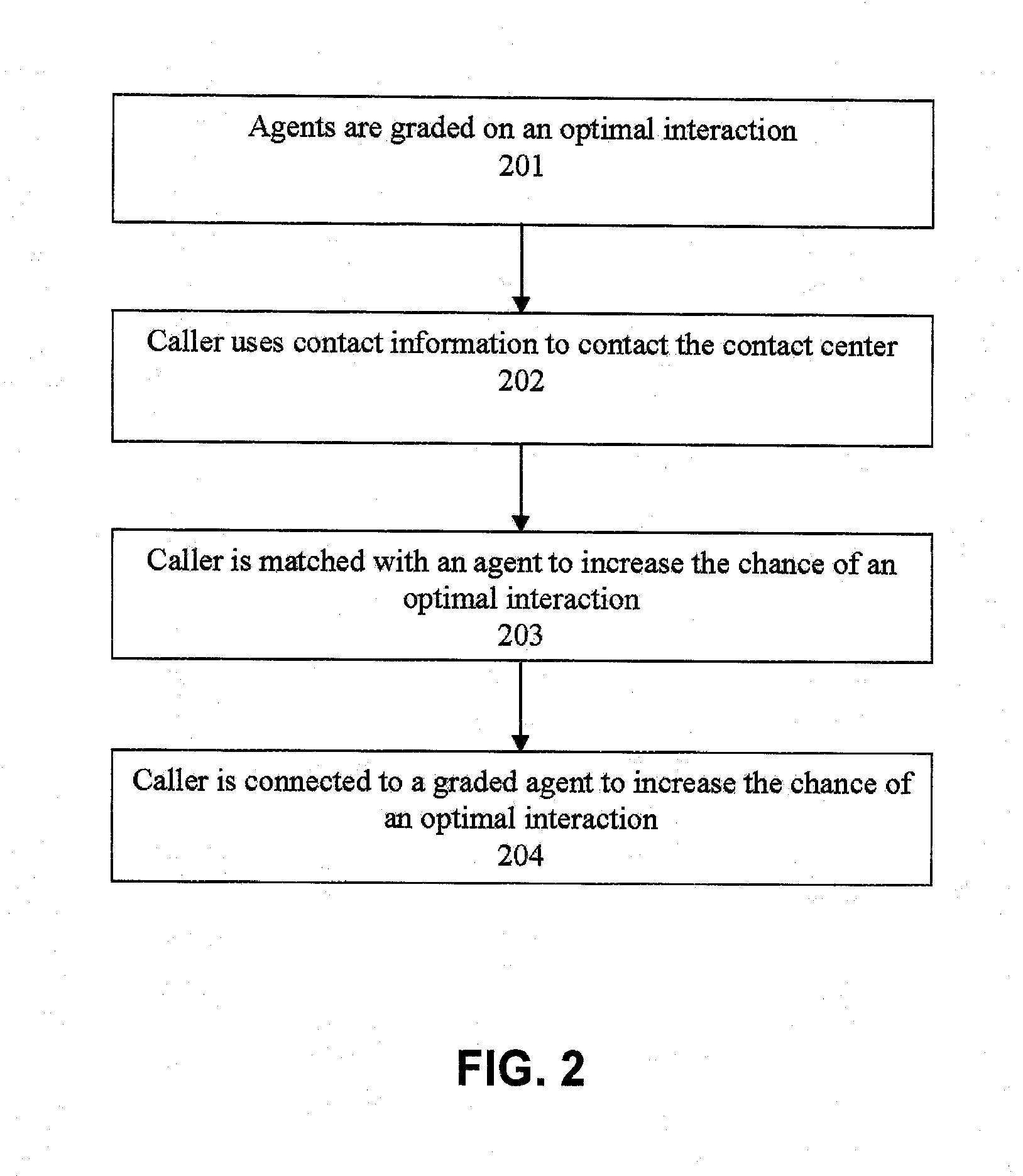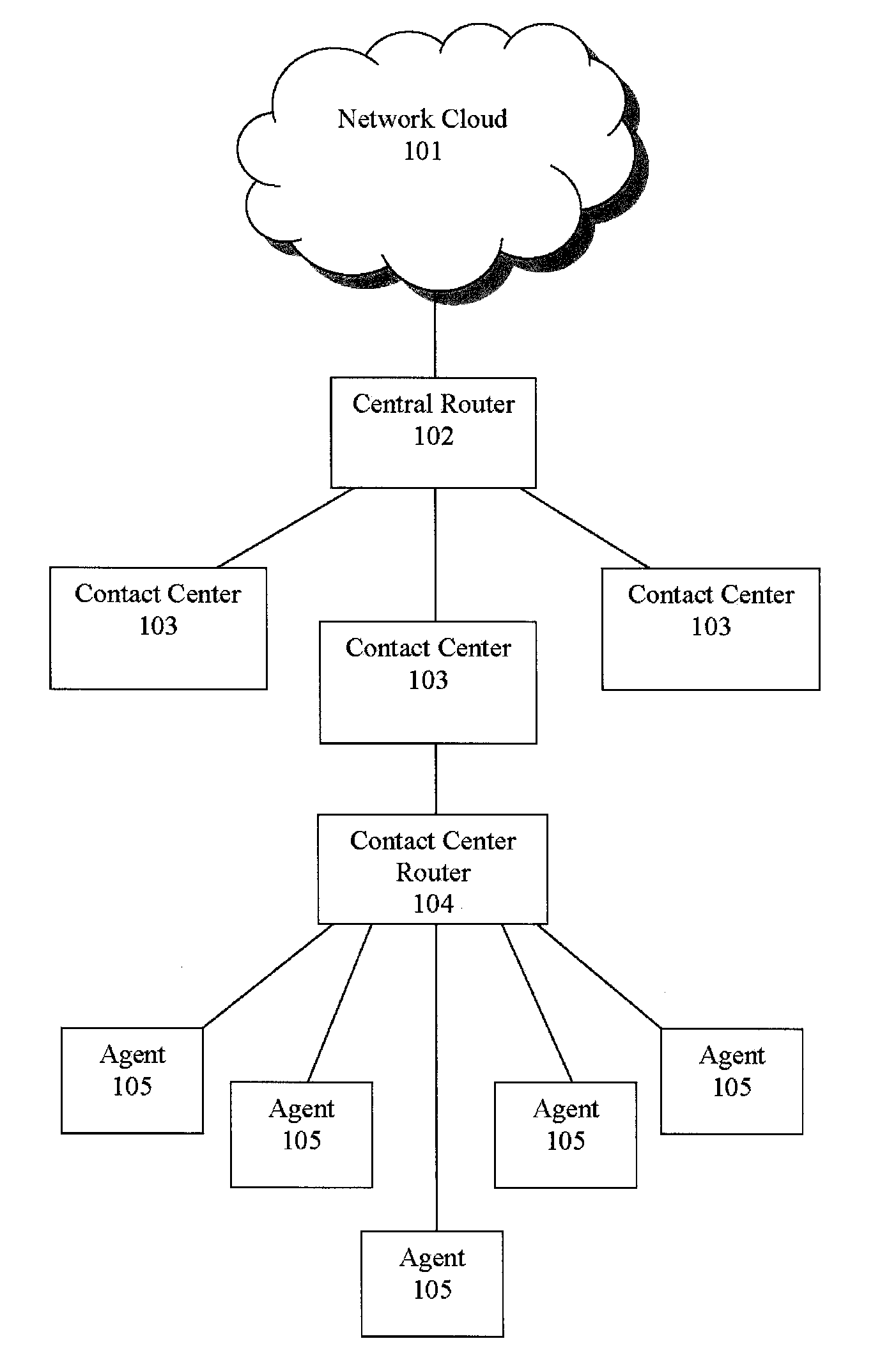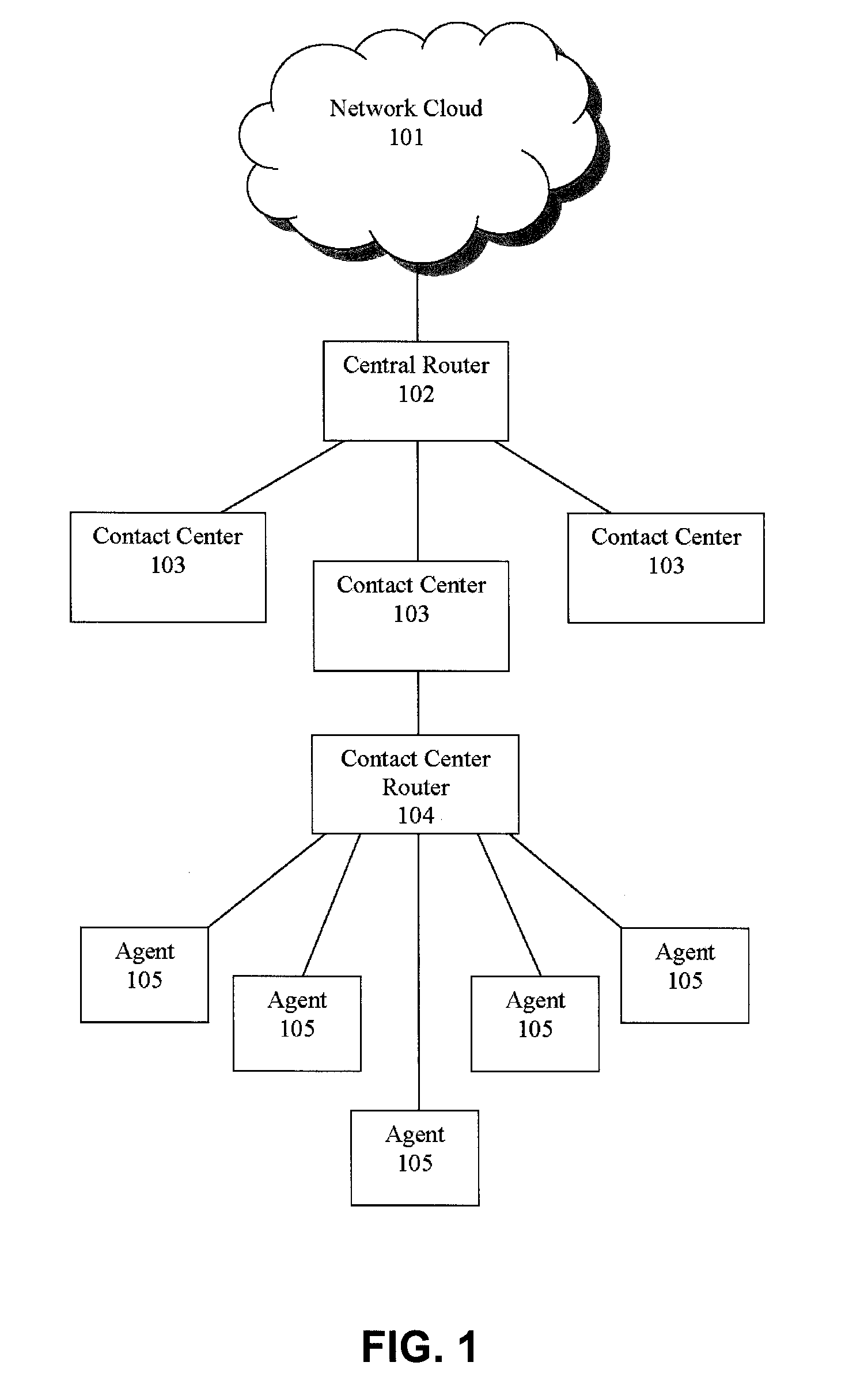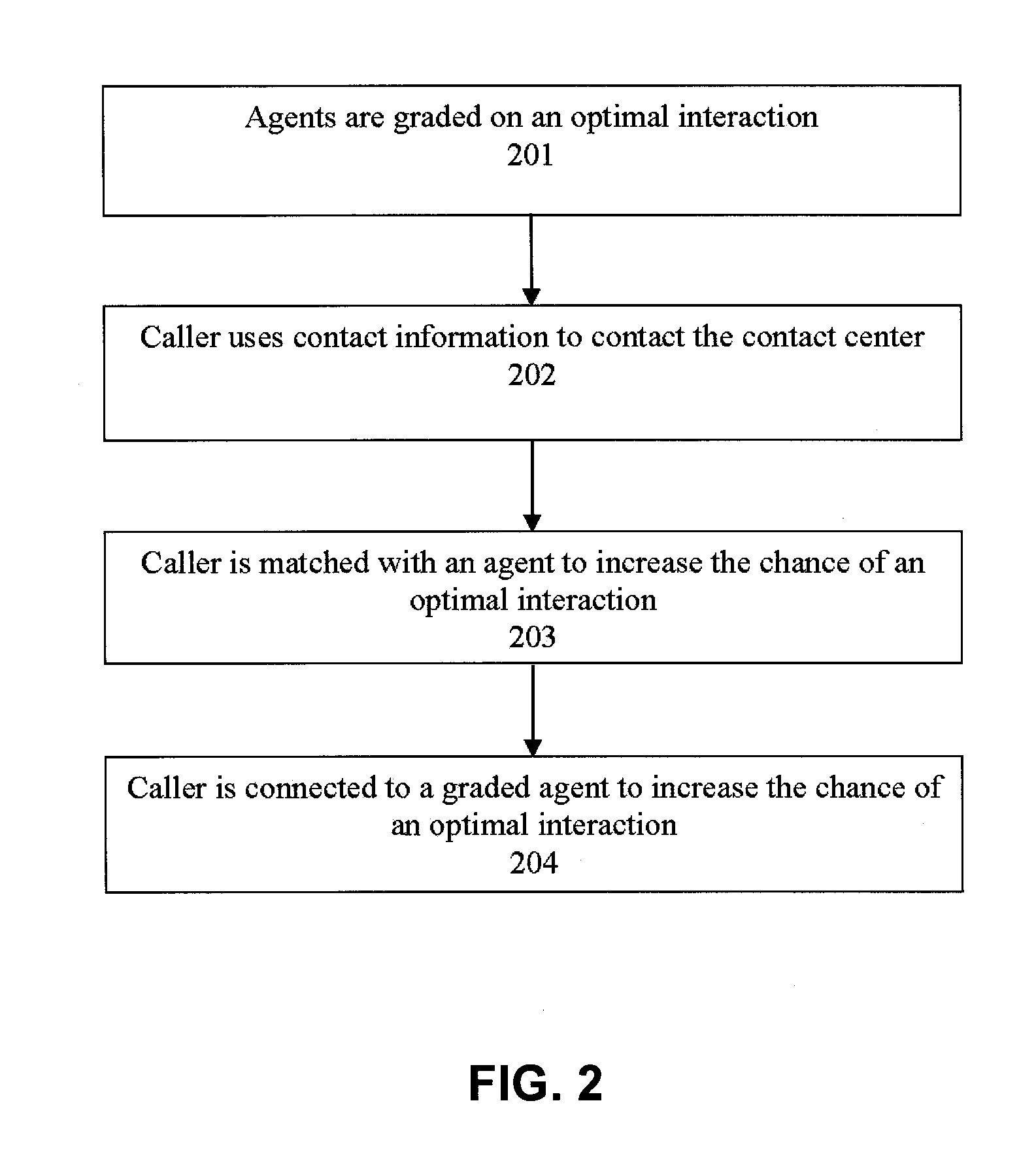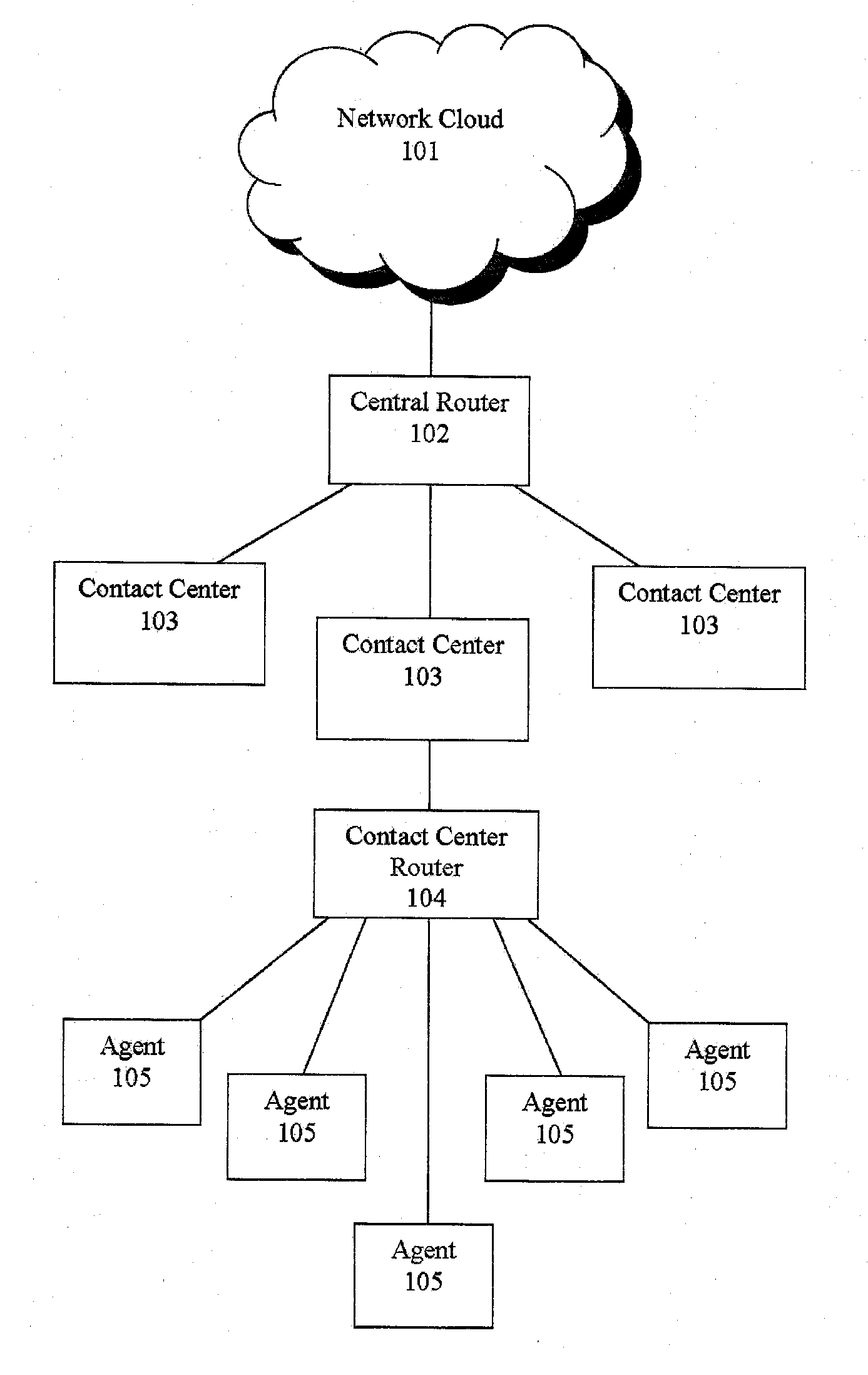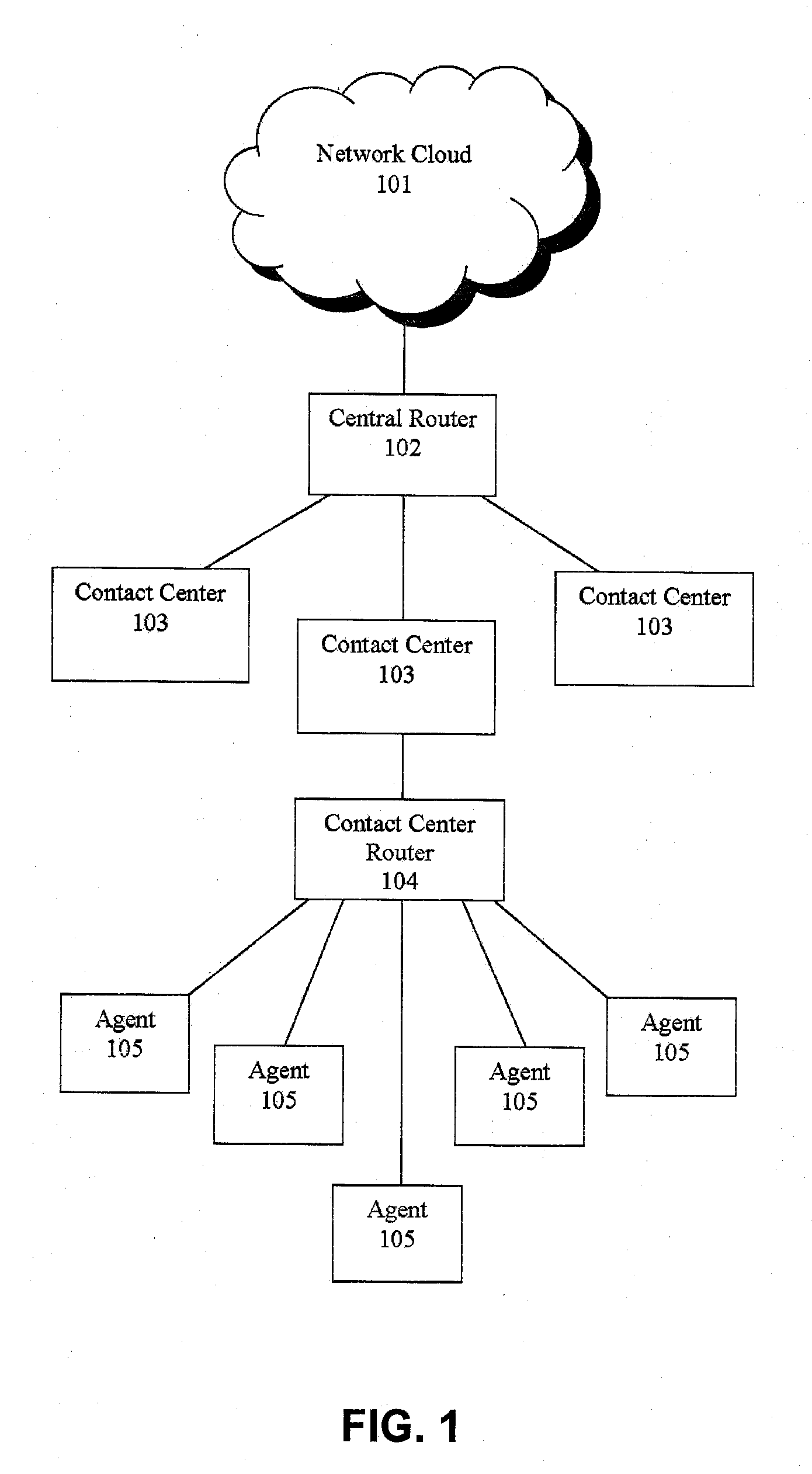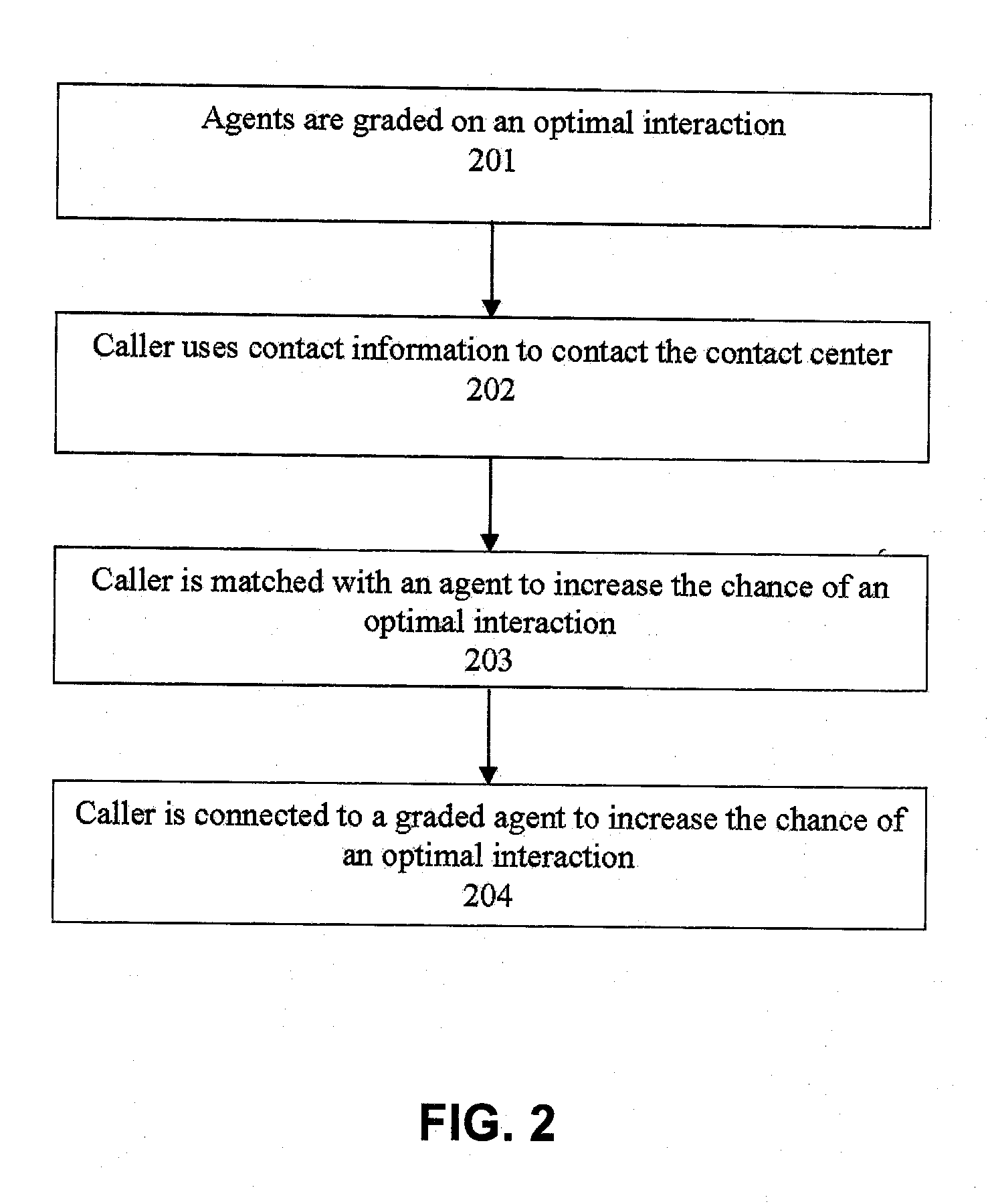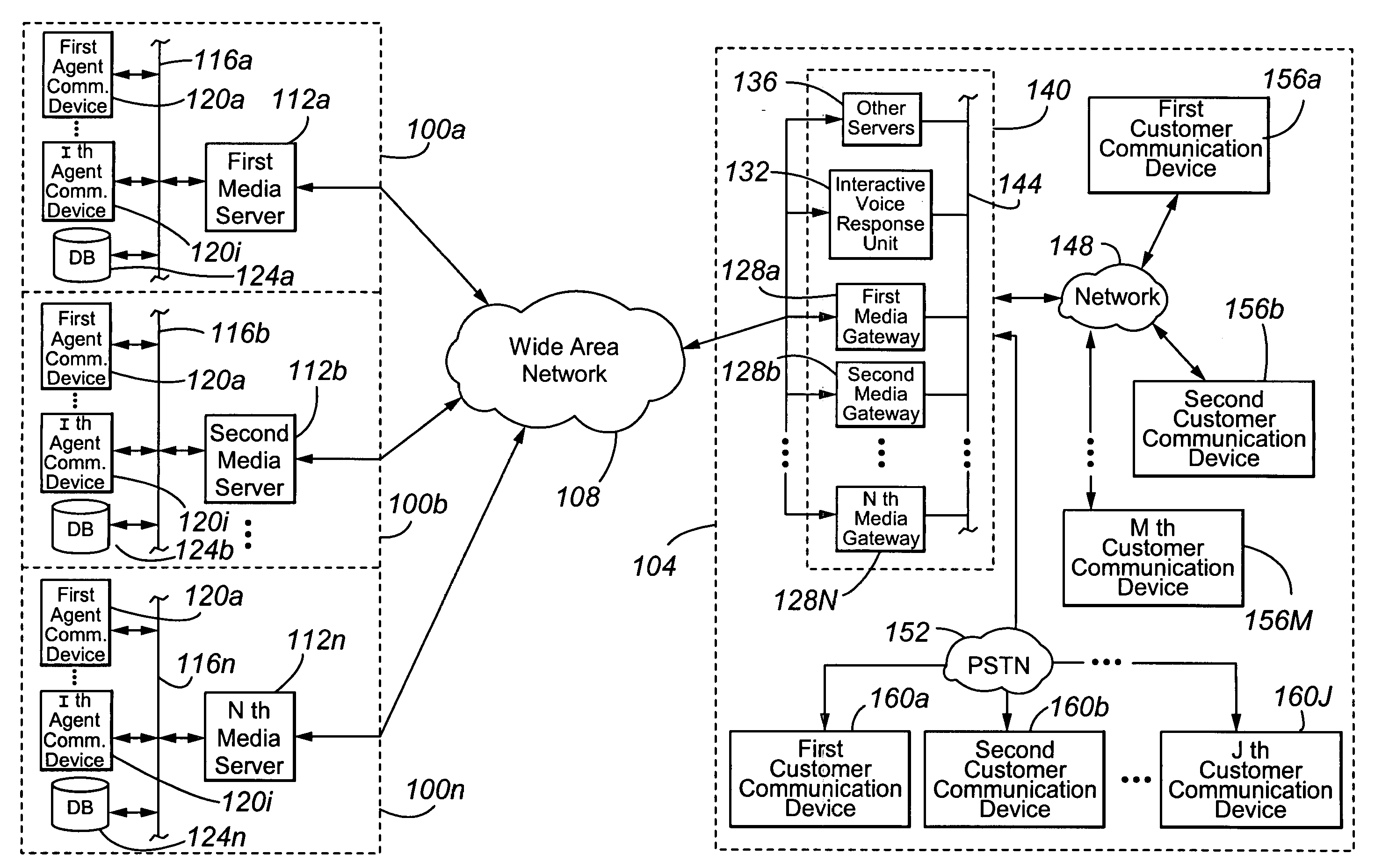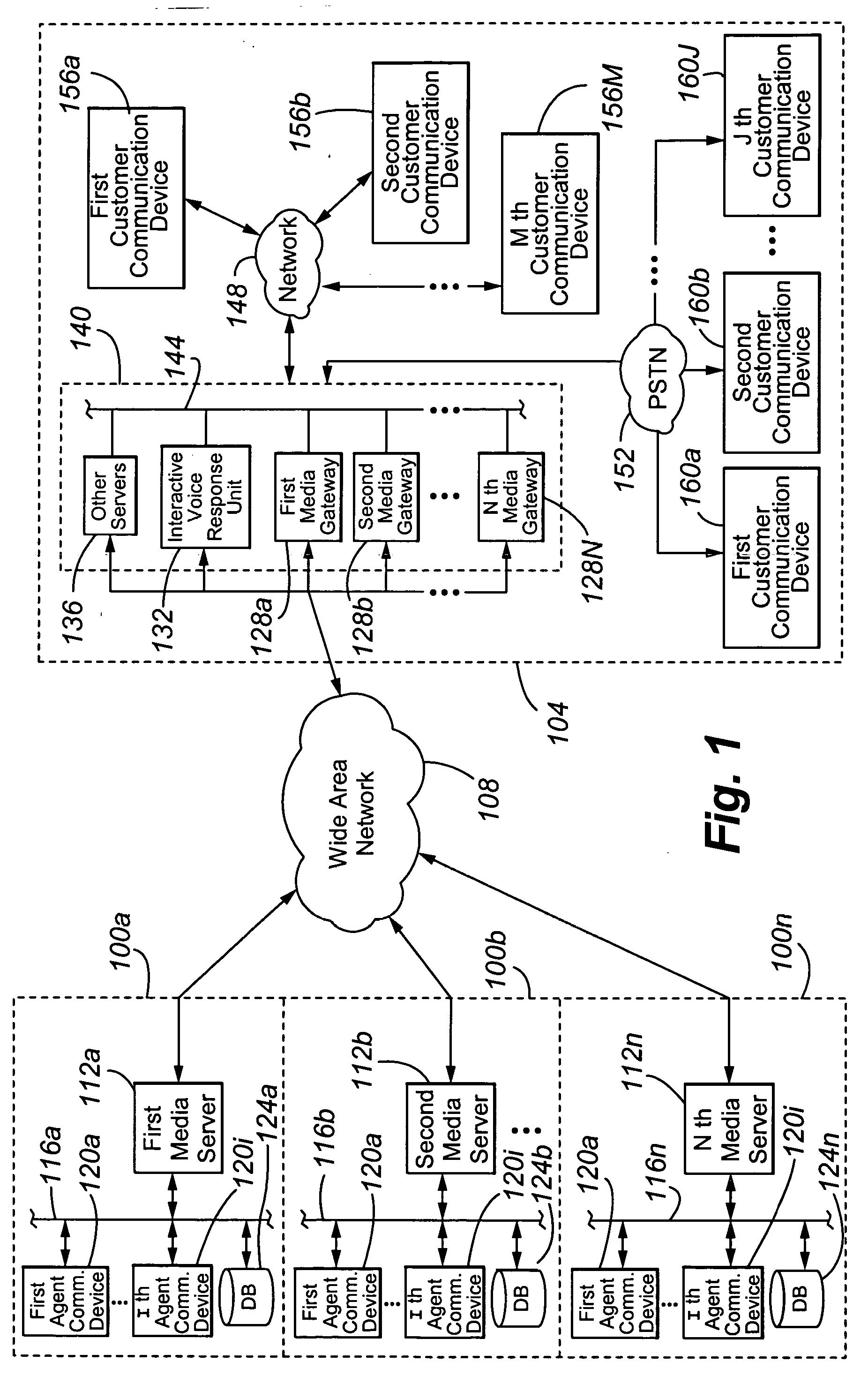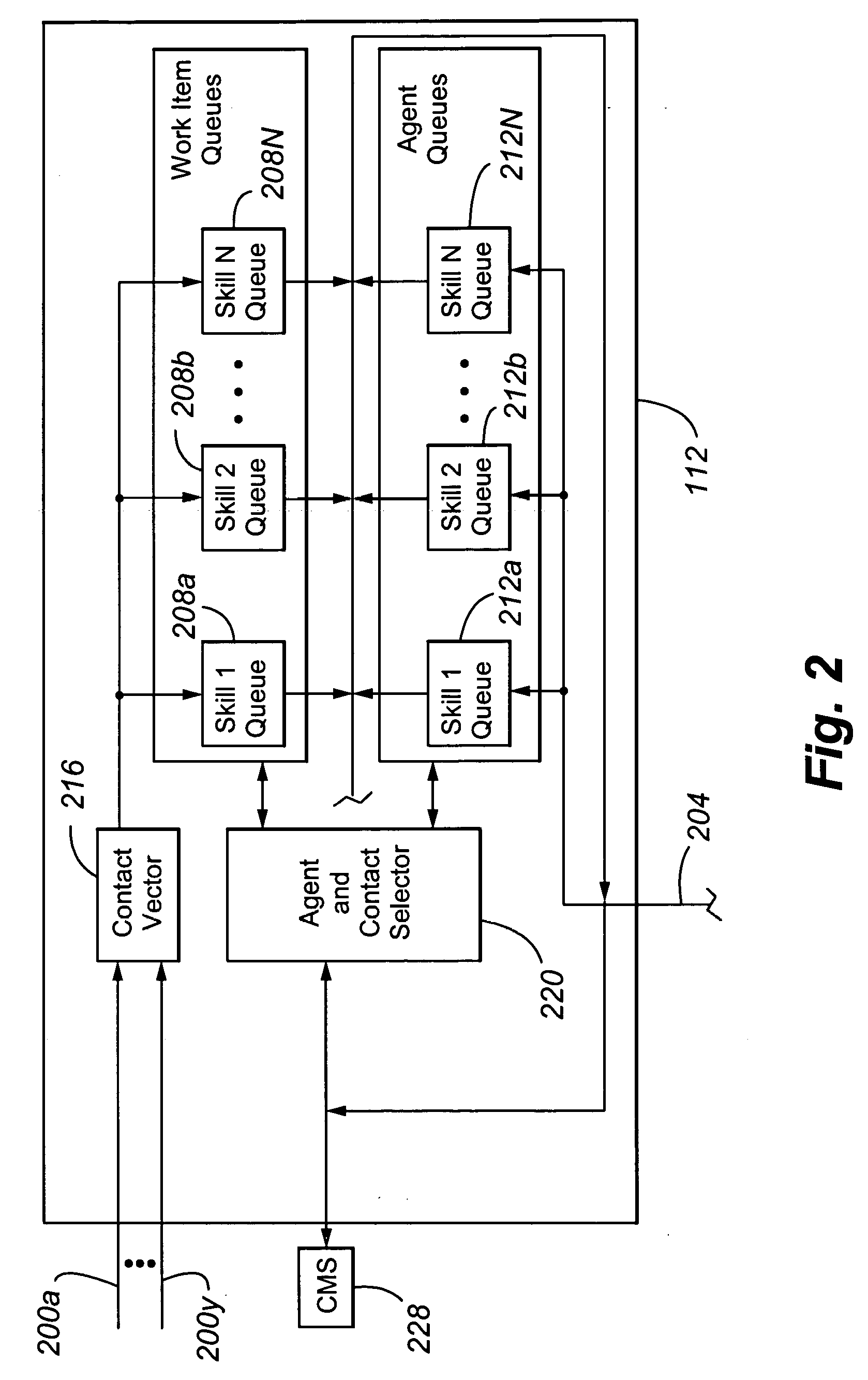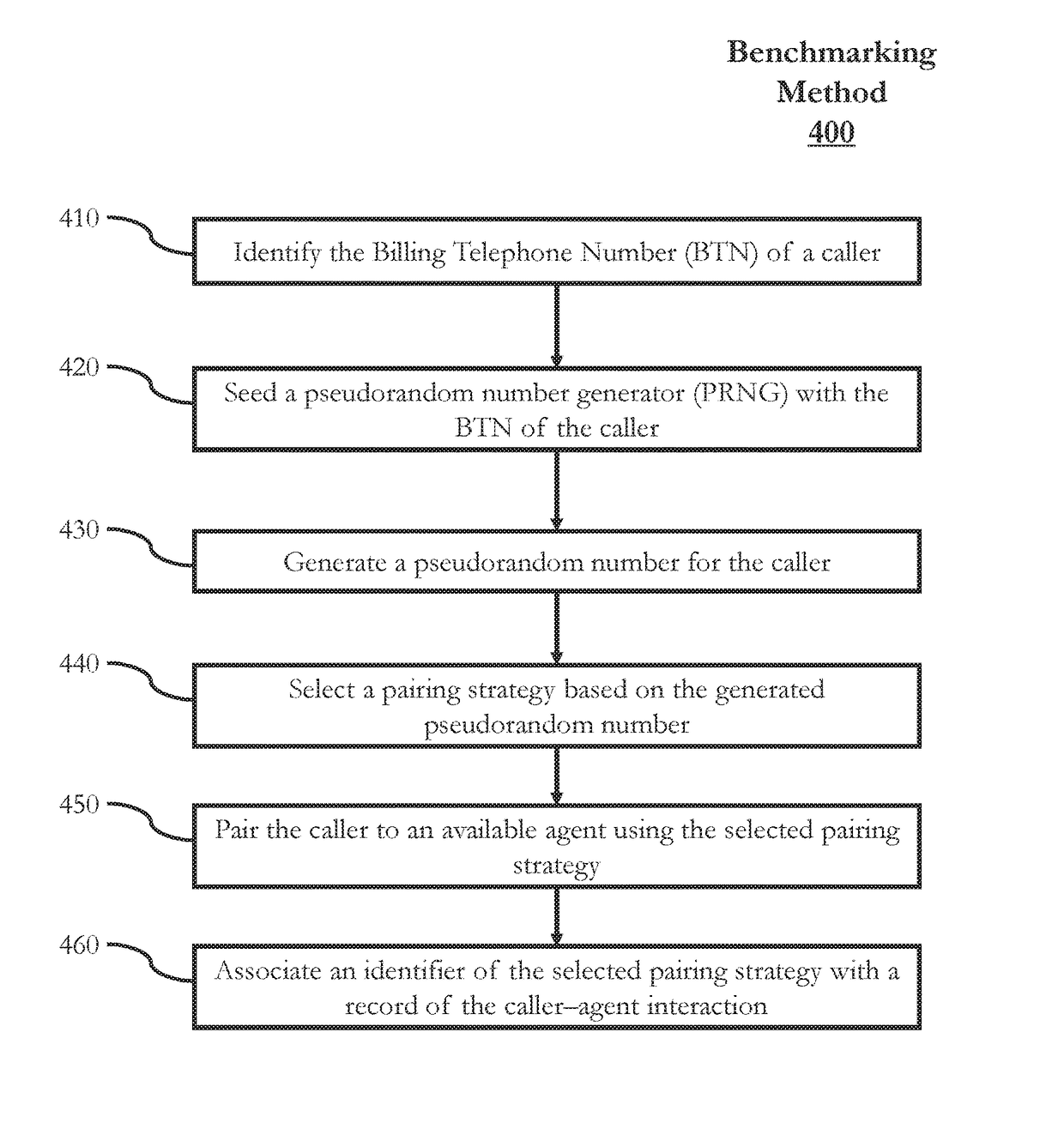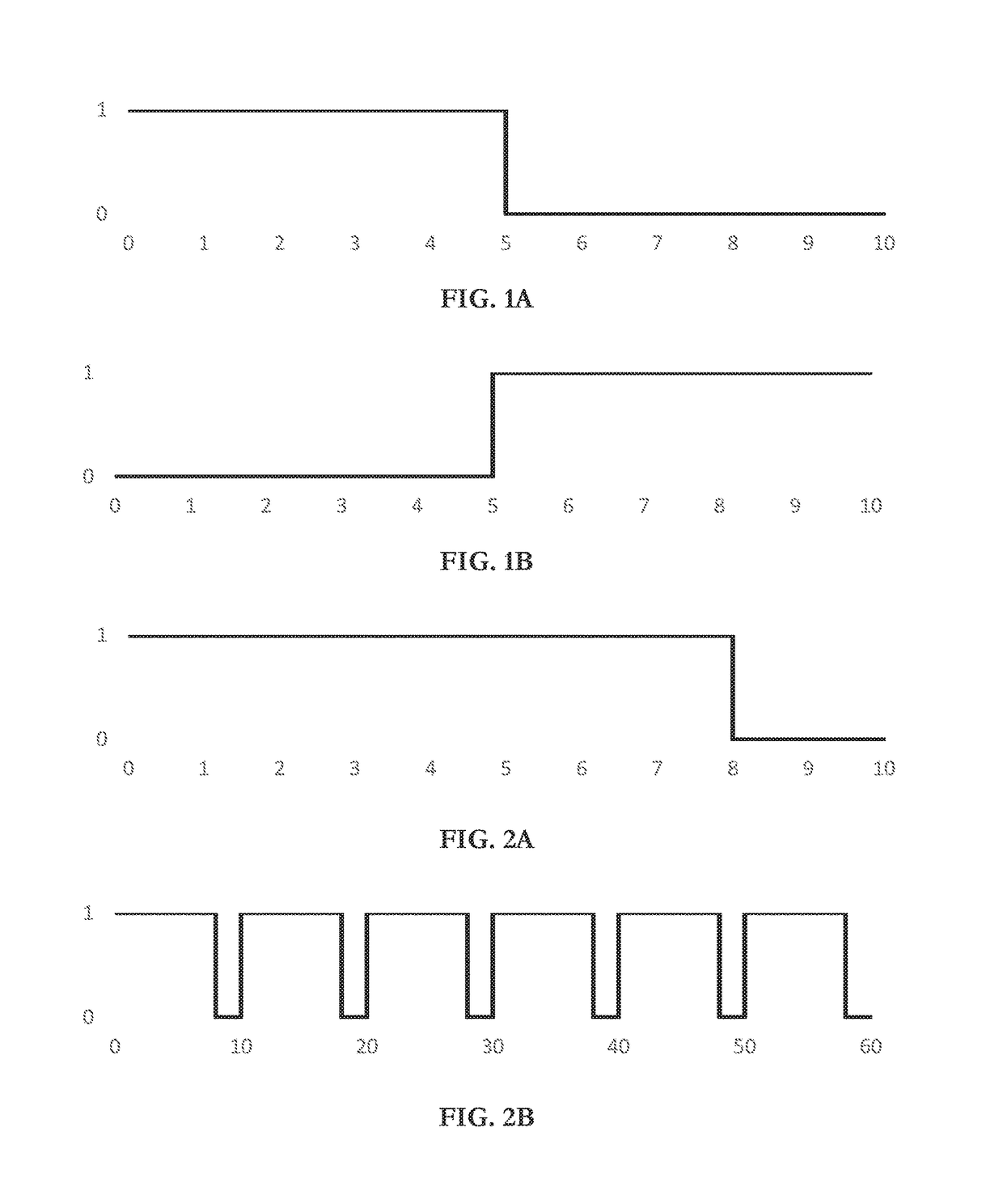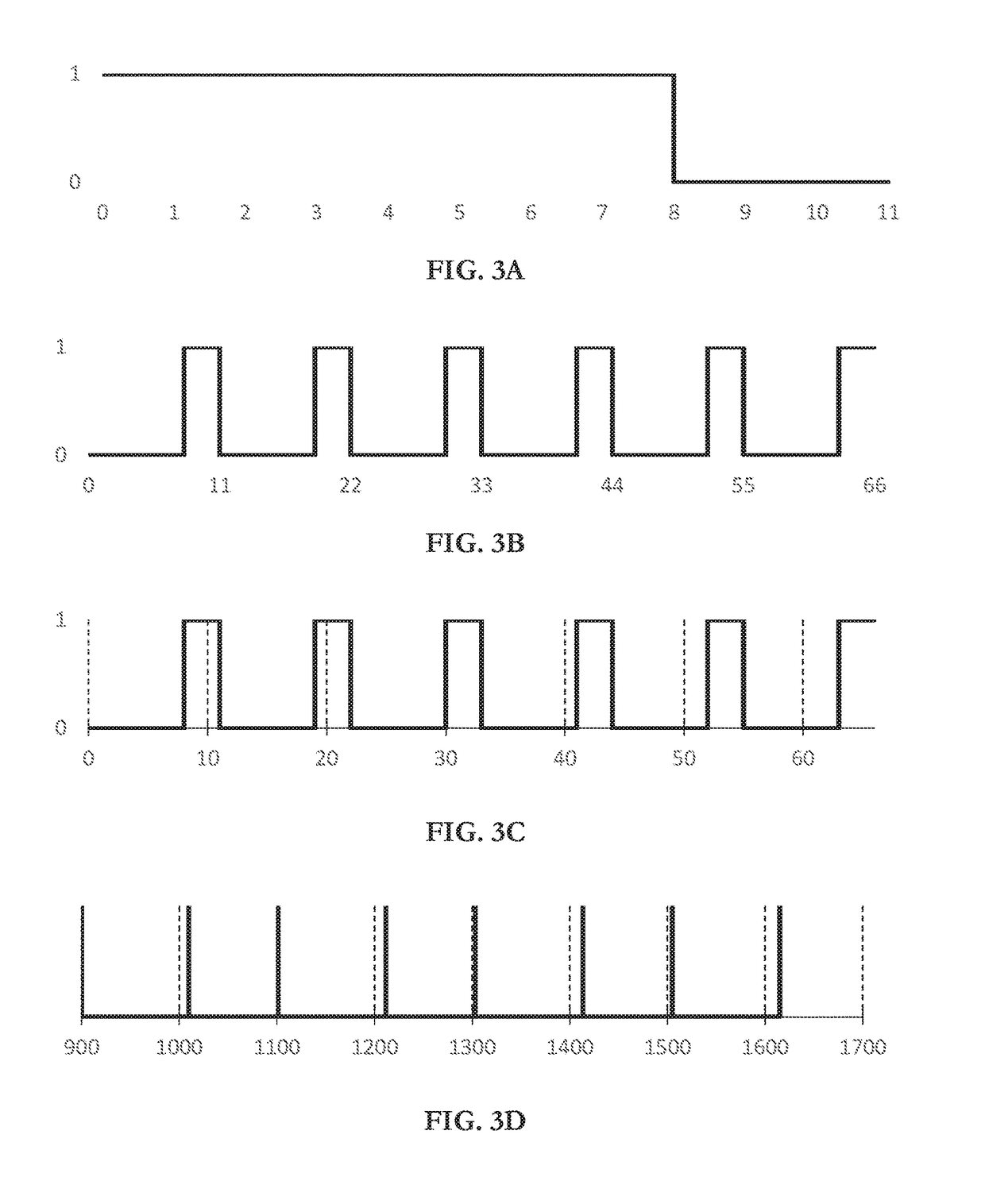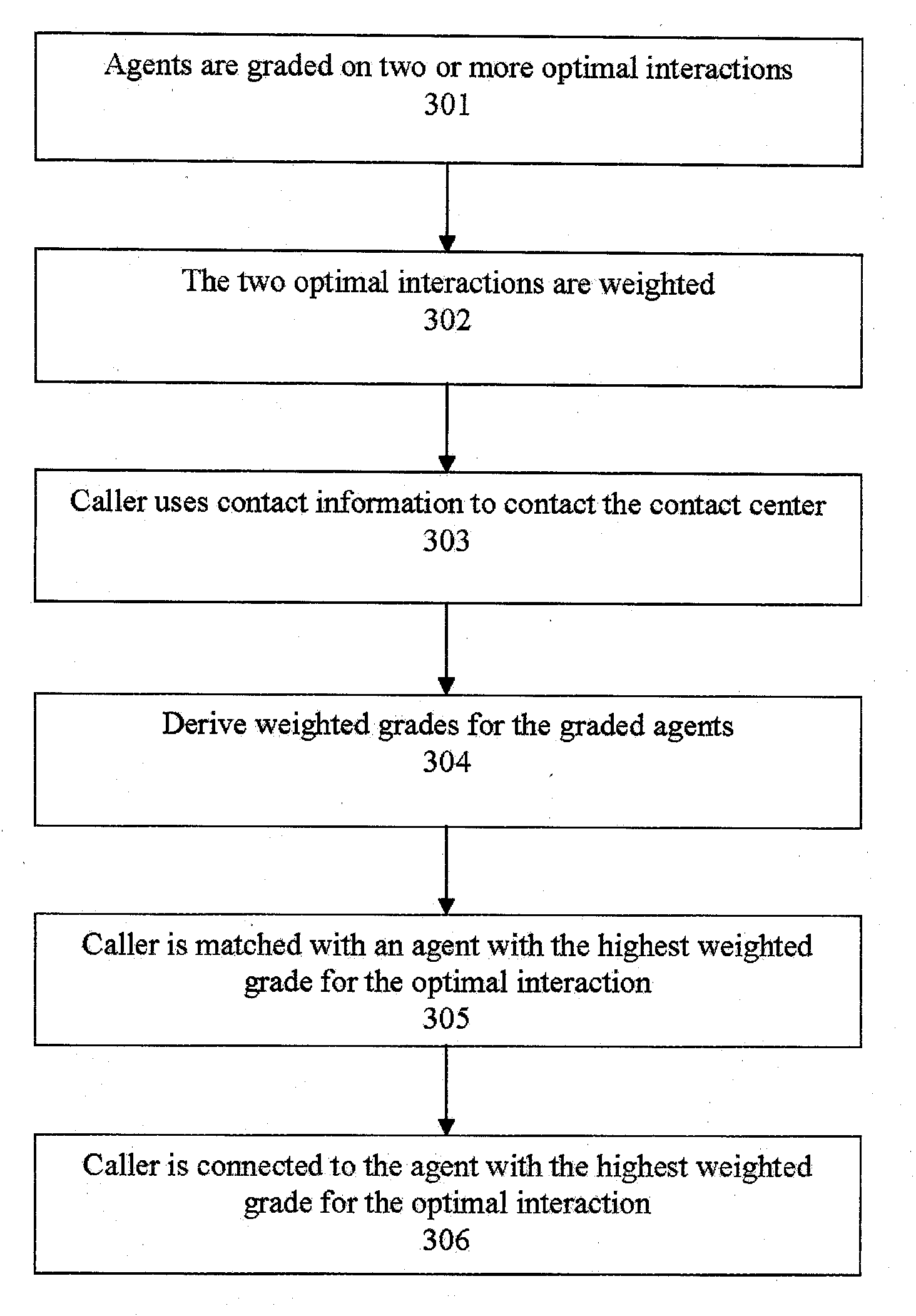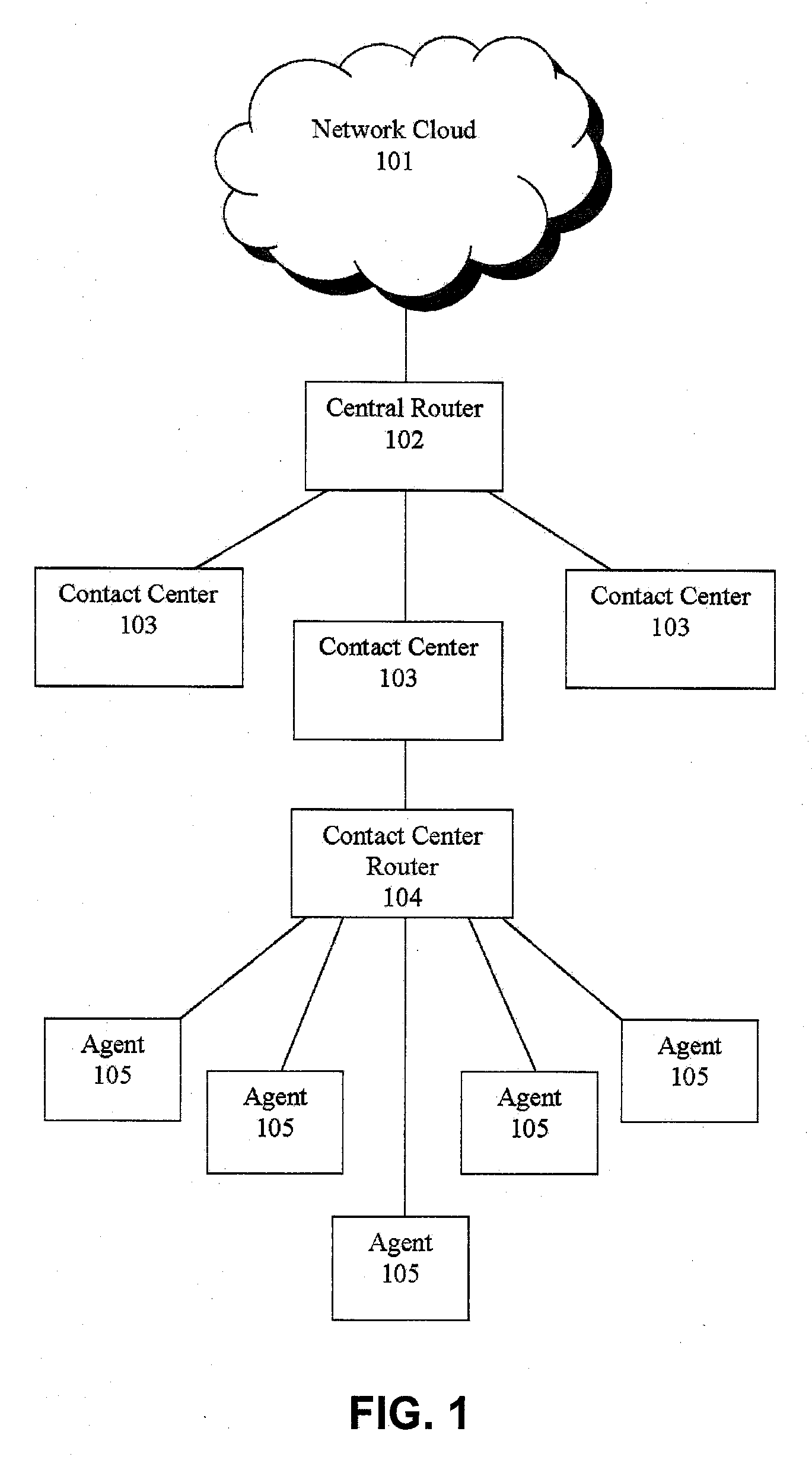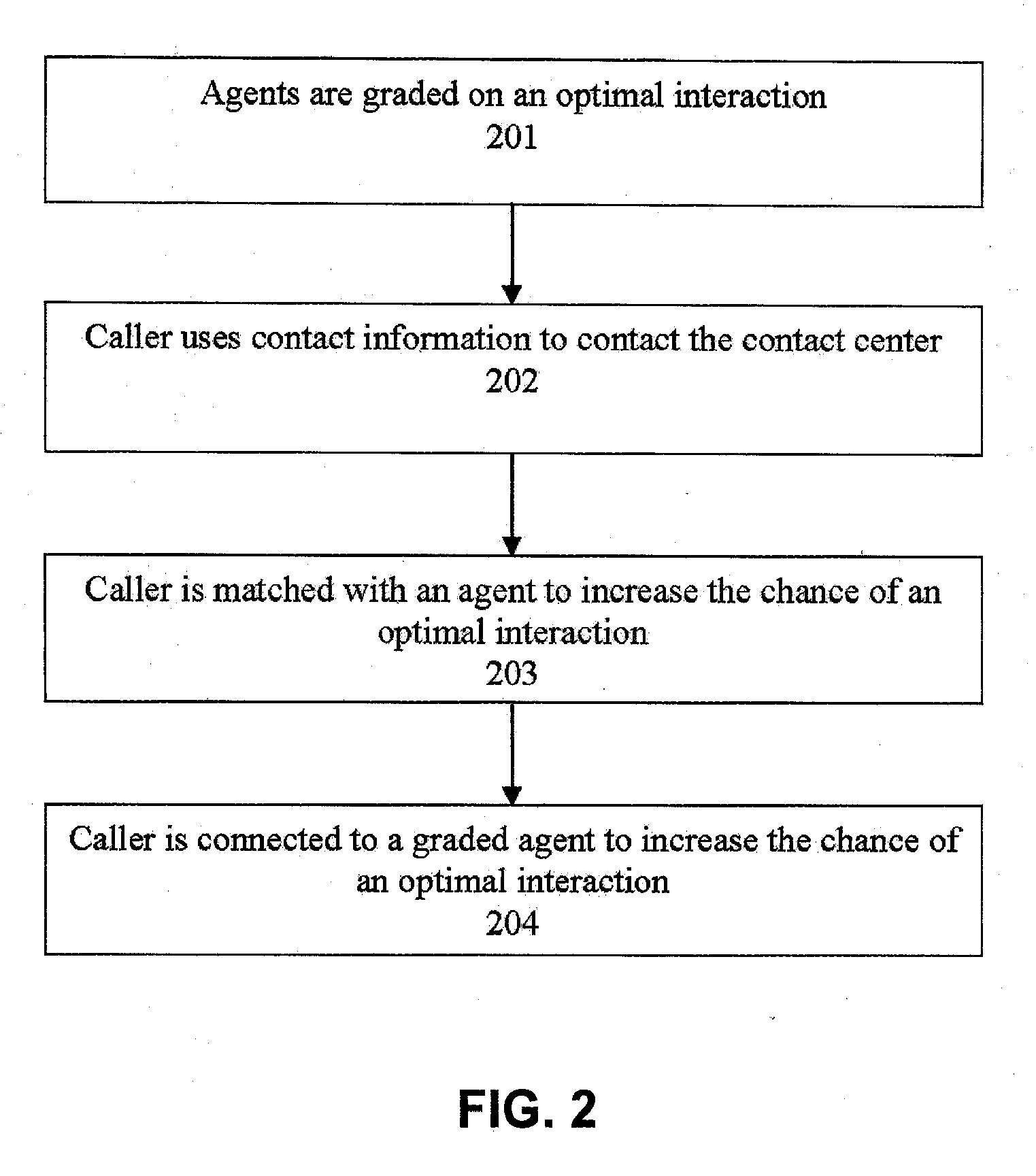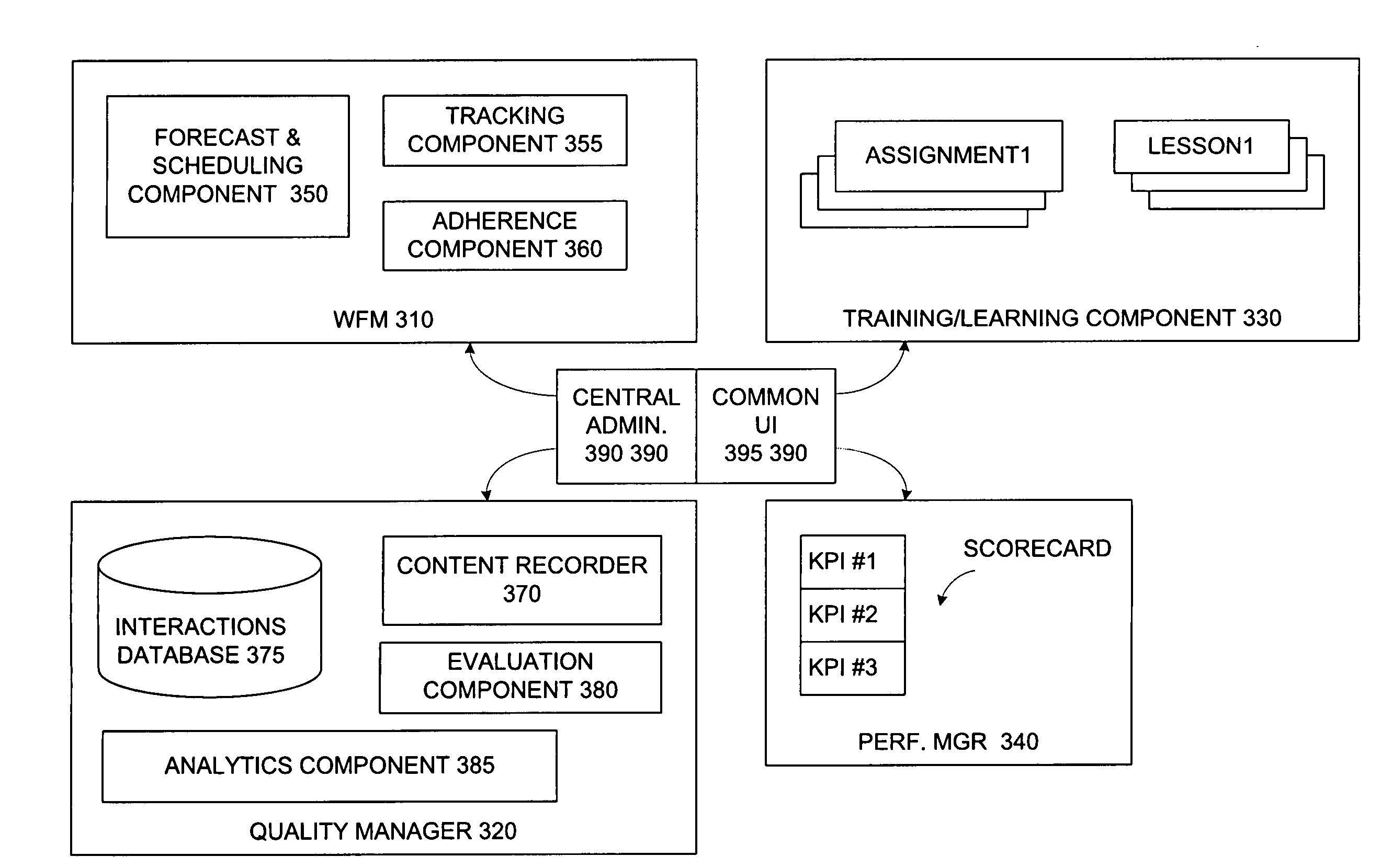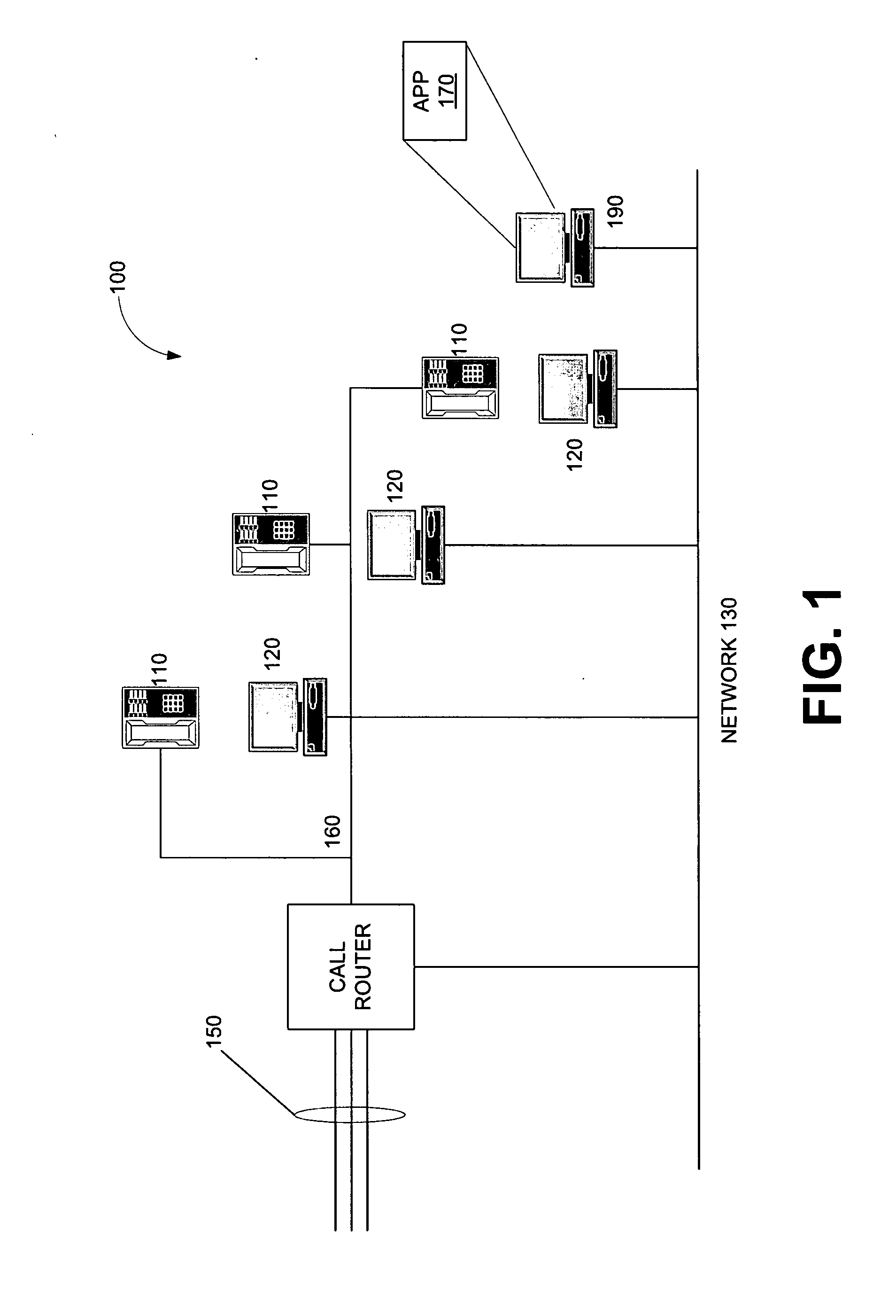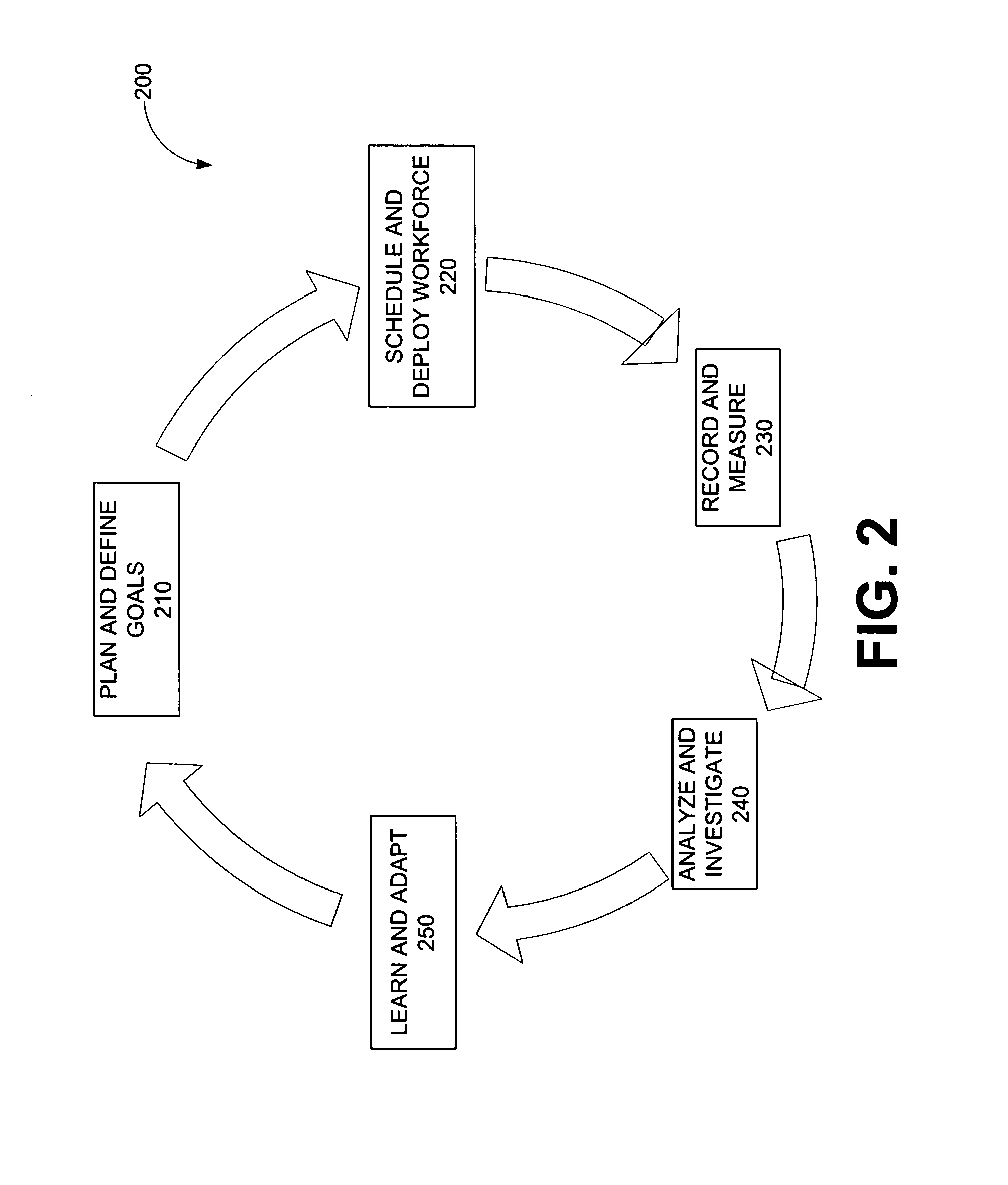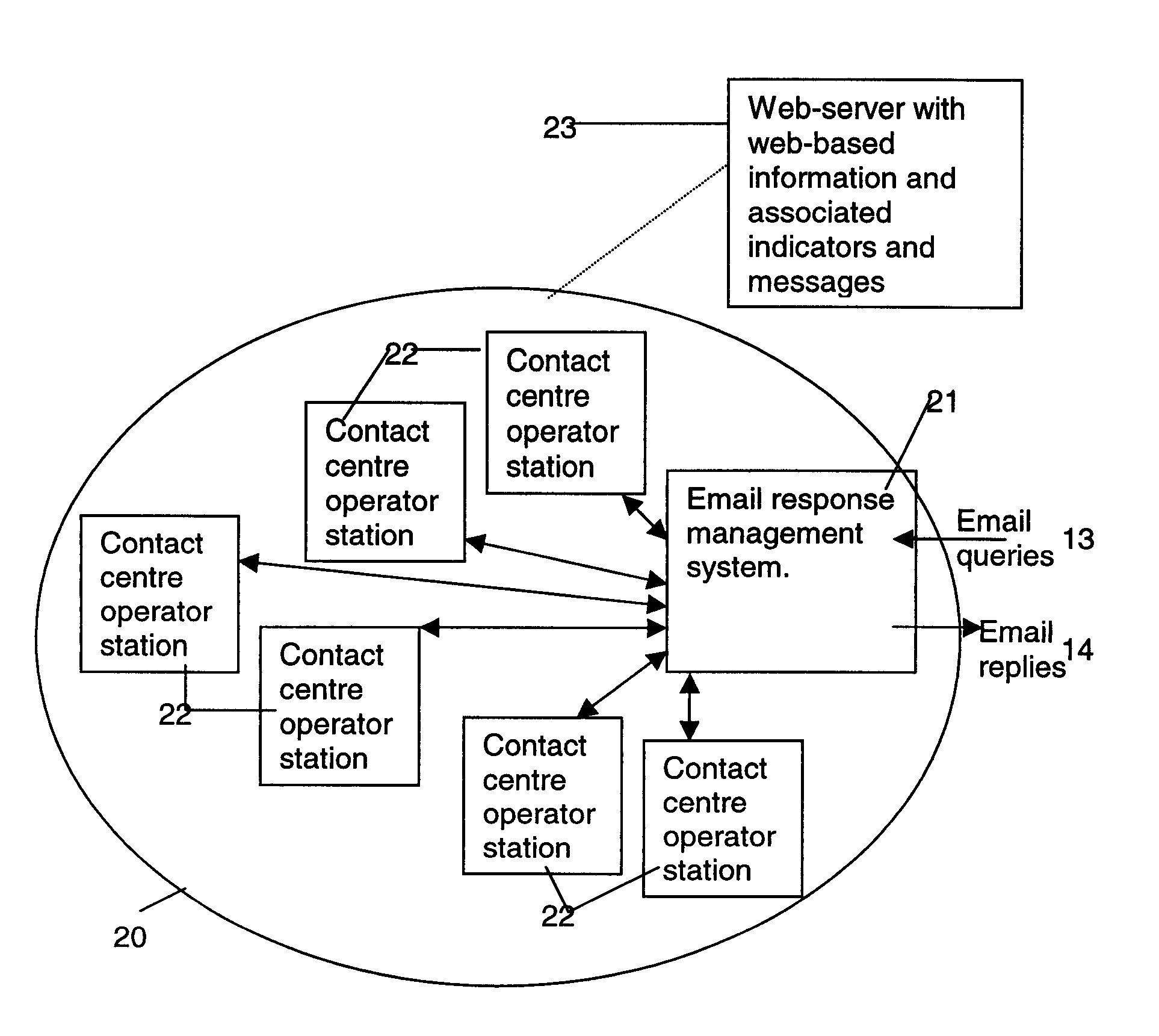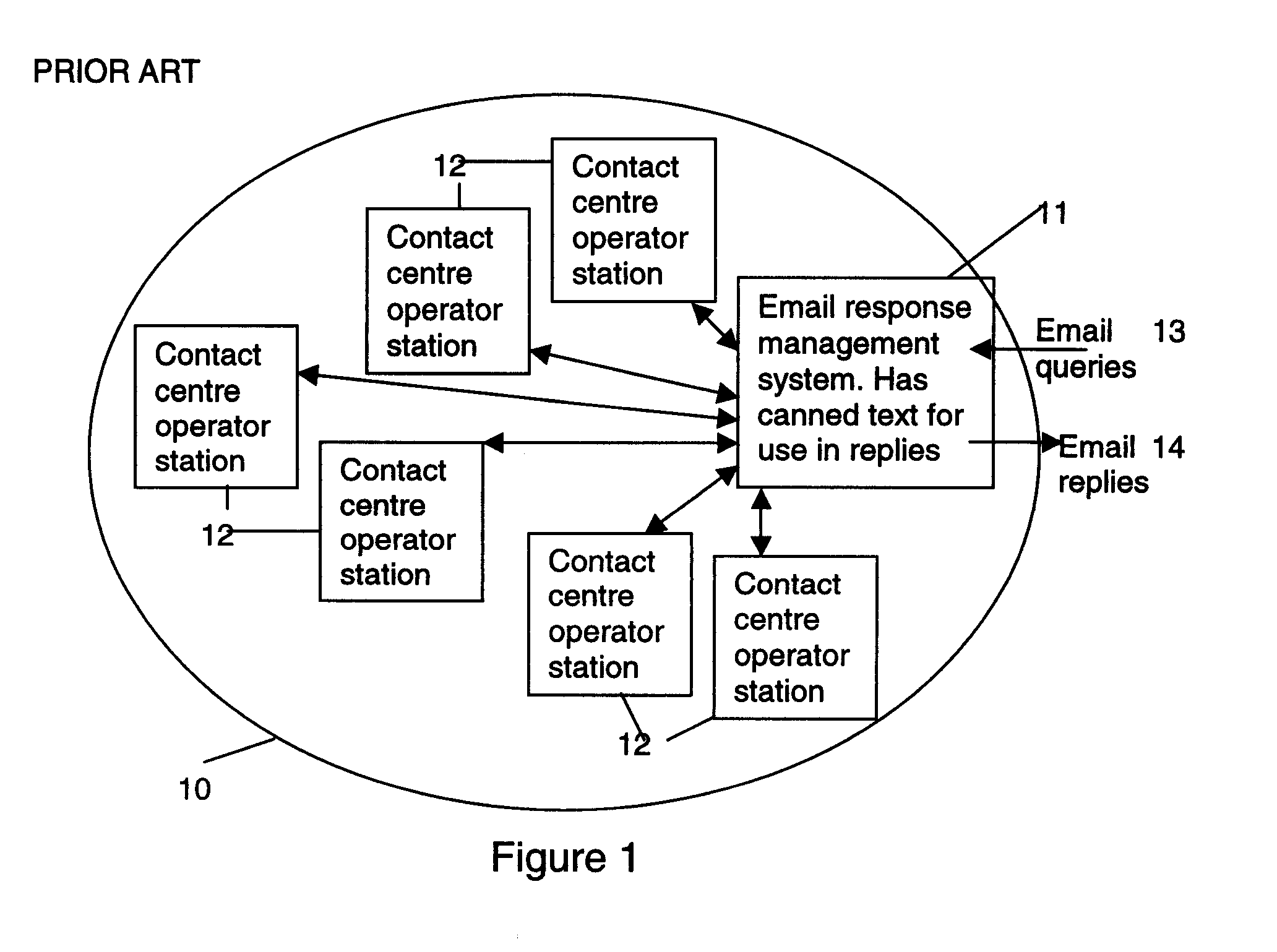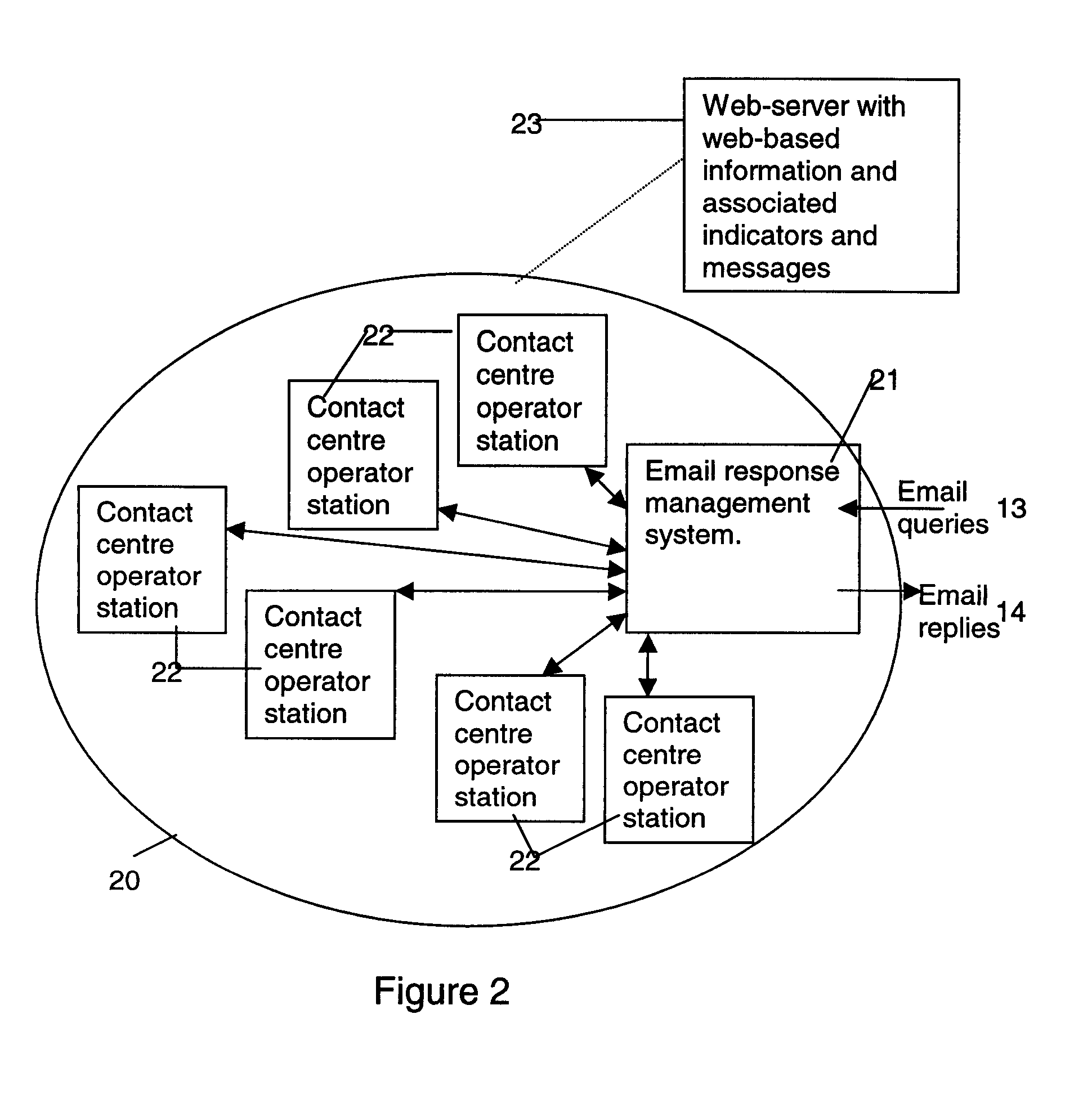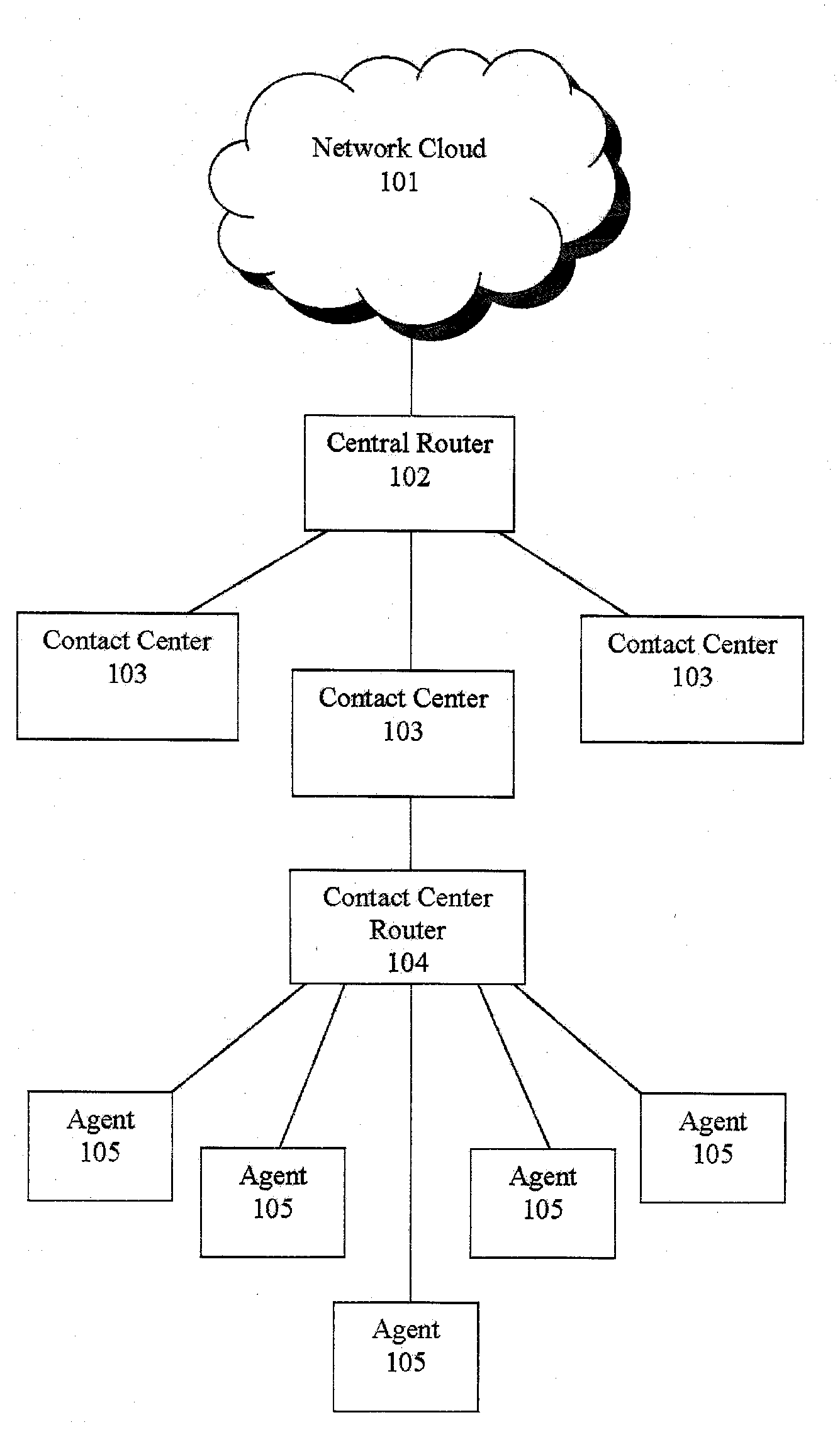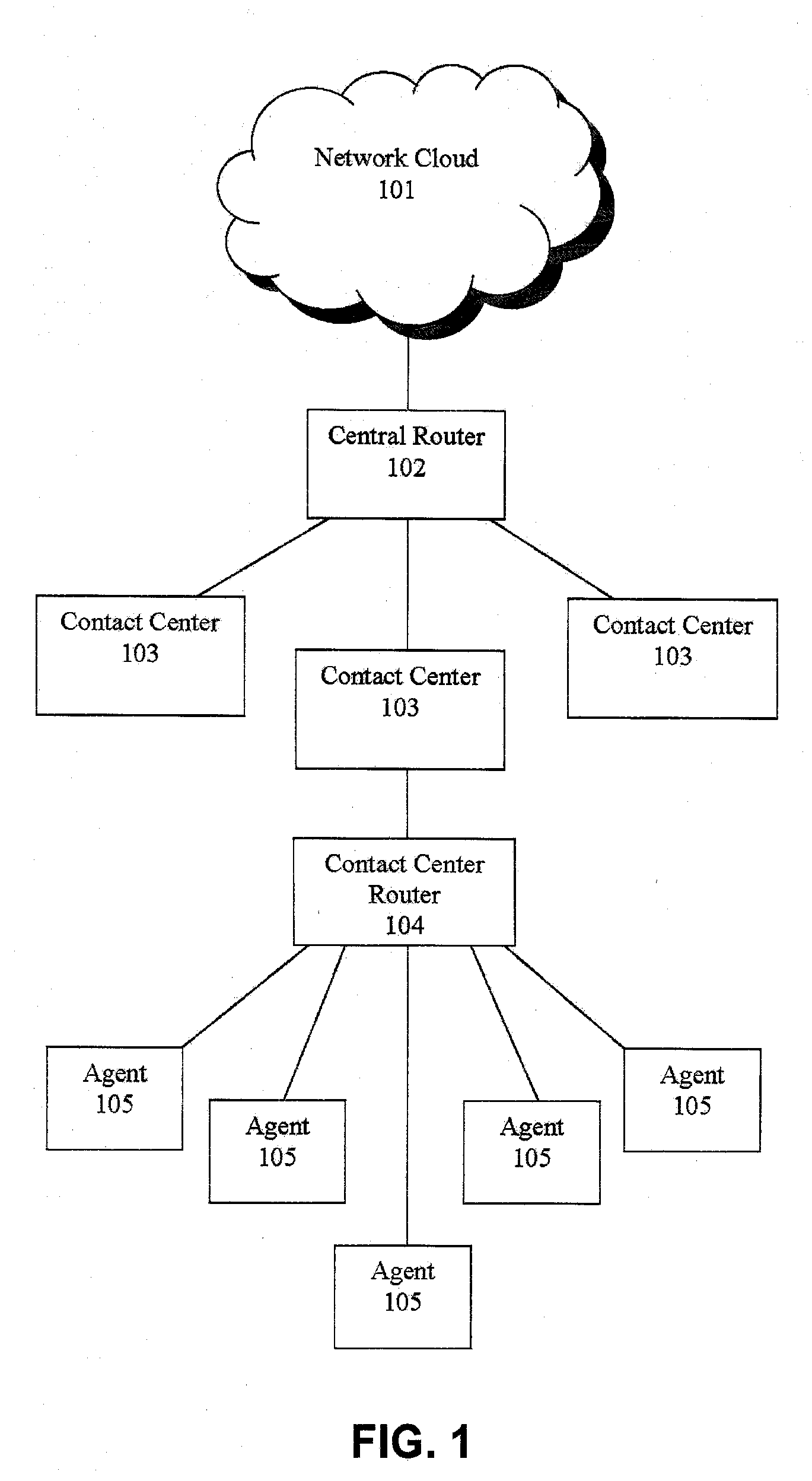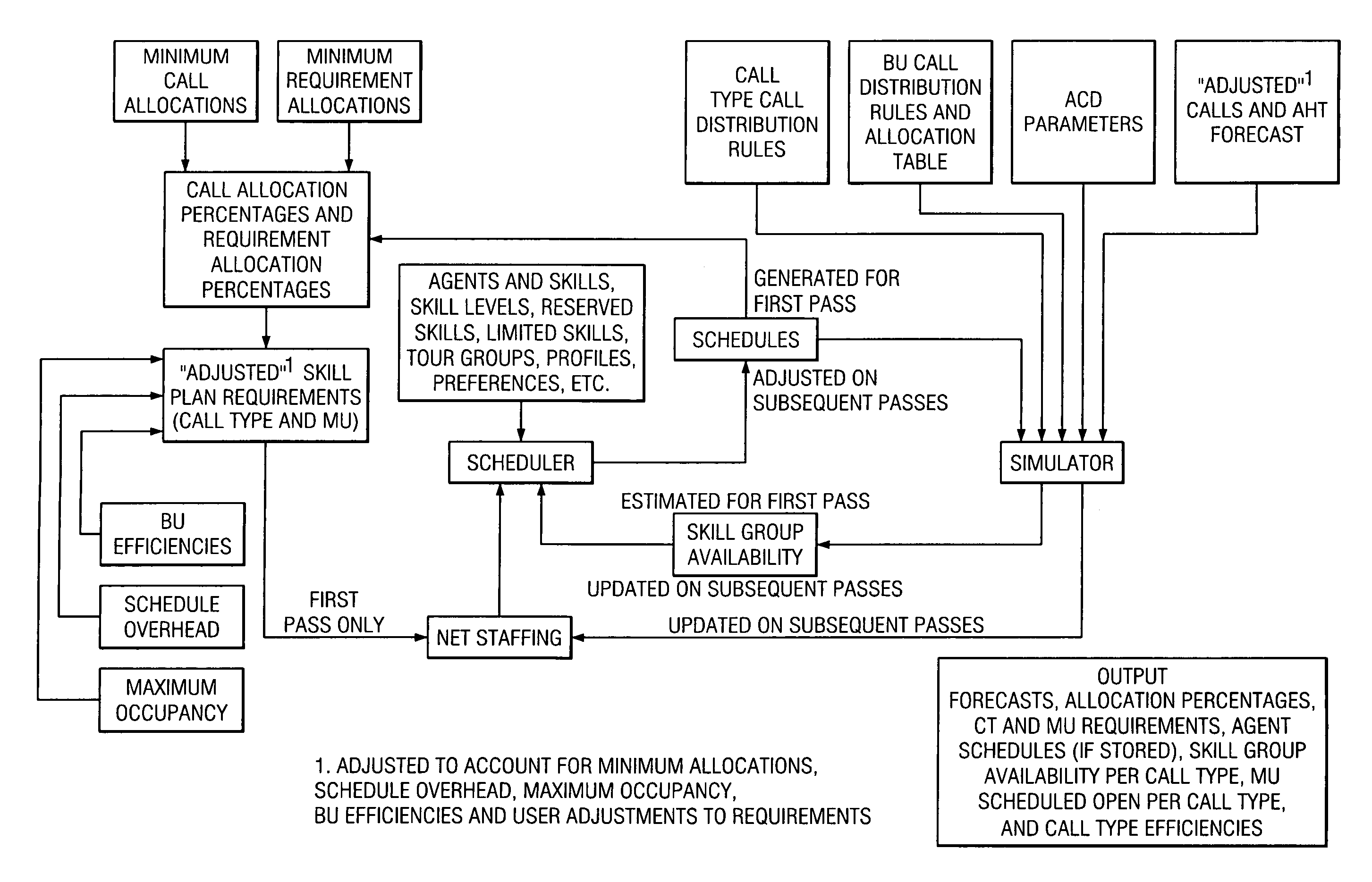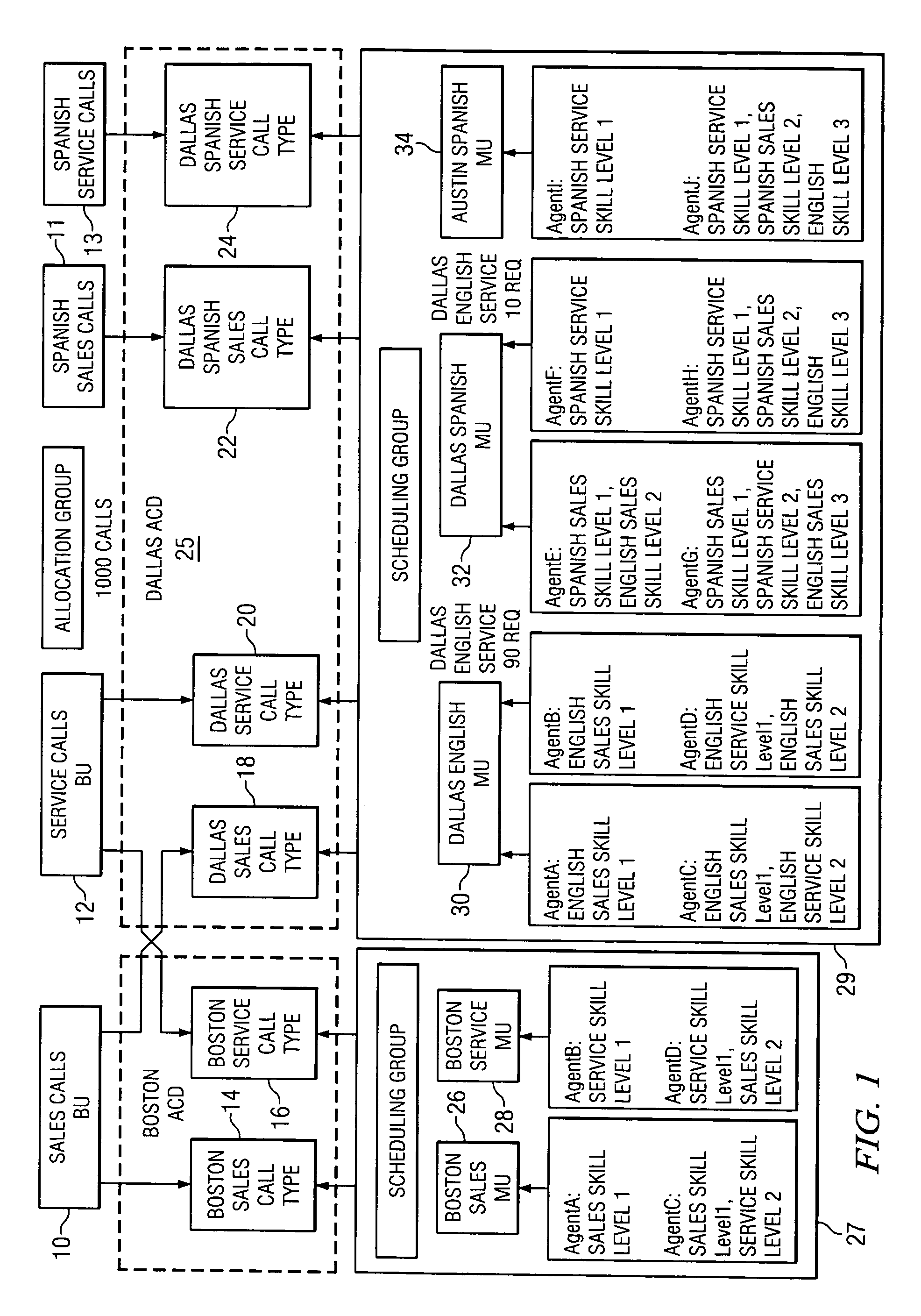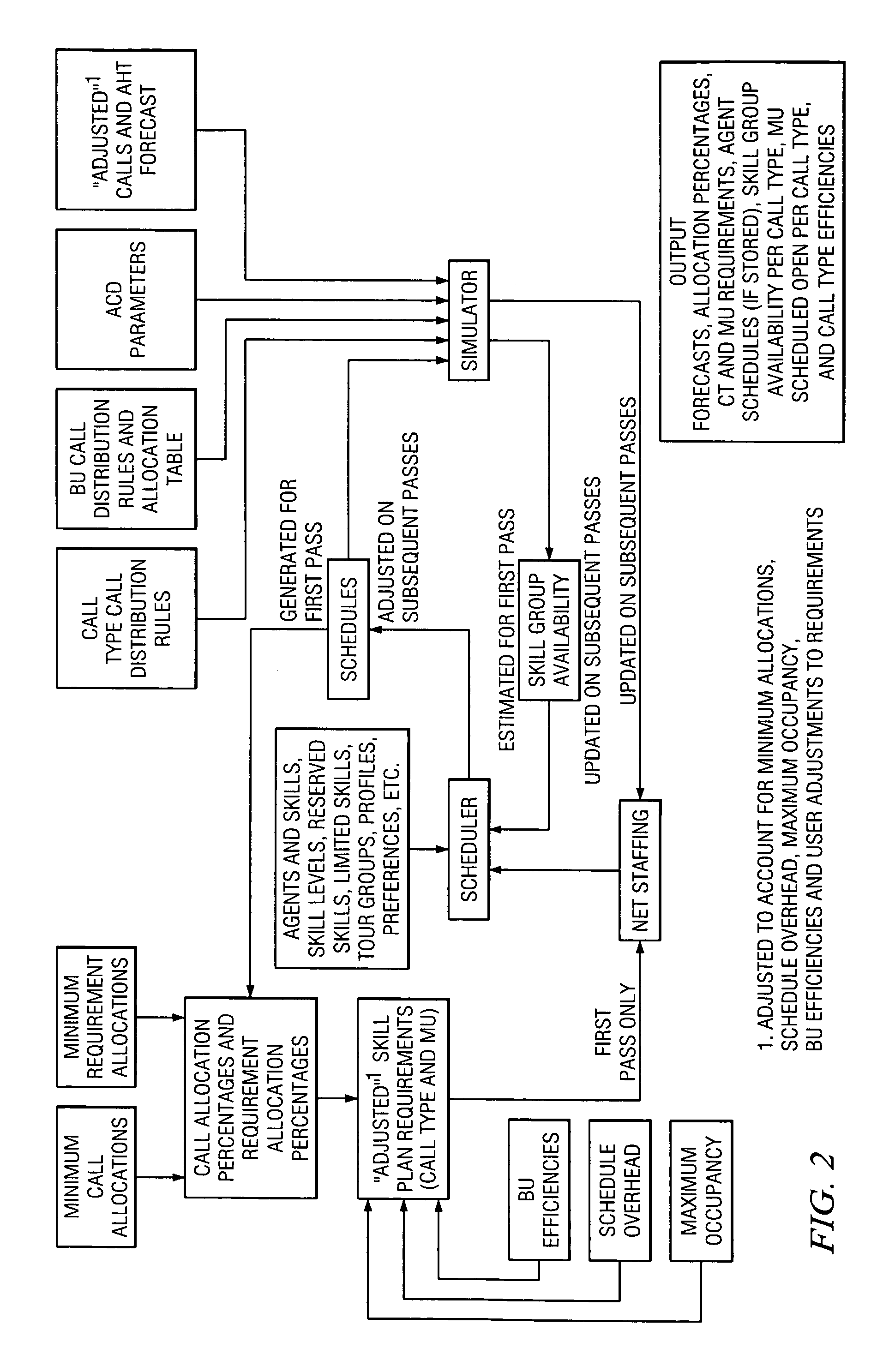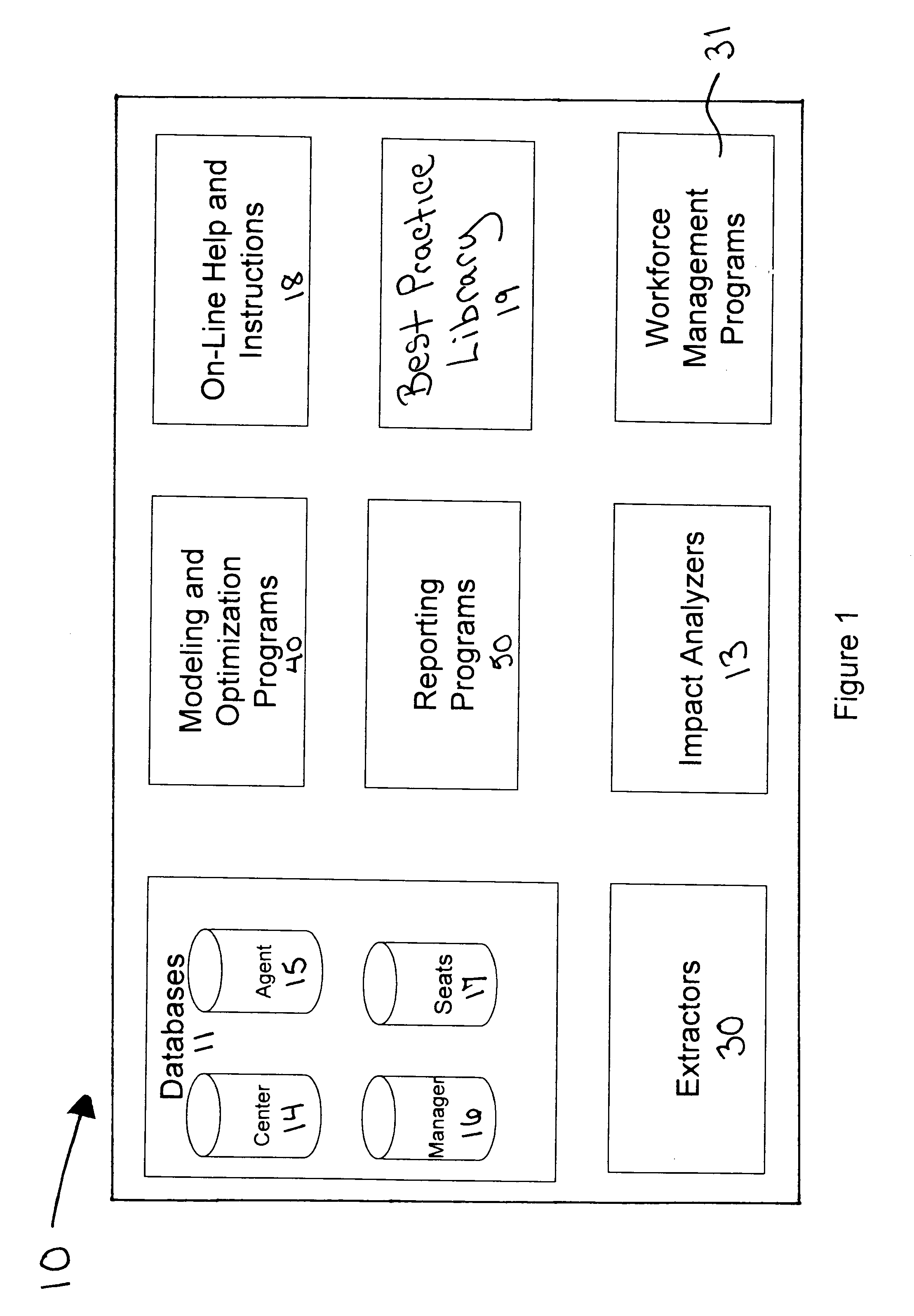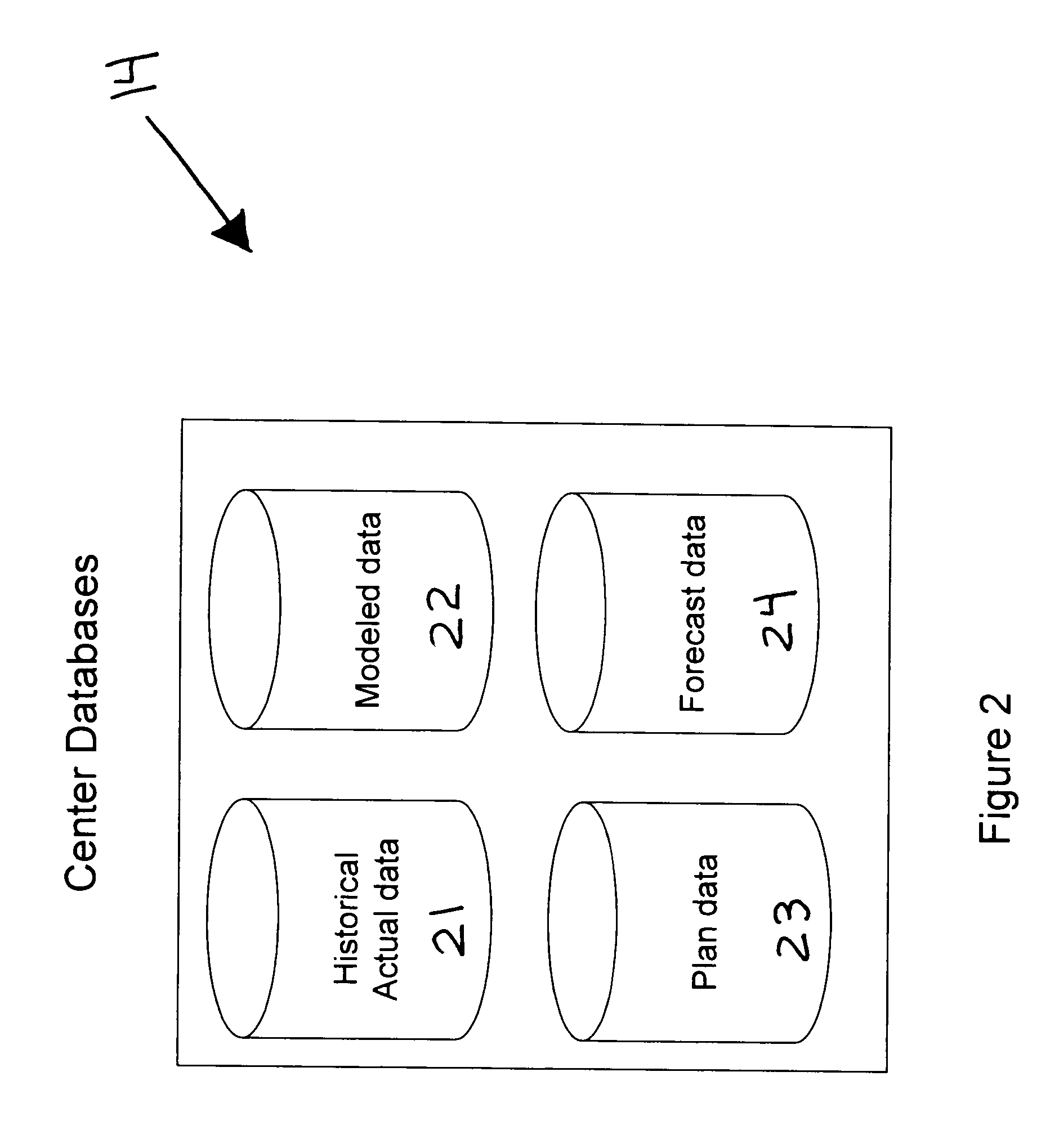Patents
Literature
Hiro is an intelligent assistant for R&D personnel, combined with Patent DNA, to facilitate innovative research.
1020 results about "Contact center" patented technology
Efficacy Topic
Property
Owner
Technical Advancement
Application Domain
Technology Topic
Technology Field Word
Patent Country/Region
Patent Type
Patent Status
Application Year
Inventor
Contact center system capable of handling multiple media types of contacts and method for using the same
InactiveUS7092509B1Efficiently and effectively handlingManual exchangesAutomatic exchangesMedia typeContact center
A contact center system and method employing a plurality of agent workstations, and which includes a queuing component, capable of receiving contacts of different media-types, such as telephone calls, e-mails, facsimiles, web chat, voice over internet protocol, and so on, and maintaining the different media types contacts in a common queue while awaiting routing to the agent workstations. The system further comprises a routing component which routes the queued contacts to the agents based on criteria of the contacts, criteria of the agents, or both. A media changing component of the system is capable of changing a media-type of any of the media-type contacts to generate a changed media-type contact, while the queuing component is capable of entering the changed media-type contact in the common queue, and the routing component is capable of routting the queued changed media-type contact to at least one of the workstations. A contact handling component initiates an event at any of the workstations in response to the contact being routed to the workstation, so that an agent at the workstation can handle the contact as appropriate.
Owner:MICROLOG
Method and system for selecting a preferred contact center agent based on agent proficiency and performance and contact center state
ActiveUS20050043986A1Good choiceHigh degree of impact on the center's operational effectivenessManual exchangesAutomatic exchangesTime informationOperational effectiveness
A method and system for selecting an agent to service a contact at a contact center accounts for the state of the contact center and for individual agent proficiency and performance. A software-implemented method includes an algorithm that adjusts the agent-selection process according to variations in state such as fluctuating call volume. When two or more metrics describe distinct aspects of an agent's performance and both aspects are relevant to agent selection, the algorithm can weigh each according to relative importance to the center's operational effectiveness. The present invention couples to the information infrastructure of a computer-based contact center and interfaces with the components of the center that acquire and maintain information pertinent to the agent-selection process. This connectivity delivers real-time information to the software algorithms and thereby facilitates rapid response to changing conditions.
Owner:INTRADIEM INC
Method and system for selecting a preferred contact center agent based on agent proficiency and performance and contact center state
ActiveUS7158628B2Good choiceHigh degree of impact on the center's operational effectivenessManual exchangesAutomatic exchangesTime informationOperational effectiveness
A method and system for selecting an agent to service a contact at a contact center accounts for the state of the contact center and for individual agent proficiency and performance. A software-implemented method includes an algorithm that adjusts the agent-selection process according to variations in state such as fluctuating call volume. When two or more metrics describe distinct aspects of an agent's performance and both aspects are relevant to agent selection, the algorithm can weigh each according to relative importance to the center's operational effectiveness. The present invention couples to the information infrastructure of a computer-based contact center and interfaces with the components of the center that acquire and maintain information pertinent to the agent-selection process. This connectivity delivers real-time information to the software algorithms and thereby facilitates rapid response to changing conditions.
Owner:INTRADIEM INC
Method for Predictive Routing of Incoming Transactions Within a Communication Center According to Potential Profit Analysis
A transaction routing method in a contact center has steps for (a) identifying an initiator of a received transaction; (b) gathering information about the initiator of the transaction; (c) determining agents available to receive and service the transaction, and gathering information about the agents; (d) using the gathered information, determining a product or promotion; (e) forming combinations among the available agents, the initiator, and the products; (f) determining potential profit contribution or probability for individual ones of the combinations formed in step (e); and (g) selecting an agent to service the transaction based on the potential profitability determined in step (f).
Owner:GENESYS TELECOMMUNICATIONS LABORATORIES INC
Peer to peer inbound contact center
InactiveUS20090316687A1Interconnection arrangementsSpecial service for subscribersContact centerComputer science
A system and method for implementing a contact center on a device node connected to a data network. The system includes a peer-to-peer inbound contact center system that executes in each device node to enable peer-to-peer connections between users making interaction requests at a requesting device and a destination interaction endpoint. Device nodes may be VoIP telephones, computers having soft-phones, computers having a CTI-enabled PBX interface to implement CTI-enabled telephones as interaction endpoints.
Owner:PEERANT
Method and device for measuring physiological parameters at the wrist
InactiveUS20050116820A1Easily enable the device to transmit the alarm signalLow and high blood pressureSurgeryEvaluation of blood vesselsBiomedical engineeringMedical treatment
A wrist-mounted device for measuring at least one physiological parameter of a subject. The present invention enables such a measurement to preferably be transformed into clinically useful information about the subject. Such information may then optionally be sent to medical personnel, for example at a contact and / or monitoring center, through a gateway device. The gateway device preferably communicates with the wrist-mounted device of the present invention through a wireless communication channel.
Owner:MEDICA4ALL AG
System and method for testing and deploying rules
Embodiments of the present invention are directed to a method for assessing impact of a rule change in a contact center. The method includes configuring one or more parameters of the rule; receiving a command to assess the rule; retrieving a log of past interactions between end users and the contact center, wherein the log of past interactions reflects interactions prior to deployment of the rule; processing one or more of the past interactions based on the rule; simulating an outcome of the one or more past interactions; and deploying the rule or not to a rules engine based on the simulating.
Owner:GENESYS TELECOMMUNICATIONS LABORATORIES INC
Techniques for behavioral pairing in a contact center system
Techniques for behavioral pairing in a contact center system are disclosed. In one particular embodiment, the techniques may be realized as a method for pairing in a contact center including ordering one or more contacts, ordering one or more agents, comparing a first difference in ordering between a first contact and a first agent in a first pair with a second difference in ordering between a second contact and a second agent in a second pair, and selecting the first pair or the second pair for connection based on the comparing, wherein the first contact and the second contact are different or the first agent and the second agent are different.
Owner:ORIX VENTURES
System and method for tracking web interactions with real time analytics
ActiveUS20130136253A1Special service for subscribersManual exchangesContact centerReal time analytics
A device, system and method is provided for monitoring a user's interactions with Internet-based programs or documents. Content may be extracted from Internet server traffic according to predefined rules. Extracted content may be associated with a user's Internet interaction. The user's Internet interaction may be stored and indexed. The user's Internet interaction may be analyzed to generate a recommendation provided to a contact center agent while the contact center agent is communicating with said user for guiding the user's interaction, for example, in real-time. Traffic other than Internet server traffic may also be used.
Owner:NICE LTD
Systems and methods for workforce optimization
ActiveUS20070198322A1Easy to operateResourcesSpecial data processing applicationsContact centerPerformance index
Systems and methods are disclosed for an integrated process for optimizing operations at a contact center. In one embodiment, the method comprises: defining contact center business goals; planning at least one campaign to implement the goals; scheduling and deploying a workforce in accordance with the campaign to produce agent-customer interactions; measuring agent performance on the interactions to produce quality metrics; analyzing the metrics to produce a rating; combining quality metrics to produce performance indicators; and using the performance indicators in the planning step of a second campaign or another iteration of the first campaign.
Owner:VERINT AMERICAS
Method and system for prioritizing performance interventions
A member of a workforce of a contact center, such as an agent of a call center, can receive performance interventions, such as training, information, tips, or other items intended to enhance workplace performance. The performance interventions can be organized, sequenced, ranked, or prioritized in a lineup, an ordered list, or a queue, that specifies the sequence that the workforce member should receive the performance interventions. The agent might select a training course at the top of the list, for example. Two criteria, parameters, or values can characterize some aspect of each performance intervention. One criterion might characterize time sensitivity, while the other criterion might characterize importance, for example. Processing the two parameters can determine the sequence of performance intervention delivery.
Owner:KNOWLAGENT
Using true value in routing work items to resources
InactiveUS8000989B1Accurate measurementHigh levelFinanceMarket data gatheringContact centerEngineering
The present invention is directed to a contact center 100 comprising (a) an input operable to receive a contact from a customer, the customer having an associated value to the contact center 100 and (b) a contact selector 216 operable to select a resource of the contact center 100 to service the contact based, at least in part, on the associated value. The associated value reflects one or more of a historic, predicted, and current monetary expense of the contact center to service the customer.
Owner:AVAYA INC
Techniques for behavioral pairing in a contact center system
Techniques for behavioral pairing in a contact center system are disclosed. In one particular embodiment, the techniques may be realized as a method for pairing in a contact center including ordering one or more contacts, ordering one or more agents, comparing a first difference in ordering between a first contact and a first agent in a first pair with a second difference in ordering between a second contact and a second agent in a second pair, and selecting the first pair or the second pair for connection based on the comparing, wherein the first contact and the second contact are different or the first agent and the second agent are different.
Owner:ORIX VENTURES
Contact center scheduling using integer programming
ActiveUS7725339B1Easy to solveFavorable objective valueOffice automationSpecial data processing applicationsContact centerWorkforce scheduling
The present invention relates to a method for workforce scheduling in which workload and workload types vary during scheduling period. The method acquires agent and skill requirements for all periods and contact types; acquires the contact center information including agent skill groups, agent work groups, tour and shift scheduling rules, agent availability, objective criterion to be optimized and its parameters; develops a Mixed Integer Linear Programming (MILP) model for the scheduling environment; applied an optimization algorithm that uses the Branch and Bound algorithm with a Rounding Algorithm to improve performance; and locates a globally optimal or near optimal workforce schedule in total cost or paid time or agent satisfaction. Detailed schedules may be developed by assigning daily shifts to work patterns, and breaks scheduled to daily shifts.
Owner:INCONTACT
Method and apparatus for the automated delivery of notifications to contacts based on predicted work prioritization
ActiveUS20070071222A1Improved customer serviceImproved contact center effectivenessSpecial service for subscribersManual exchangesContact centerComputer science
In one embodiment, a contact center is provided that includes: (a) a work item queue 208, 250 comprising an intra-enterprise contact associated with at least first and second internal endpoints of an enterprise; and (b) a selector operable to select and assign a work item to an agent. In selecting the work item, the selector considers both a customer contact and the intra-enterprise contact. The intra-enterprise contact, for example, can be a training notification.
Owner:AVAYA INC
Shadow queue for callers in a performance/pattern matching based call routing system
ActiveUS20100054453A1Increase opportunitiesShorten the construction periodManual exchangesAutomatic exchangesPattern matchingBase calling
Methods and systems are disclosed for routing callers to agents in a contact center, along with an intelligent routing system. A method for routing callers includes routing a caller, if agents are available, to an agent based on a pattern matching algorithm (which may include performance based matching, pattern matching based on agent and caller data, computer models for predicting outcomes of agent-caller pairs, and so on). Further, if no agents are available for the incoming caller, the method includes holding the caller in a shadow queue, e.g., a set of callers. When an agent becomes available the method includes scanning all of the callers in the shadow queue and matching the agent to the best matching caller within shadow queue.
Owner:AFINITI LTD +1
Contact center and method for tracking and acting on one and done customer contacts
ActiveUS7734032B1Decreasing rateReduce dissatisfactionManual exchangesAutomatic exchangesComputer networkContact center
The present invention is directed to a contact center for servicing contacts having (a) an input to receive a first contact from a first customer; (b) a selector (i) to determine whether the first contact is related to another contact with the first customer and (ii) when the first contact is related to another contact with the first customer, to service the contact differently than when the first contact is unrelated to another contact with the first customer; and / or (c) a repeat contact determining agent (i) to track, a set of the plurality of agents over a selected time period, a number of contacts serviced by the agent set that are related to another contact serviced by the plurality of agents and (ii) to maintain, for each of the plurality of agents, an indicator indicating one or more of (a) a number of contacts, serviced by the agent set during the selected time period, that are not related to another contact serviced by the agent and (b) a number of contacts, serviced by the agent set during the selected time period, that are related to another contact serviced by the agent.
Owner:AVAYA INC
Multi-service request within a contact center
ActiveUS7936867B1Efficient managementImprove customer satisfactionManual exchangesAutomatic exchangesContact centerDistributed computing
A contact center that includes:(a) an input 200 operable to receive a contact;(b) a task expert module 232 to (i) identify a plurality of tasks 400 associated with the contact; (ii) group the tasks 400 into first and second task sets; and (iii) queue the first and second task sets at different positions in at least one queue 208; and(c) an agent and work item selector 220 to assign the first task set to a first agent for servicing while maintaining the second task set in the at least one queue 208.
Owner:AVAYA TECH LLC
Routing callers to agents based on time effect data
Systems and methods are disclosed for routing callers to agents in a contact center, along with an intelligent routing system. Exemplary methods include routing a caller from a set of callers to an agent from a set of agents based on a performance based routing and / or pattern matching algorithm(s) utilizing caller data associated with the caller and the agent data associated with the agent. For performance based routing, the performance or grading of agents may be associated with time data, e.g., a grading or ranking of agents based on time. Further, for pattern matching algorithms, one or both of the caller data and agent data may include or be associated with time effect data. Examples of time effect data include probable performance or output variables as a function of time of day, day of week, time of month, or time of year. Time effect data may also include the duration of the agent's employment.
Owner:AFINITI LTD
Call routing methods and systems based on multiple variable standardized scoring
ActiveUS20090190747A1Increase incomeLow costManual exchangesAutomatic exchangesPattern matchingContact center
Systems and methods are disclosed for routing callers to agents in a contact center, along with an intelligent routing system. An exemplary method includes combining multiple output variables of a pattern matching algorithm (for matching callers and agents) into a single metric for use in the routing system. The pattern matching algorithm may include a neural network architecture, where the exemplary method combines output variables from multiple neural networks. The method may include determining a Z-score of the variable outputs and determining a linear combination of the determined Z-scores for a desired output. Callers may be routed to agents via the pattern matching algorithm to maximize the output value or score of the linear combination. The output variables may include revenue generation, cost, customer satisfaction performance, first call resolution, cancellation, or other variable outputs from the pattern matching algorithm of the system.
Owner:AFINITI LTD
Routing callers to agents based on personality data of agents
Systems and methods are disclosed for routing callers to agents in a contact center, along with an intelligent routing system. An exemplary method includes routing a caller from a set of callers to an agent from a set of agents based on a pattern matching algorithm utilizing caller data associated with the caller from the set of callers and agent data associated with the agent from the set of agents. One or both of the caller data and agent data includes personality data, e.g., from a personality profile, associated with the caller or agent. The personality data and profile may be generated from administration of a personality test such as a Myers-Brigg Type Indicator questionnaire.
Owner:AFINITI LTD
Agent satisfaction data for call routing based on pattern matching alogrithm
ActiveUS20100054452A1Reducing attritionLow costManual exchangesAutomatic exchangesPattern matchingContact center
Methods and systems are disclosed for routing callers to agents in a contact center with an intelligent routing system. An exemplary method includes routing callers to agents based on a pattern matching algorithm utilizing caller data and agent data, where the agent data includes agent satisfaction data from past agent-caller pairings. The agent satisfaction data may be obtained via surveys of the agents regarding their satisfaction with past agent-caller contacts. The agent satisfaction data may be used by the pattern matching algorithm in an attempt to increase agent satisfaction for future calls, thereby potentially reducing attrition of agents and cost to the call center, increasing morale of the agents, and so on. The agent satisfaction data and output from past agent-caller pairings may be weighted by the contact center against other agent data and caller data for a desired mixing of output variables.
Owner:AFINITI LTD
Method and apparatus for global call queue in a global call center
ActiveUS20060067506A1Loss of voice qualityLow costManual exchangesAutomatic exchangesCall forwardingContact center
The present invention is directed to a contact center, comprising: (a) a plurality of media servers 112a-n, each of the media servers being associated with a plurality of corresponding agent communication devices 120a-i positioned in a respective agent domain 100a-n; (b) a plurality of gateways 128a-n, each of which is currently controlled by a corresponding one of the plurality of media servers 112a-n and positioned in a contactor domain 104; and (c) a packet-switched Wide Area Network (WAN) 108 connecting the plurality of media servers 128a-n and the plurality of gateways 112a-n. A first gateway 128a is operable to physically park an incoming customer contact in the customer domain 104 until the occurrence of a call transfer event and, upon the occurrence of a call transfer event, to transfer the parked customer contact from the first gateway 128a to at least one of (i) a second media gateway 128b for processing by the second media gateway's corresponding second controlling media server 112b and (ii) a first media server 112a controlling the first gateway 128a.
Owner:AVAYA INC
Techniques for benchmarking pairing strategies in a contact center system
Techniques for benchmarking pairing strategies in a contact center system are disclosed. In one particular embodiment, the techniques may be realized as a method for techniques for benchmarking pairing strategies in a contact center system comprising: cycling, by at least one processor, among at least two pairing strategies; and determining, by the at least one processor, a difference in performance between the at least two pairing strategies.
Owner:AFINITI LTD
Systems and methods for routing callers to an agent in a contact center
ActiveUS20090190748A1Increase opportunitiesShorten the construction periodManual exchangesAutomatic exchangesPattern matchingContact center
Methods are disclosed for routing callers to agents in a contact center, along with an intelligent routing system. One or more agents are graded on achieving an optimal interaction, such as increasing revenue, decreasing cost, or increasing customer satisfaction. Callers are then preferentially routed to a graded agent to obtain an increased chance at obtaining a chosen optimal interaction. In a more advanced embodiment, caller and agent demographic and psychographic characteristics can also be determined and used in a pattern matching algorithm to preferentially route a caller with certain characteristics to an agent with certain characteristics to increase the chance of an optimal interaction.
Owner:AFINITI LTD
Systems and methods for workforce optimization and integration
InactiveUS20080181389A1Supervisory/monitoring/testing arrangementsManual exchangesContact centerComputer science
Systems and methods are disclosed for an optimizing operations at a contact center. In one embodiment, an integrated contact center comprises: a workforce manager comprising a scheduler and a tracking function; and a lesson assignment function configured to receive at least one indicator of performance of the agent, and further configured to assign a lesson to the agent based on the at least one indicator.
Owner:BOURNE JOHN +9
Using existing web-based information to generate responses to user queries
InactiveUS7225232B2Reduce workloadSimple and efficientWeb data indexingMultiple digital computer combinationsContact centerManagement system
Email response management systems (ERMSs) have previously been developed for use with contact centers where email queries are received from customers. These ERMSs have contained pre-configured information suitable for incorporating into email responses. A major problem with this approach is that a large amount of work is required to pre-configure the information and to add that to the ERMS. A method and system are provided for enabling existing web-based information to be used to formulate such responses, not just for email but also for other media such as text chat, SMS, video, and more. The existing web-based information does not need to be altered or dedicated for a particular response management system and contact centre. Rather it can be pre-existing information used for other purposes.
Owner:AVAYA INC
Systems and methods for routing callers to an agent in a contact center
ActiveUS20090190746A1Increase opportunitiesShorten the construction periodManual exchangesAutomatic exchangesPattern matchingContact center
Methods are disclosed for routing callers to agents in a contact center, along with an intelligent routing system. One or more agents are graded on achieving an optimal interaction, such as increasing revenue, decreasing cost, or increasing customer satisfaction. Callers are then preferentially routed to a graded agent to obtain an increased chance at obtaining a chosen optimal interaction. In a more advanced embodiment, caller and agent demographic and psychographic characteristics can also be determined and used in a pattern matching algorithm to preferentially route a caller with certain characteristics to an agent with certain characteristics to increase the chance of an optimal interaction.
Owner:AFINITI LTD
Method and system for skills-based planning and scheduling in a workforce contact center environment
InactiveUS6970829B1Minimum level of skill coverageImprove fitSpecial service provision for substationMultiplex system selection arrangementsMulti siteManagement unit
A method of forecasting, allocating and scheduling in a single or multi-site skills-based contact or call center environment organized into a hierarchy of zero or more business units at a first, upper level, one or more contact types at a second, intermediate level, and one or more management units at a third, lower level. A user creates (a) a set of given contact allocations that define how contacts are distributed from a given business unit to multiple contact types, and (b) a set of given requirement allocations that define how agent requirements are distributed from a contact type to one or more management units. Agent availability by contact type is then predicted to generate agent availability data. Thereafter, forecasted contacts and forecasted agent requirements are allocated based on the given contact and requirement allocations as well as the agent availability data. Preferably, the agent availability data is predicted using a schedule simulator and is characterized by contact type for agents in the same skill group.
Owner:IEX CORP
Contact center optimization program
InactiveUS20050013428A1Improve performanceContact center performanceSpecial service for subscribersSupervisory/monitoring/testing arrangementsProgram planningSimulation
A contact center performance optimization program for assisting contact center managers improve the performance of their centers comprises a hosted database that collects actual data and a modeling and optimization program that can be used to create center budgets and forecast future performance. The program facilitates improved contact center performance by providing analysis of current operations and forecasting through the use of models, optimization, analyzers and imbedded best practices. The inventive device includes. To forecast future performance and optimize the center's operation, “what if” models and analyzers are used. The invention includes a series of impact analyzers that assist the center manager focus on areas that if improved will produce the greatest overall performance improvement.
Owner:WALTERS JAMES FREDERICK JR
Features
- R&D
- Intellectual Property
- Life Sciences
- Materials
- Tech Scout
Why Patsnap Eureka
- Unparalleled Data Quality
- Higher Quality Content
- 60% Fewer Hallucinations
Social media
Patsnap Eureka Blog
Learn More Browse by: Latest US Patents, China's latest patents, Technical Efficacy Thesaurus, Application Domain, Technology Topic, Popular Technical Reports.
© 2025 PatSnap. All rights reserved.Legal|Privacy policy|Modern Slavery Act Transparency Statement|Sitemap|About US| Contact US: help@patsnap.com
